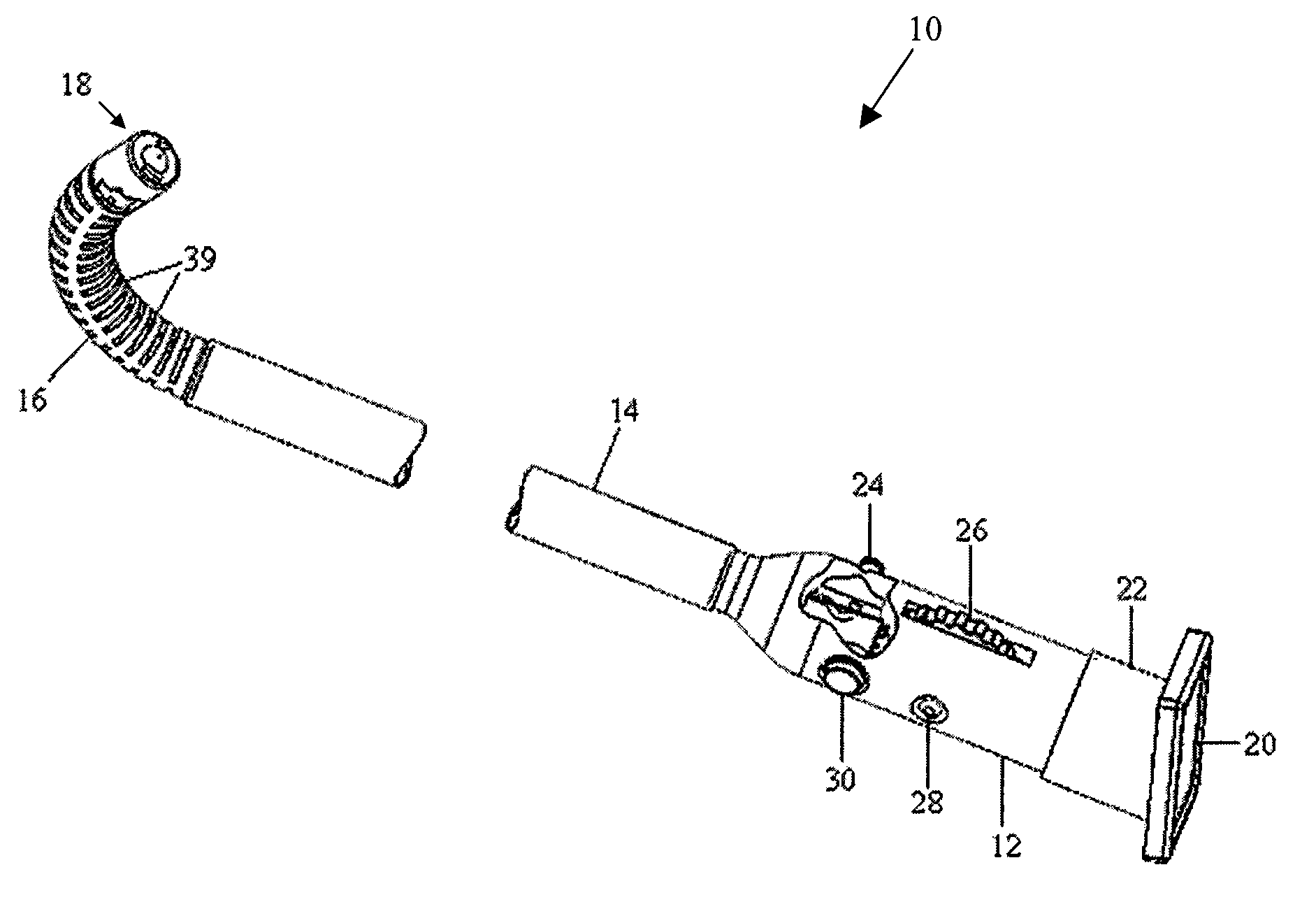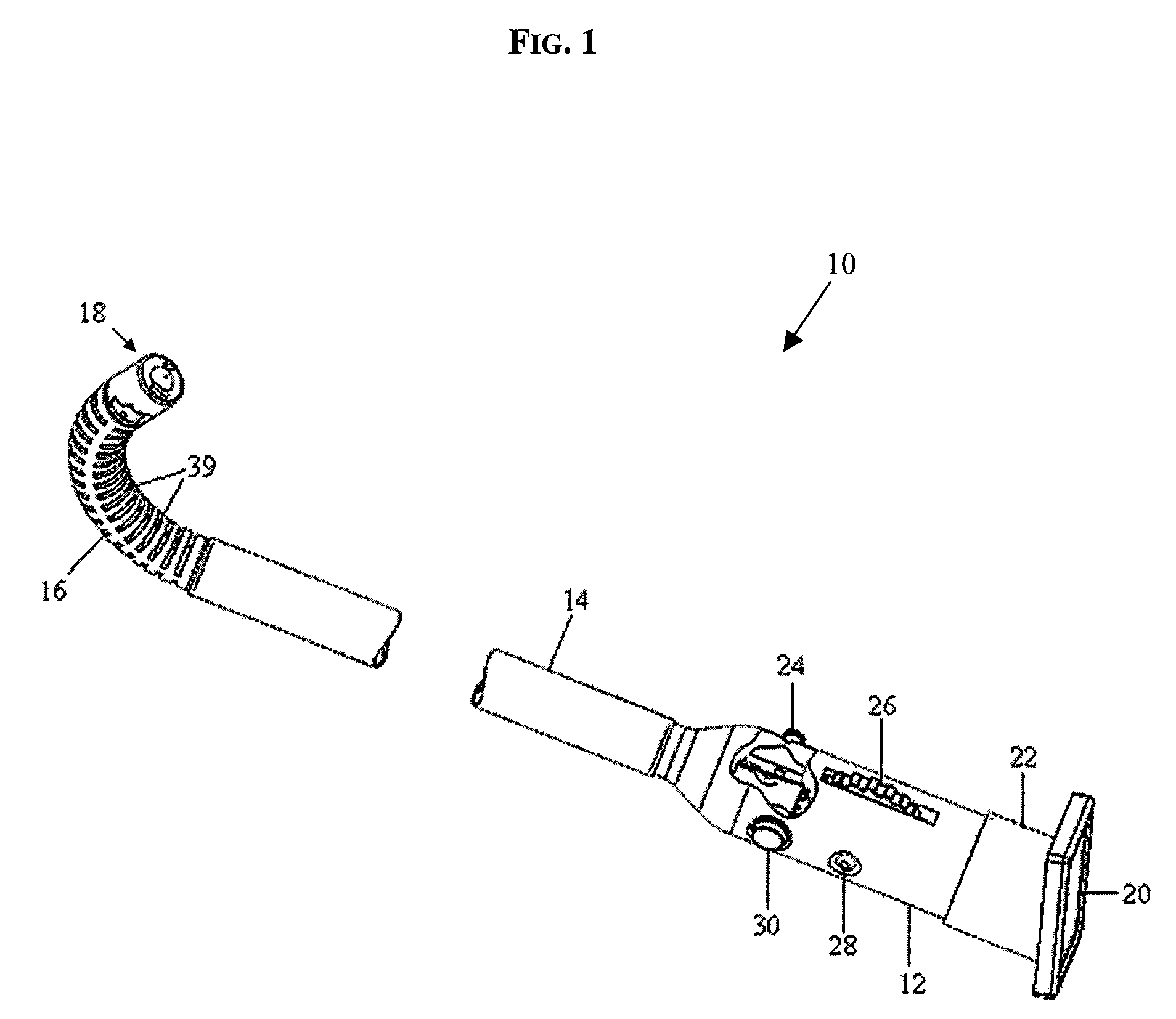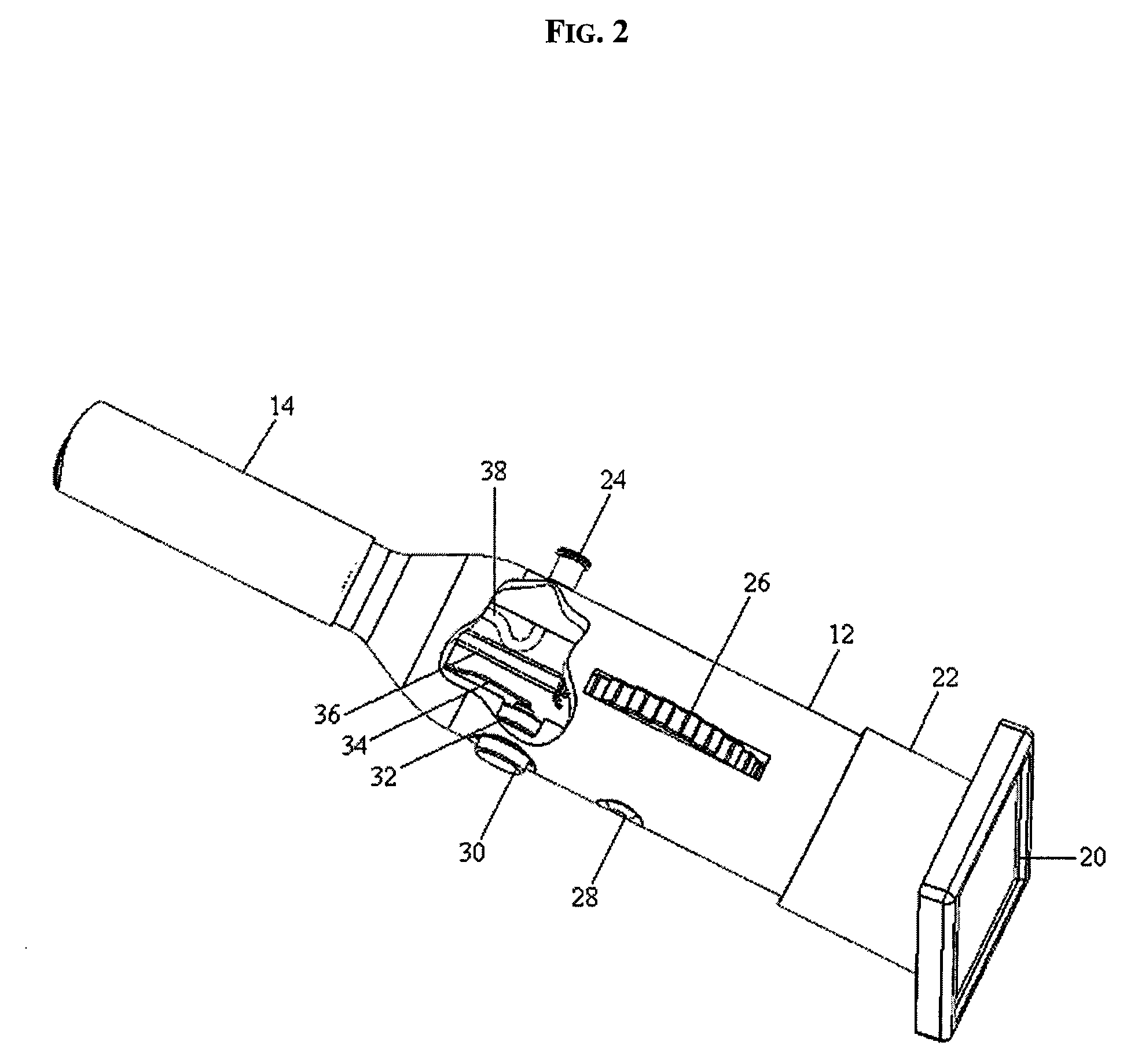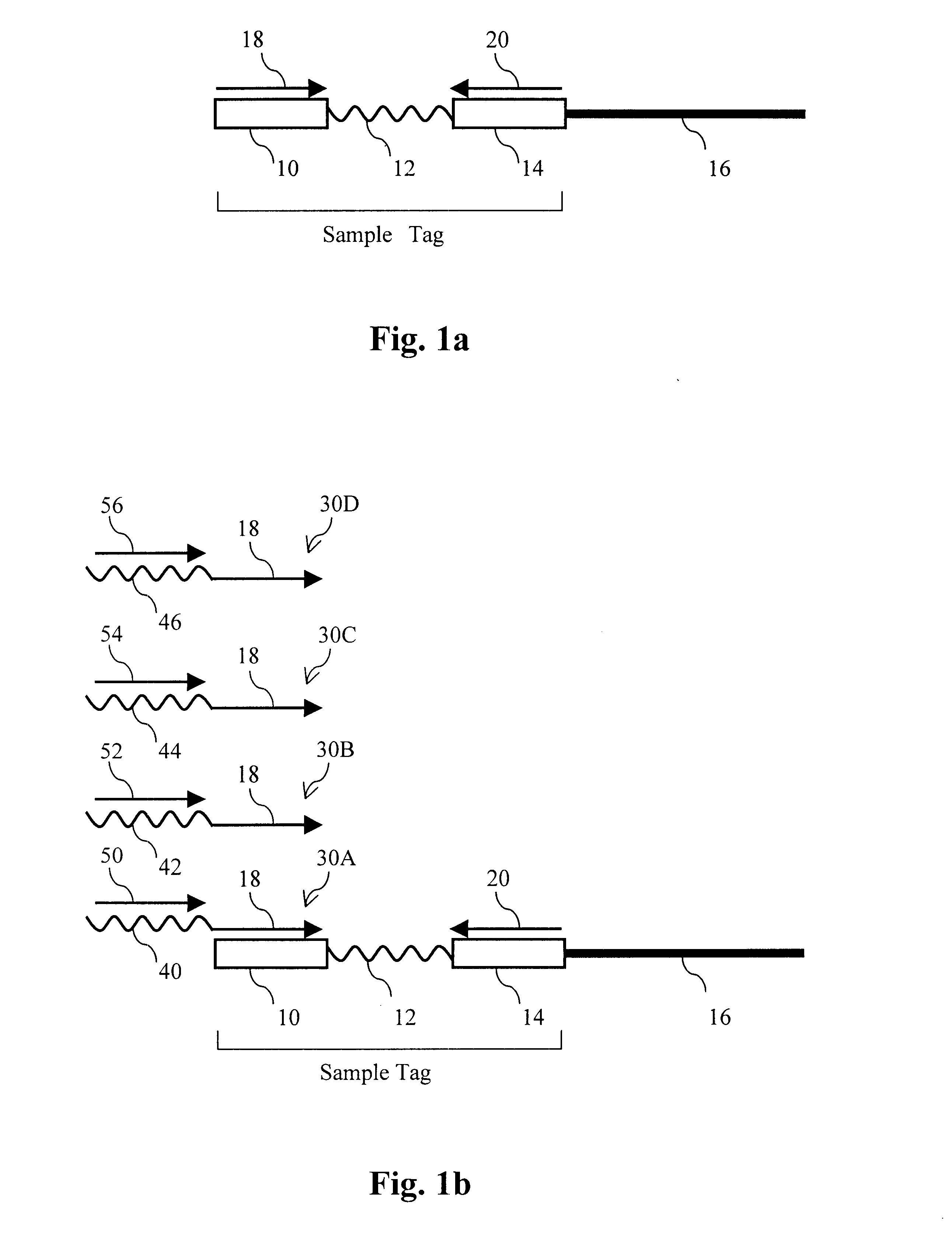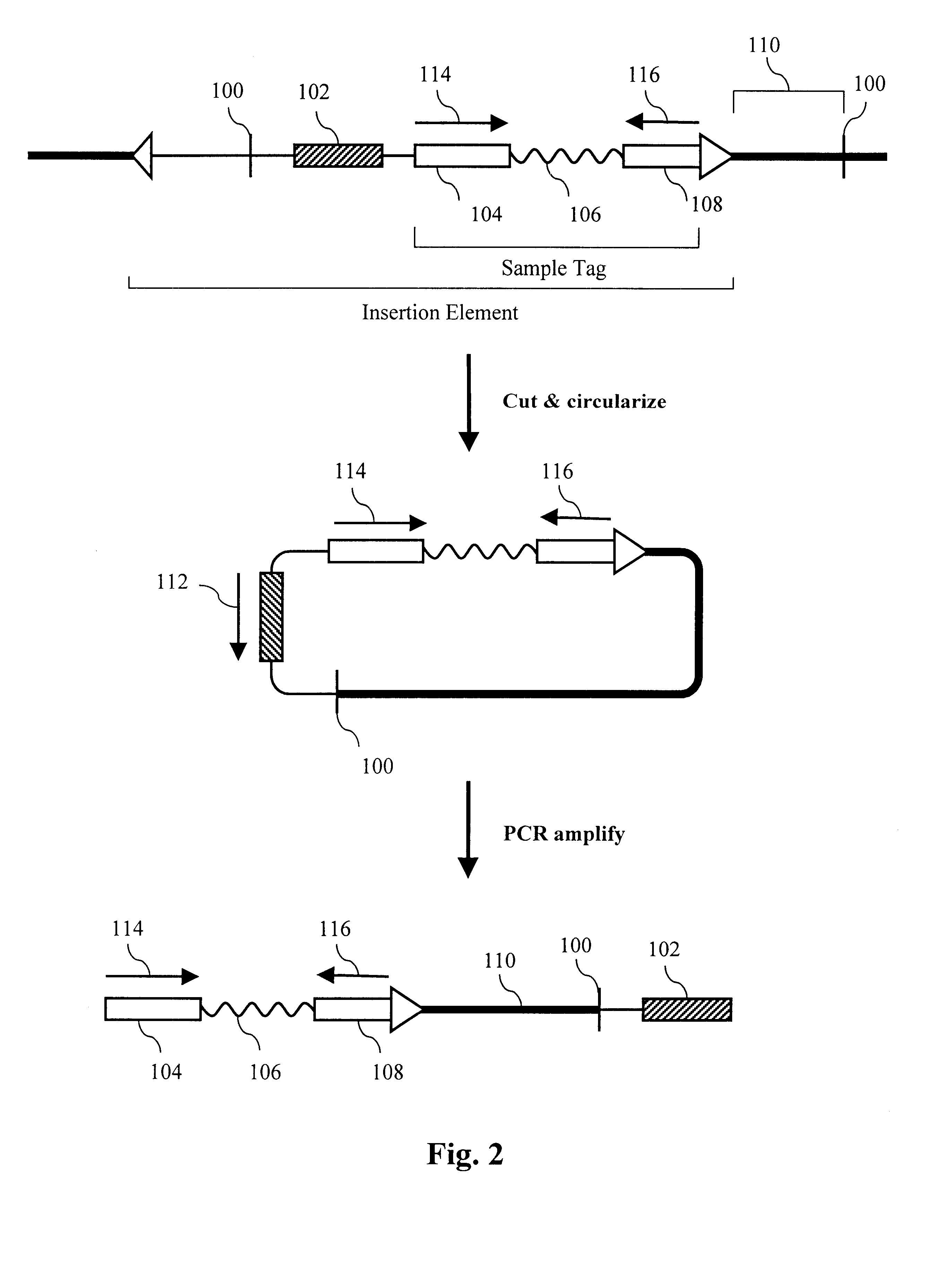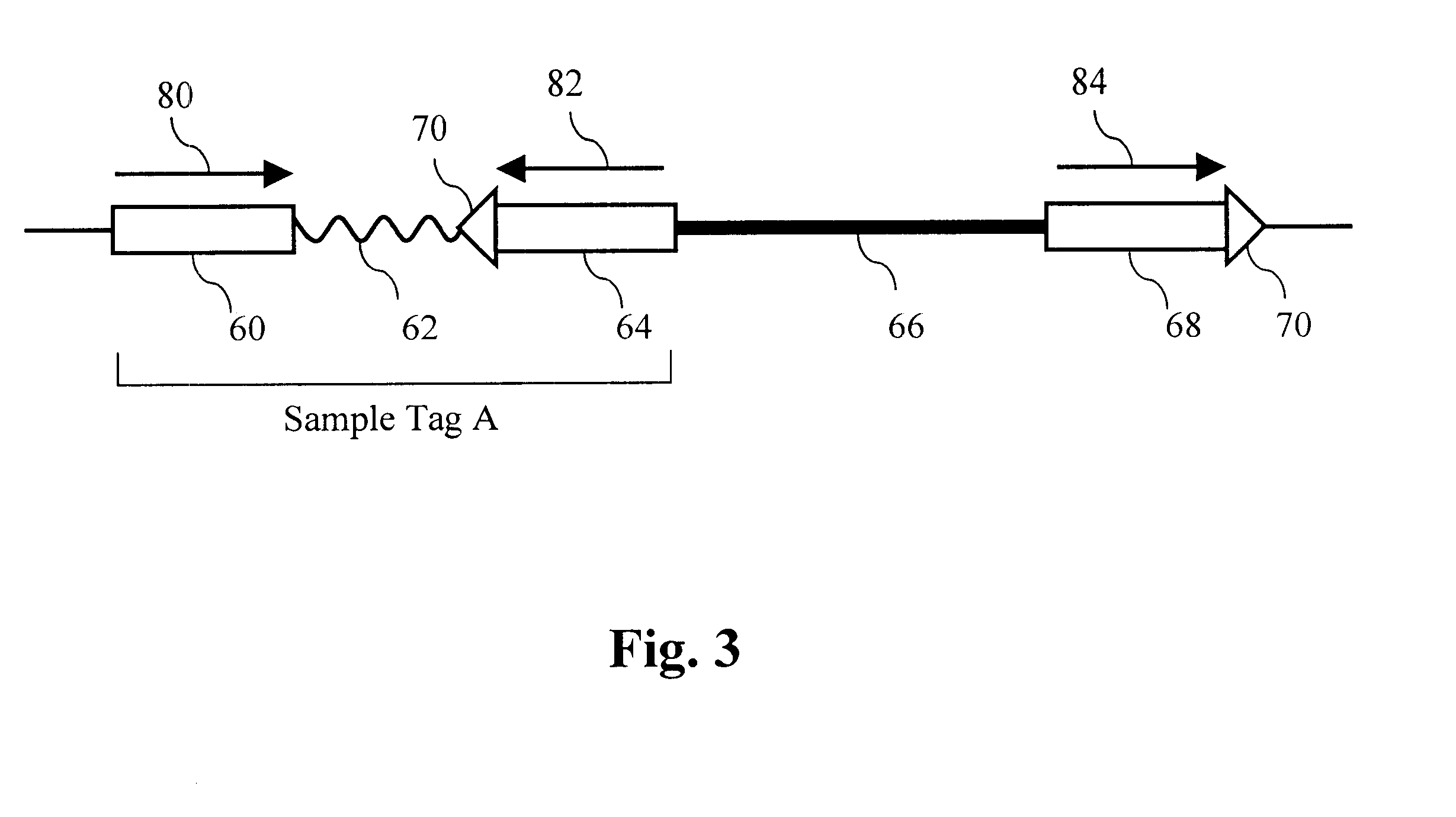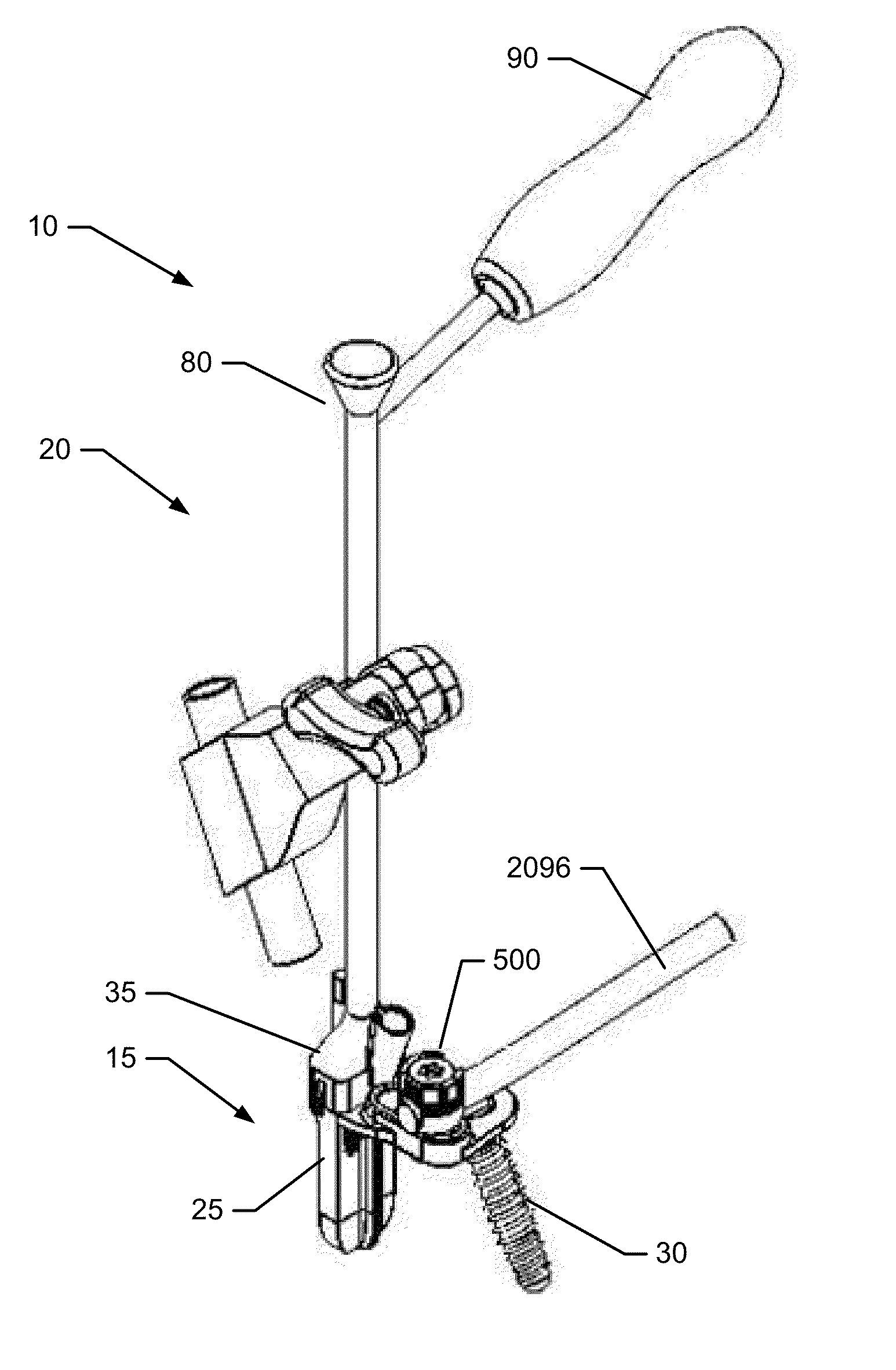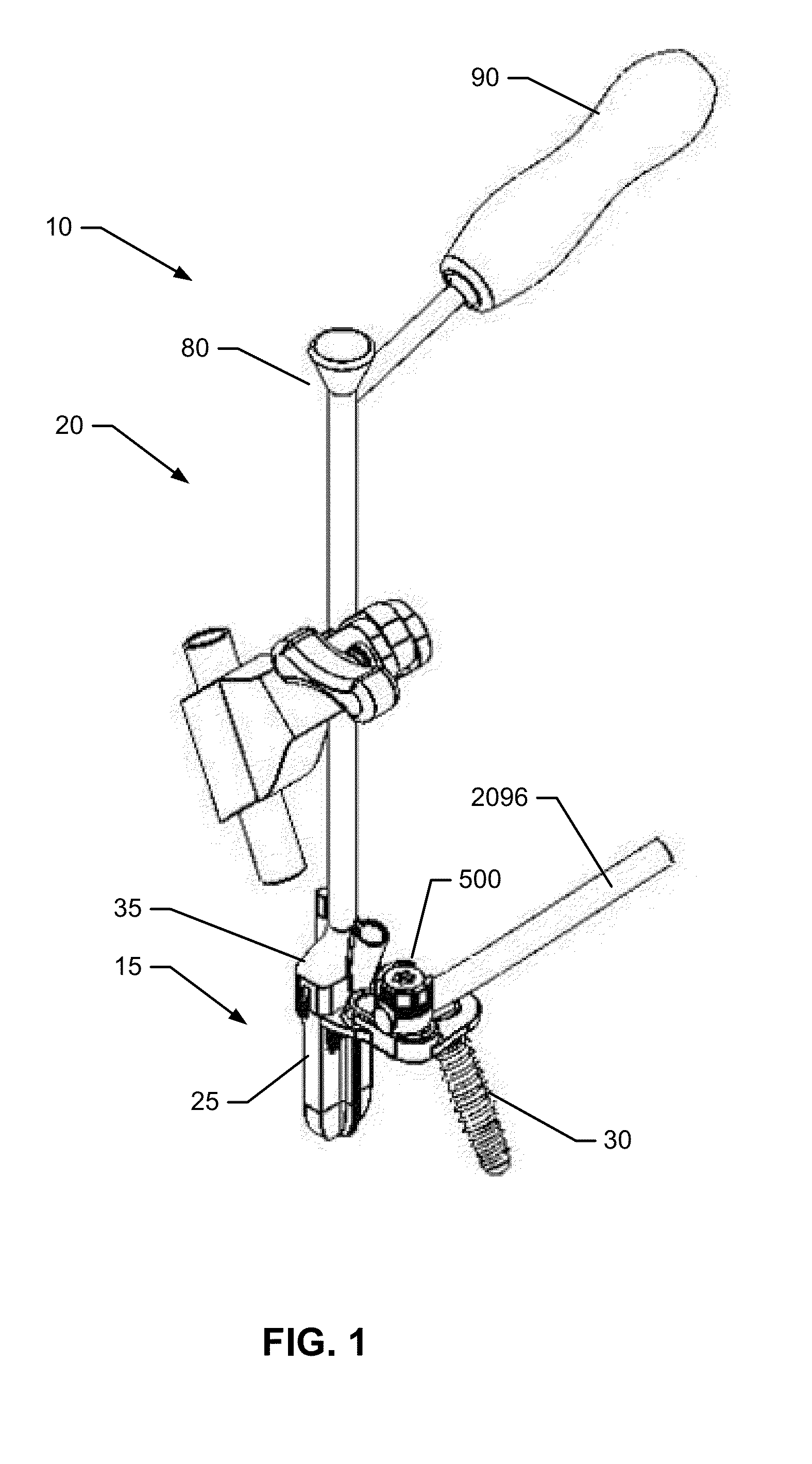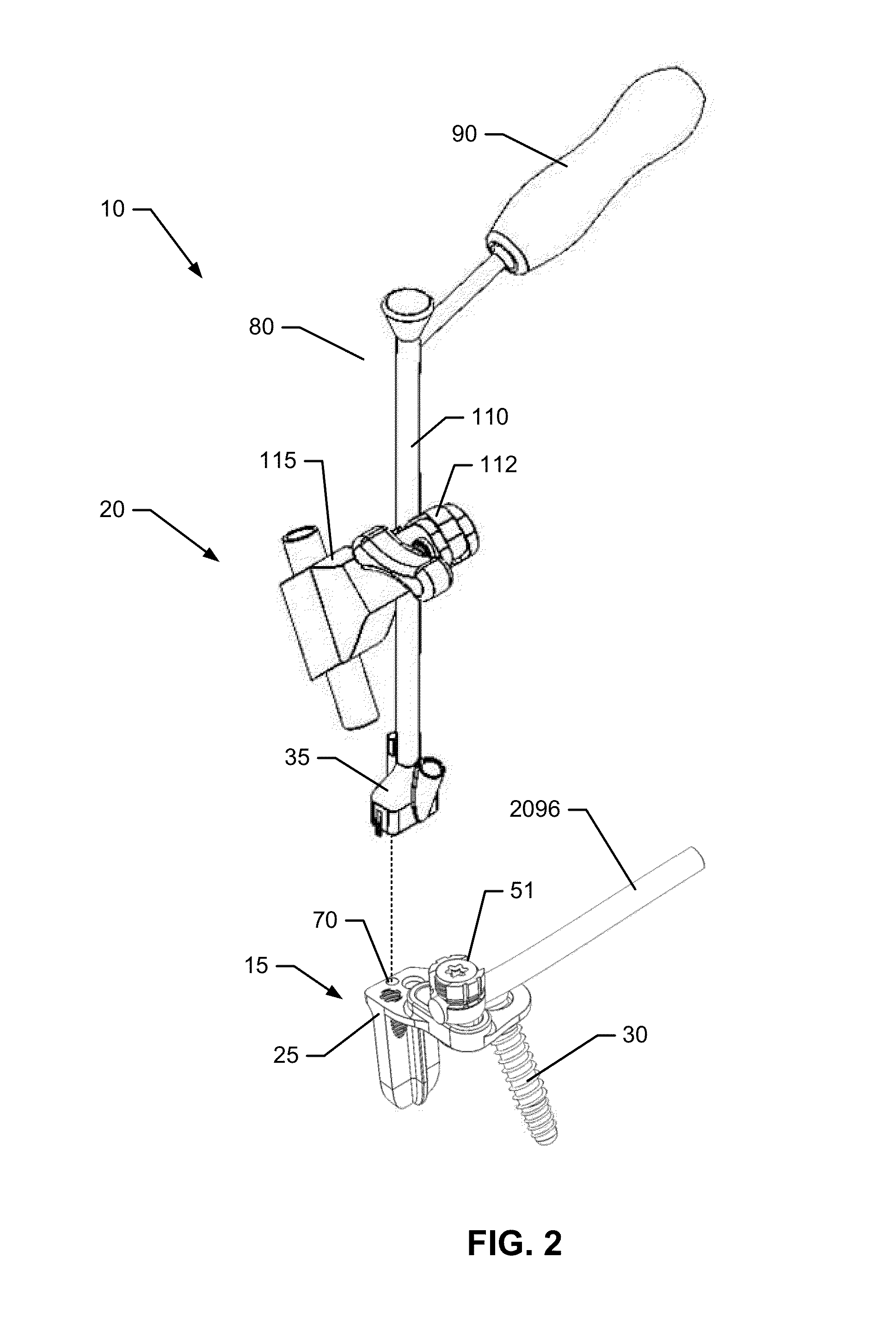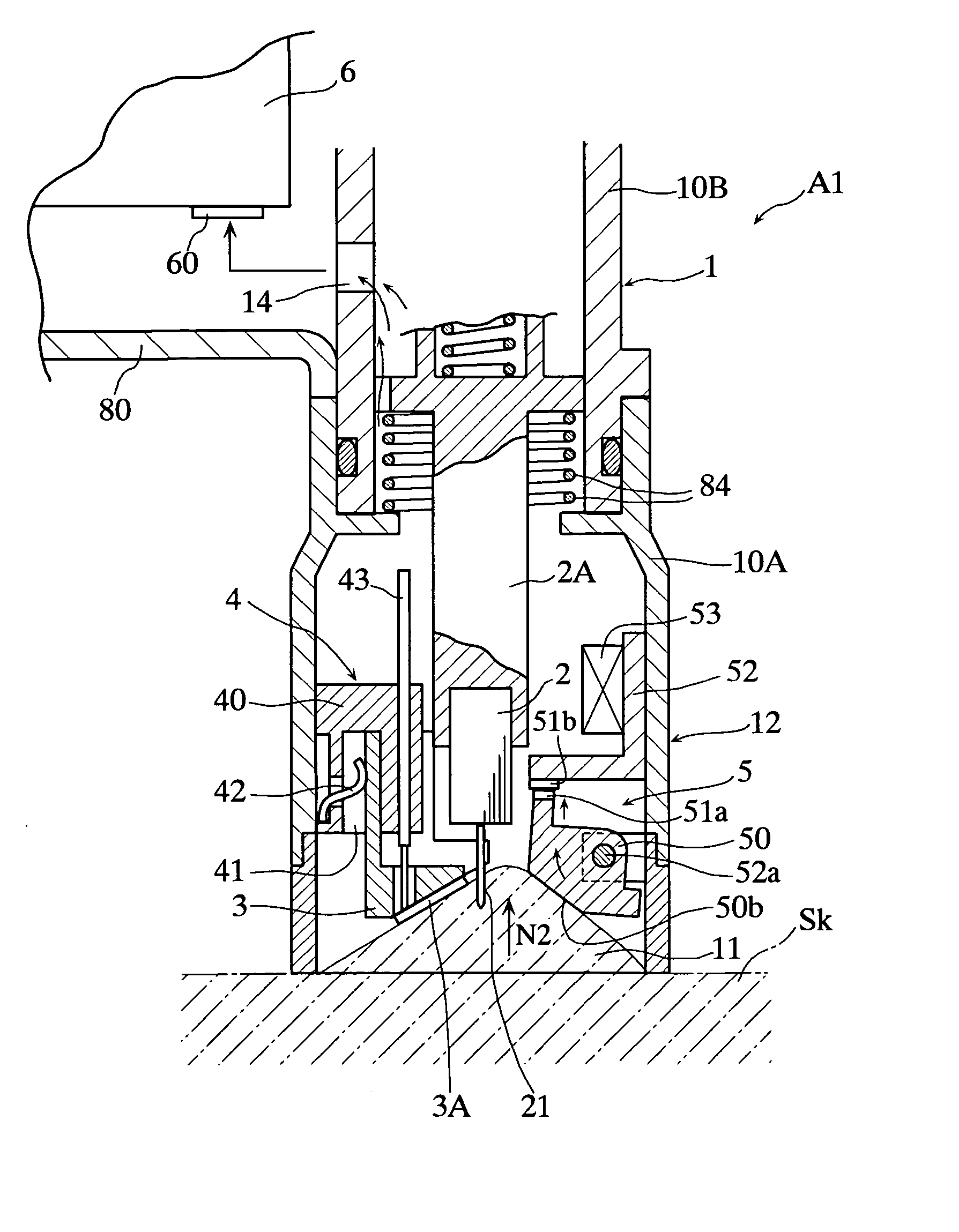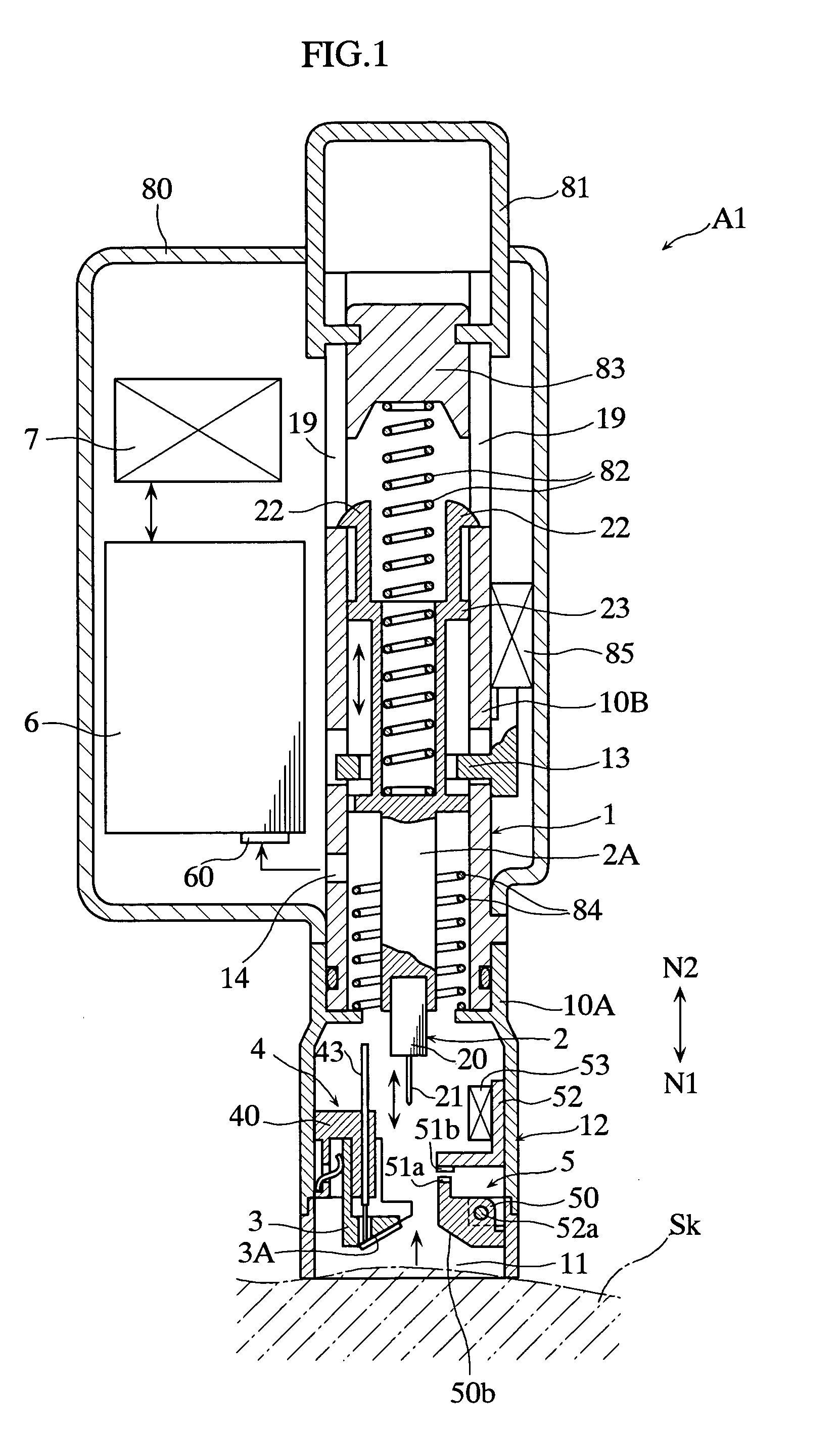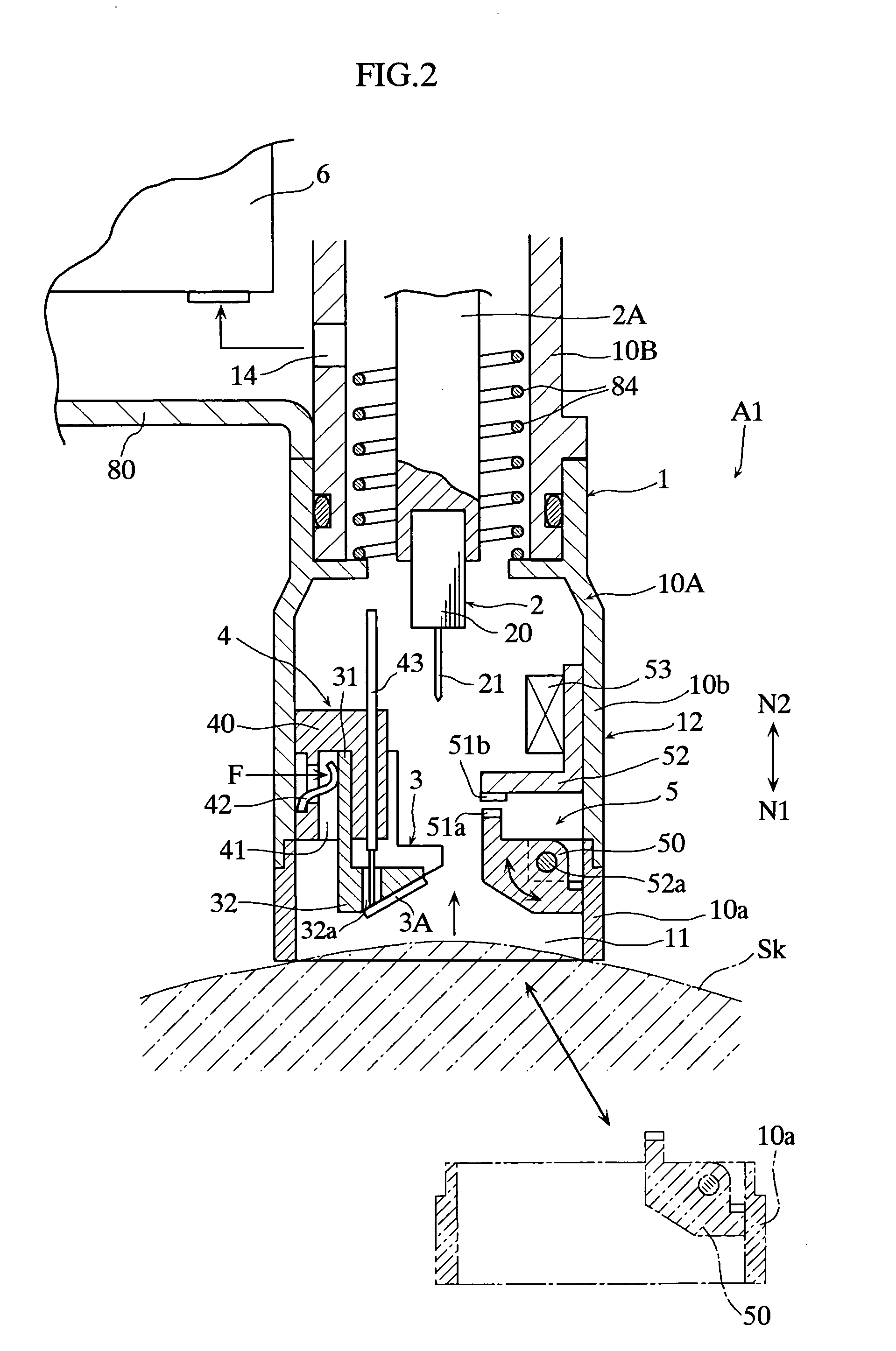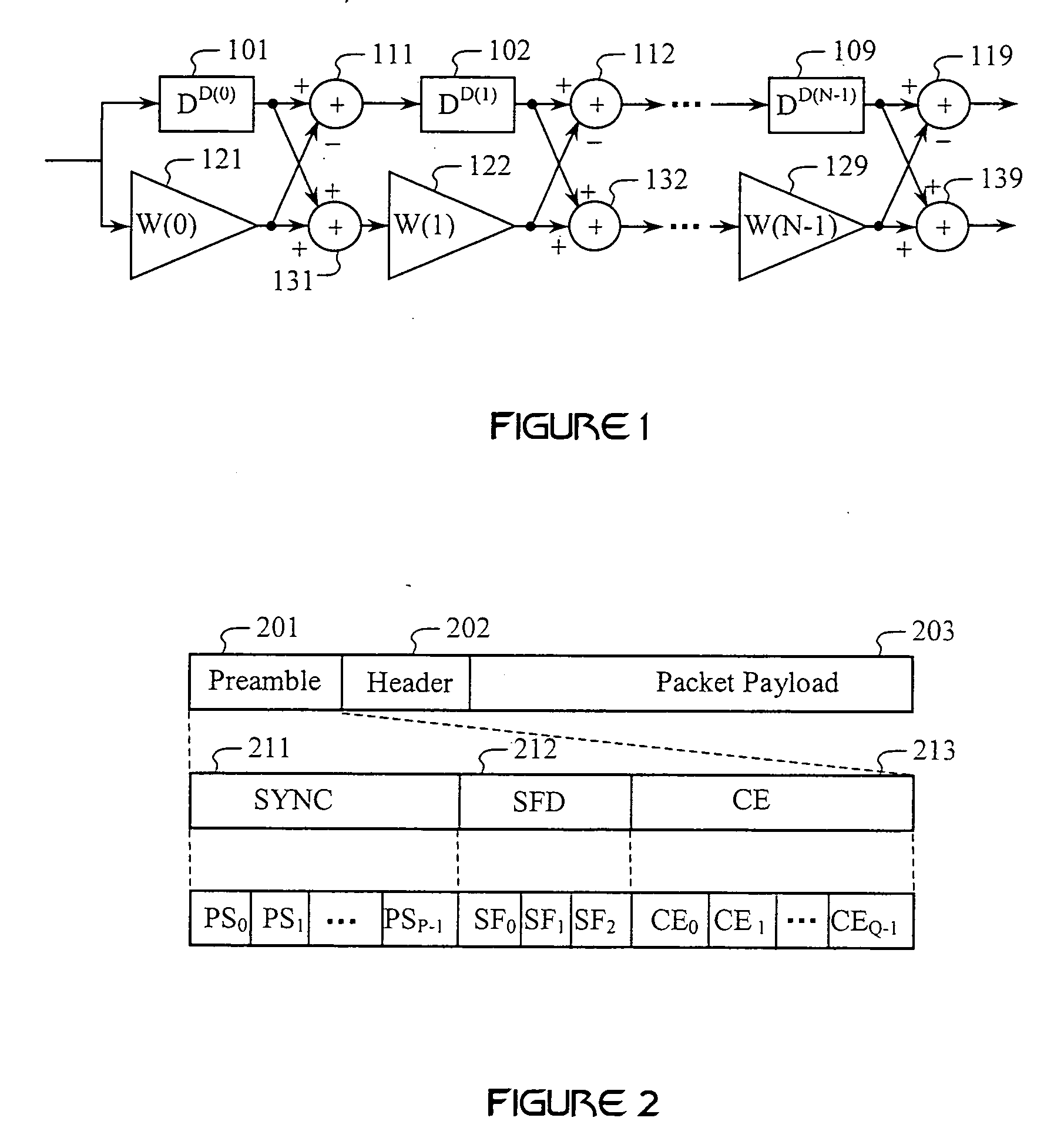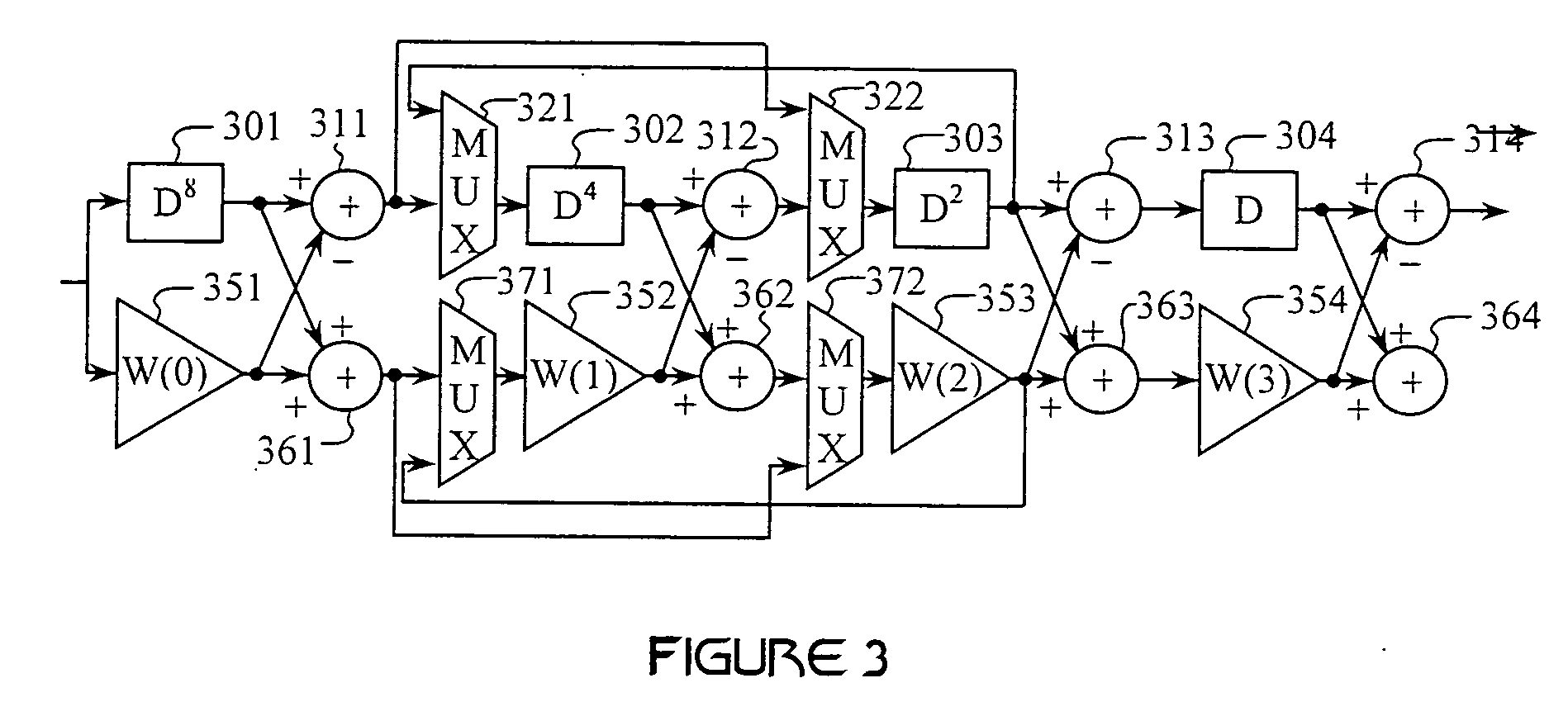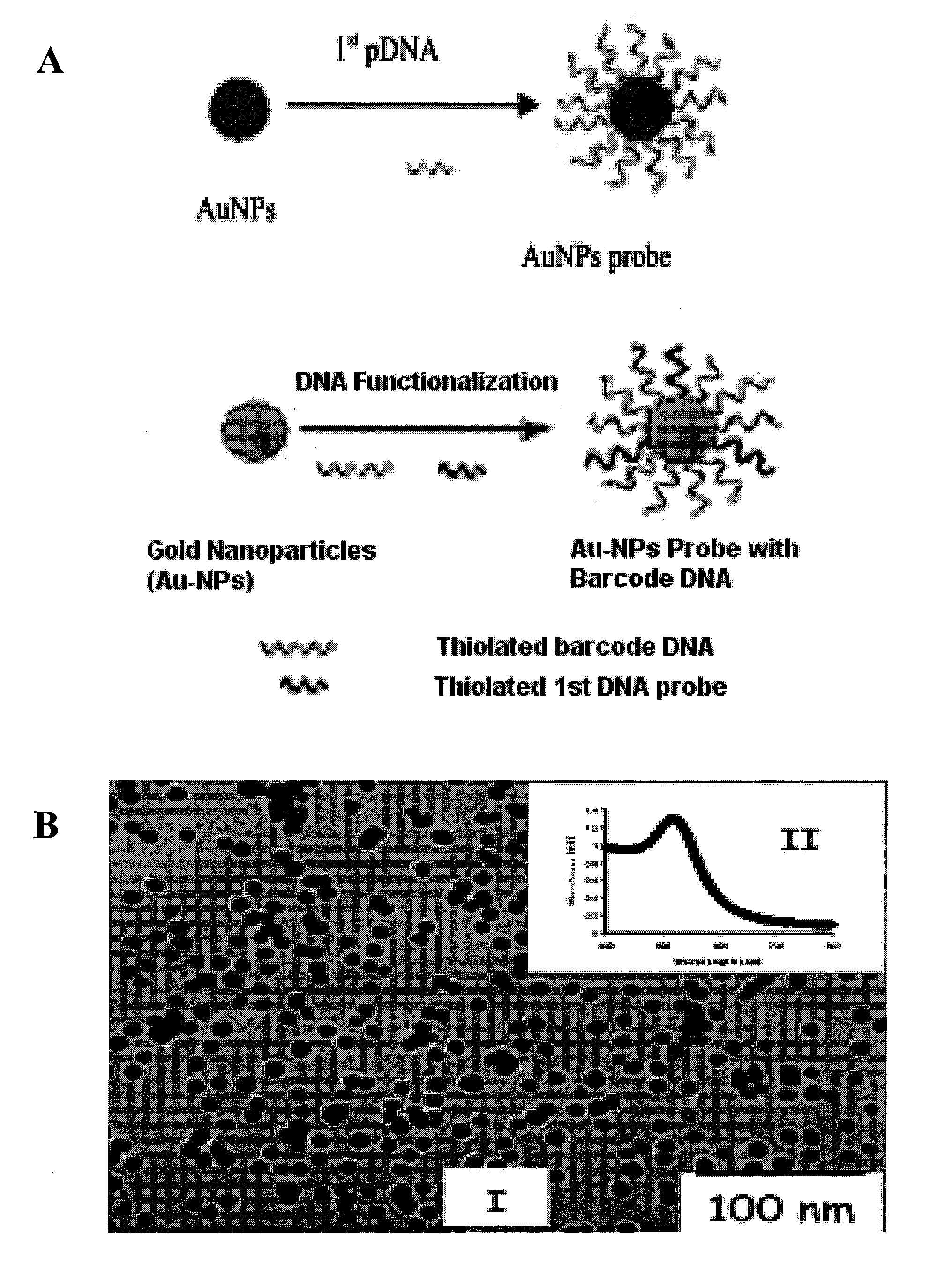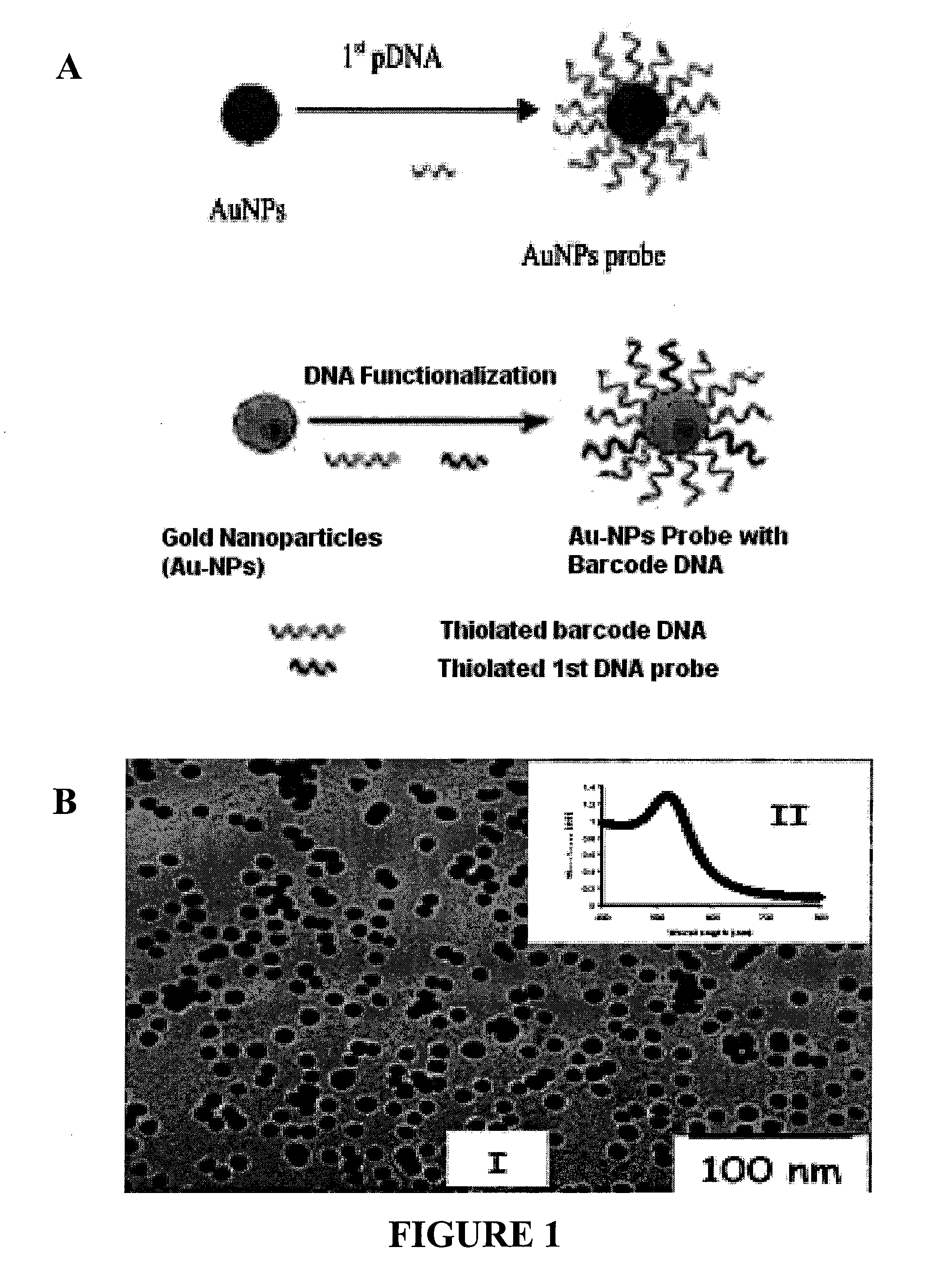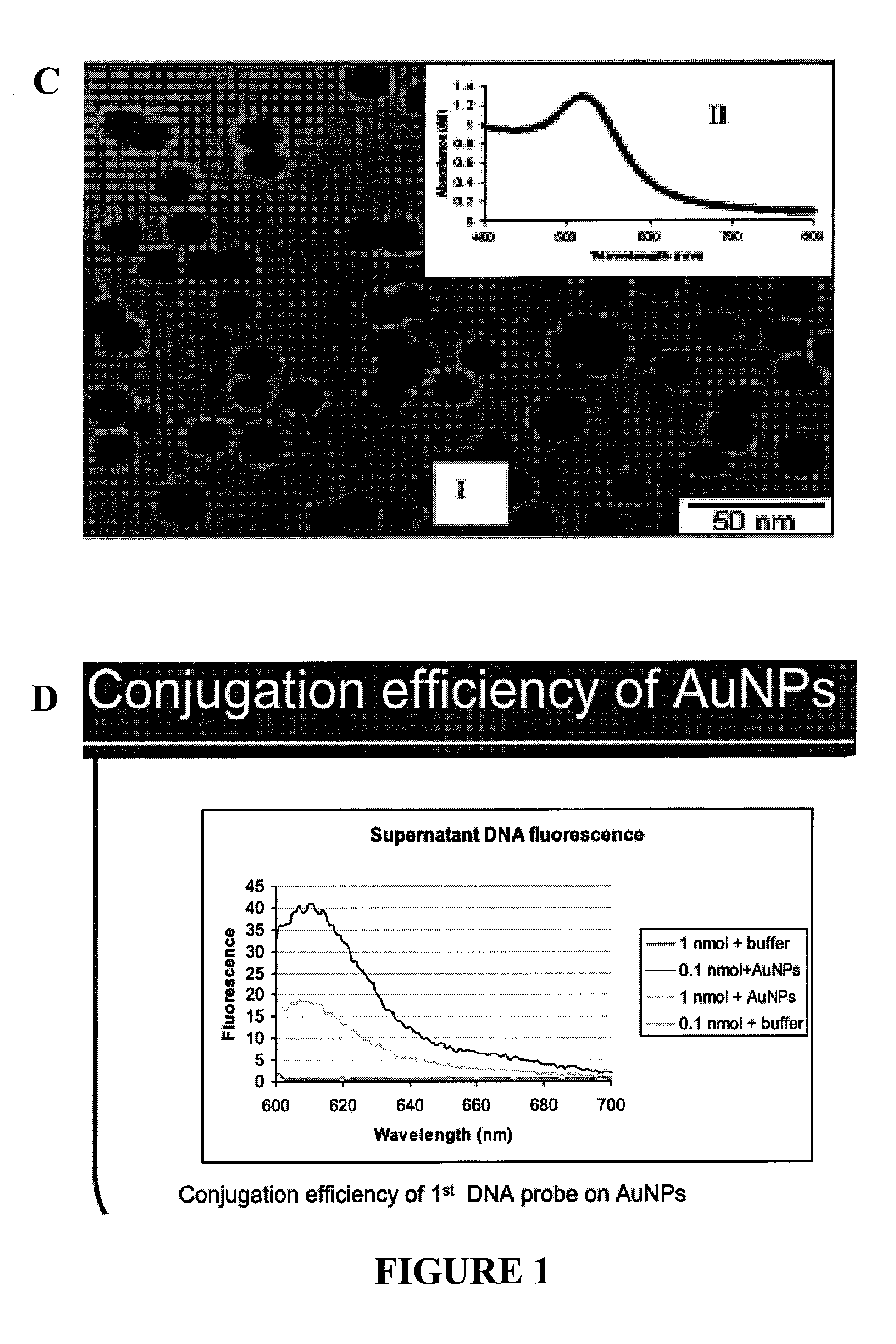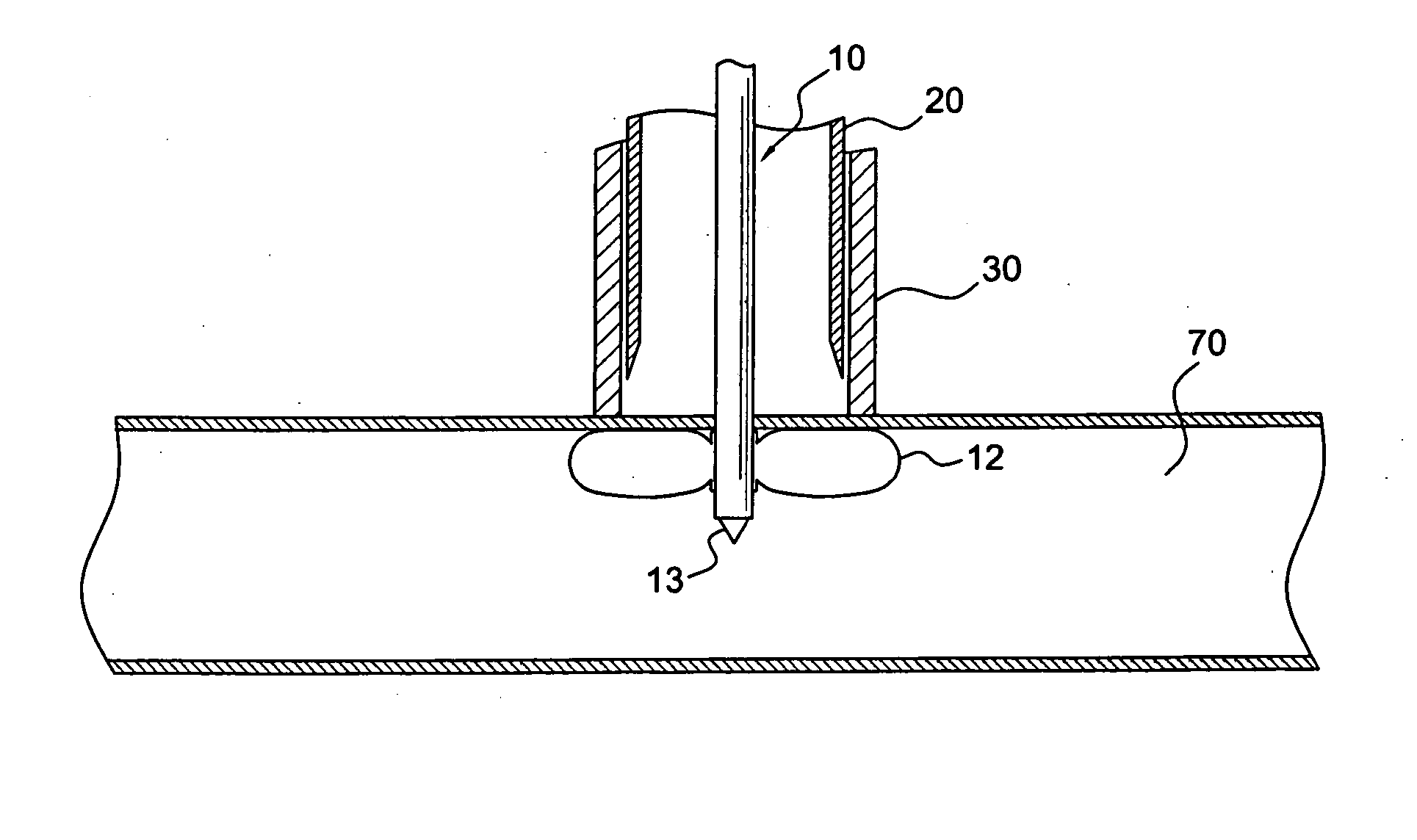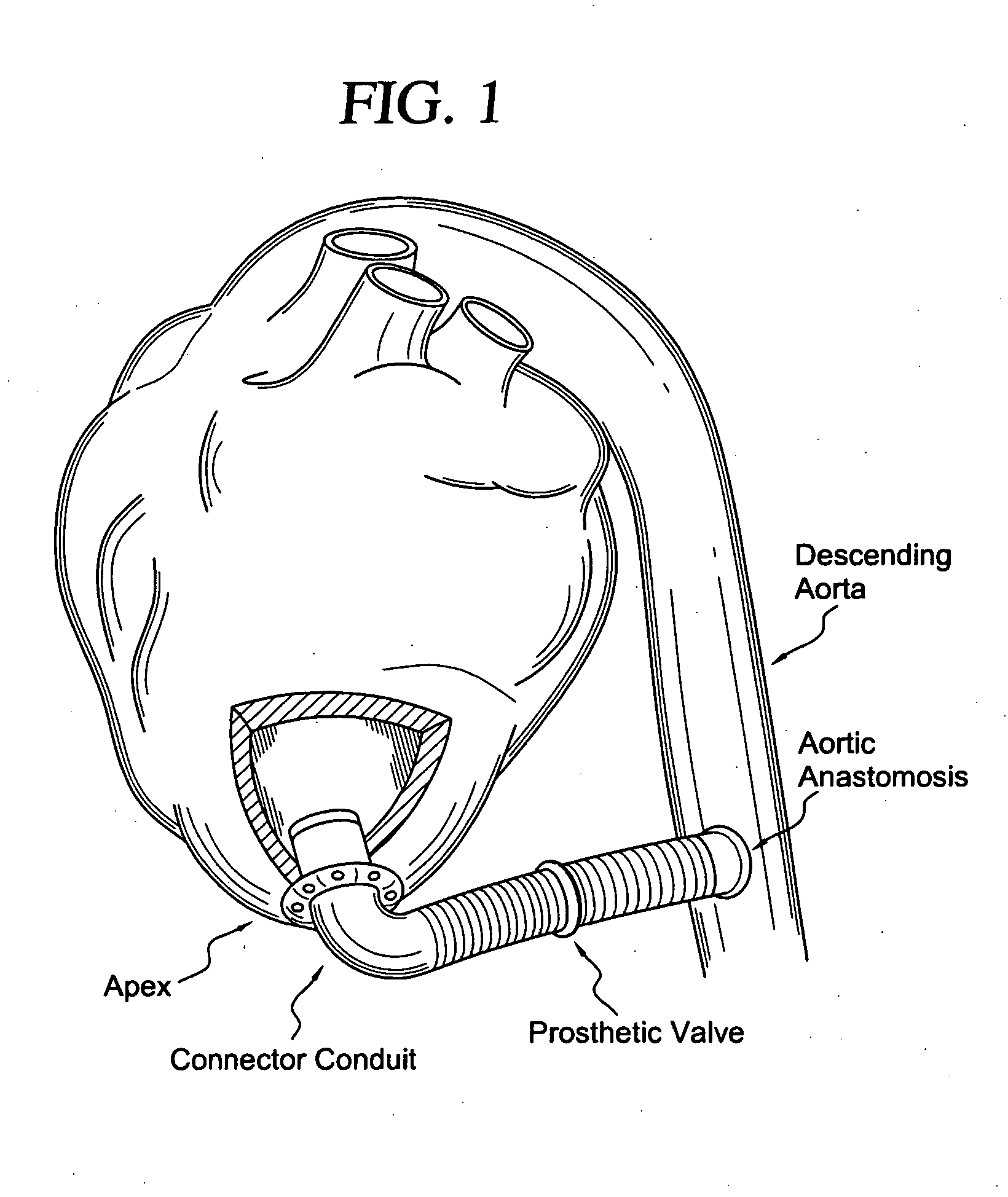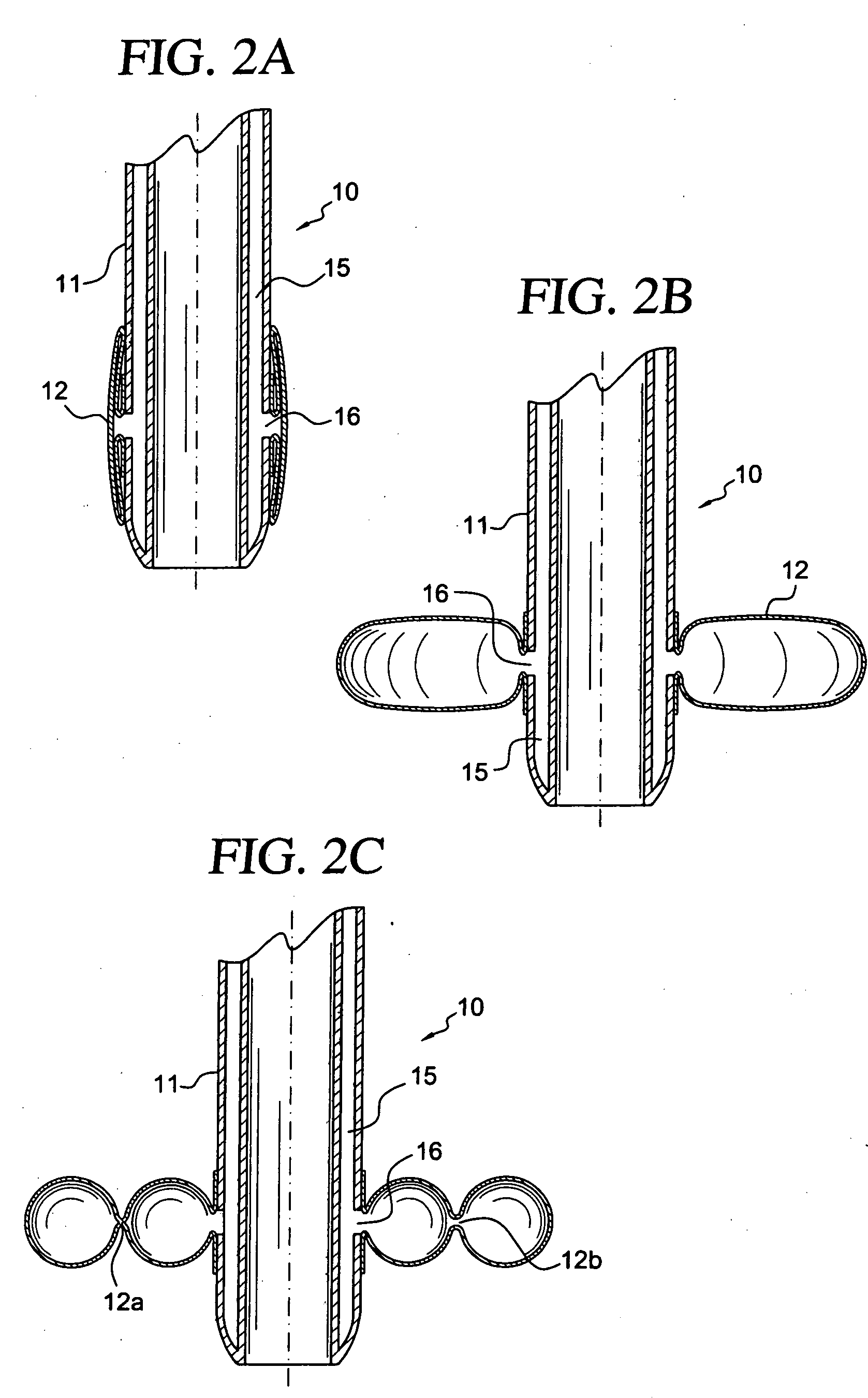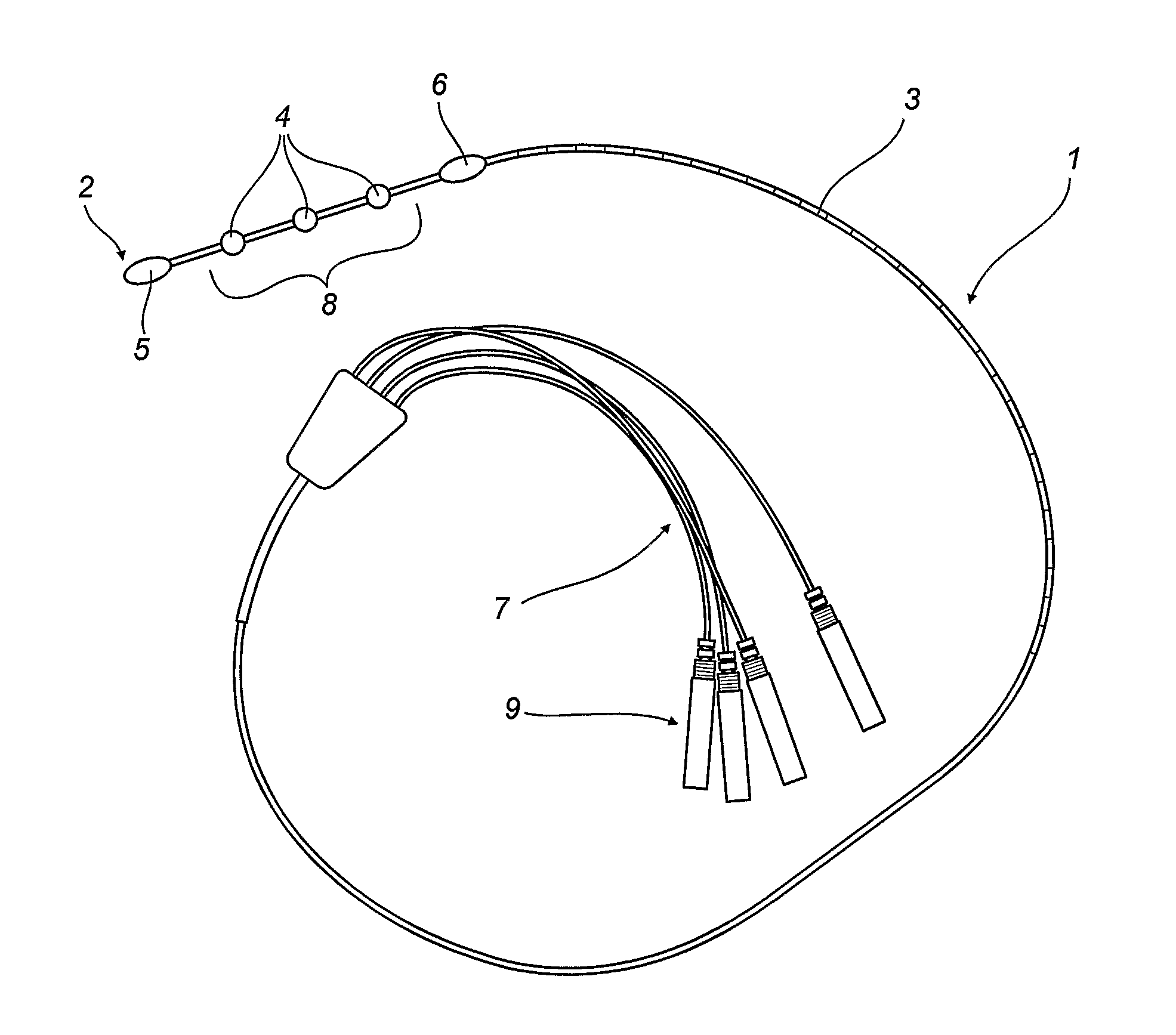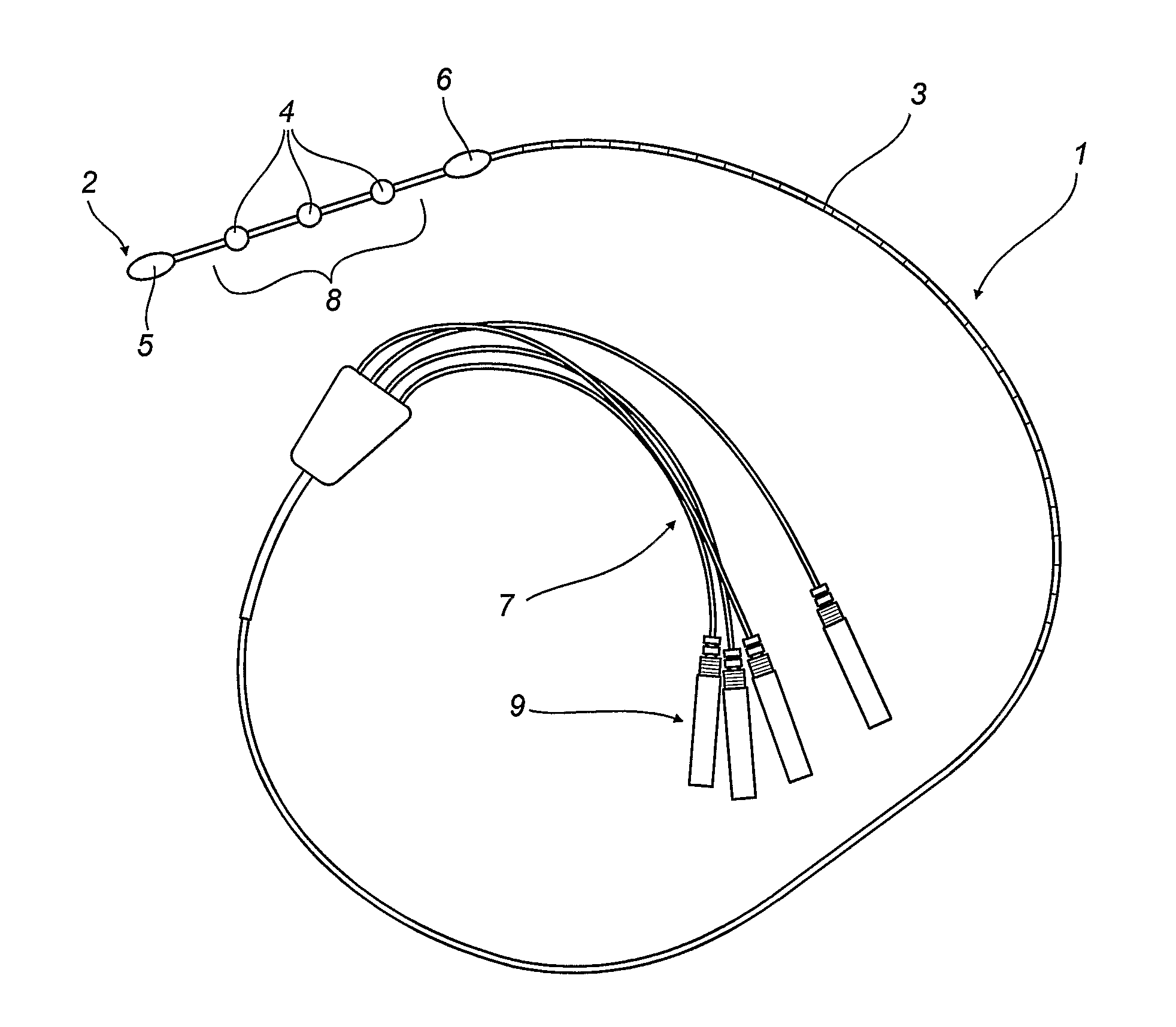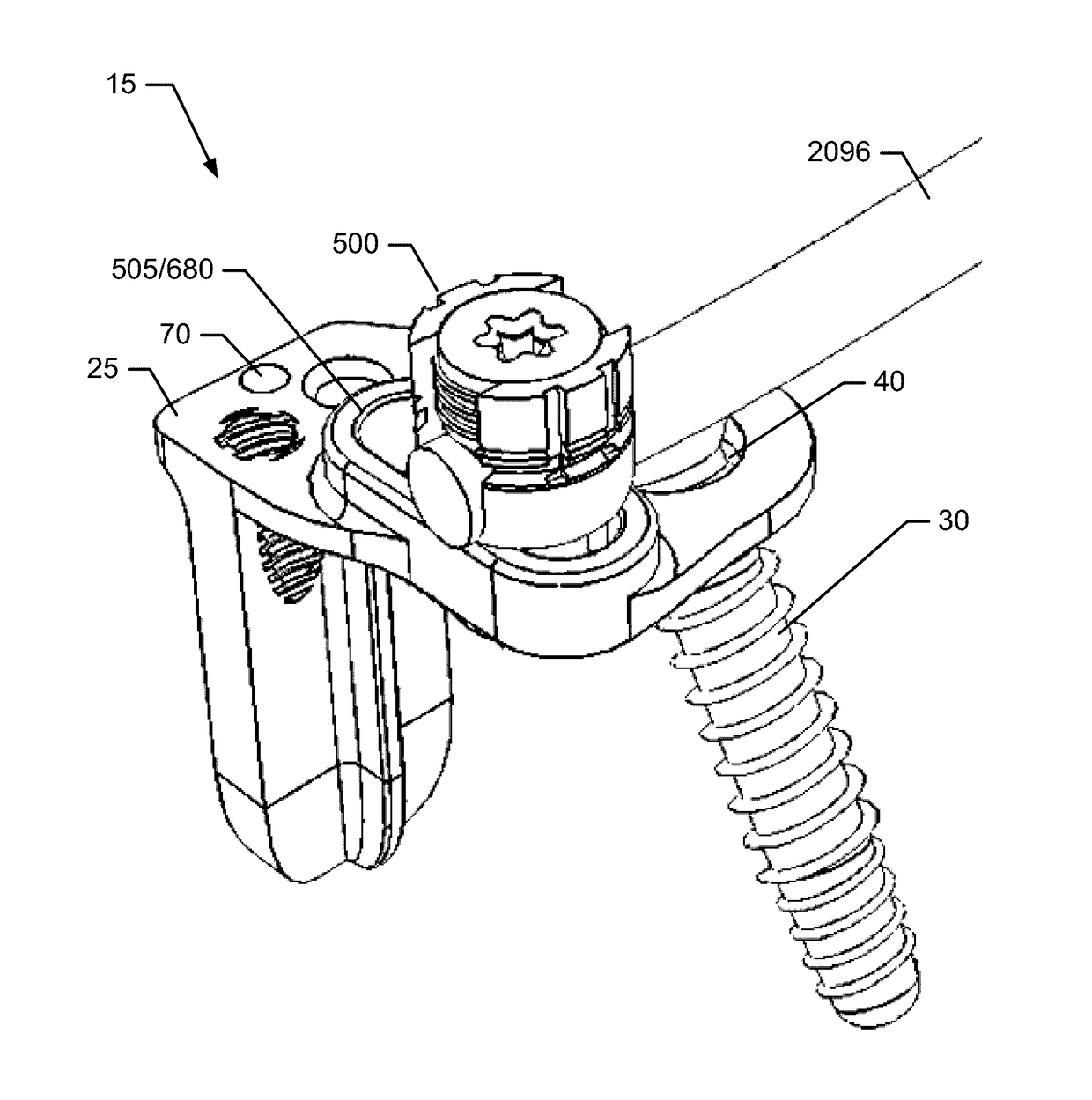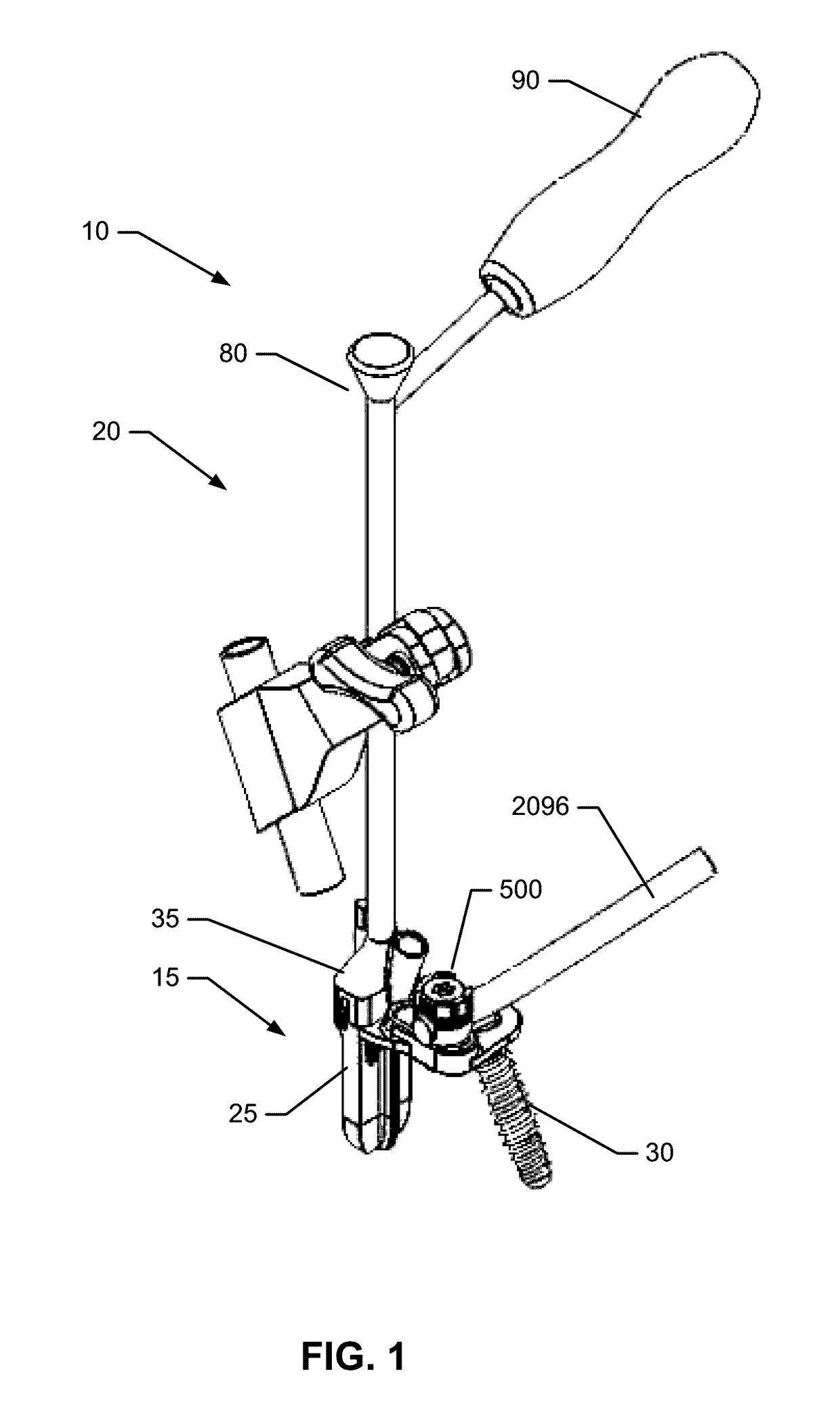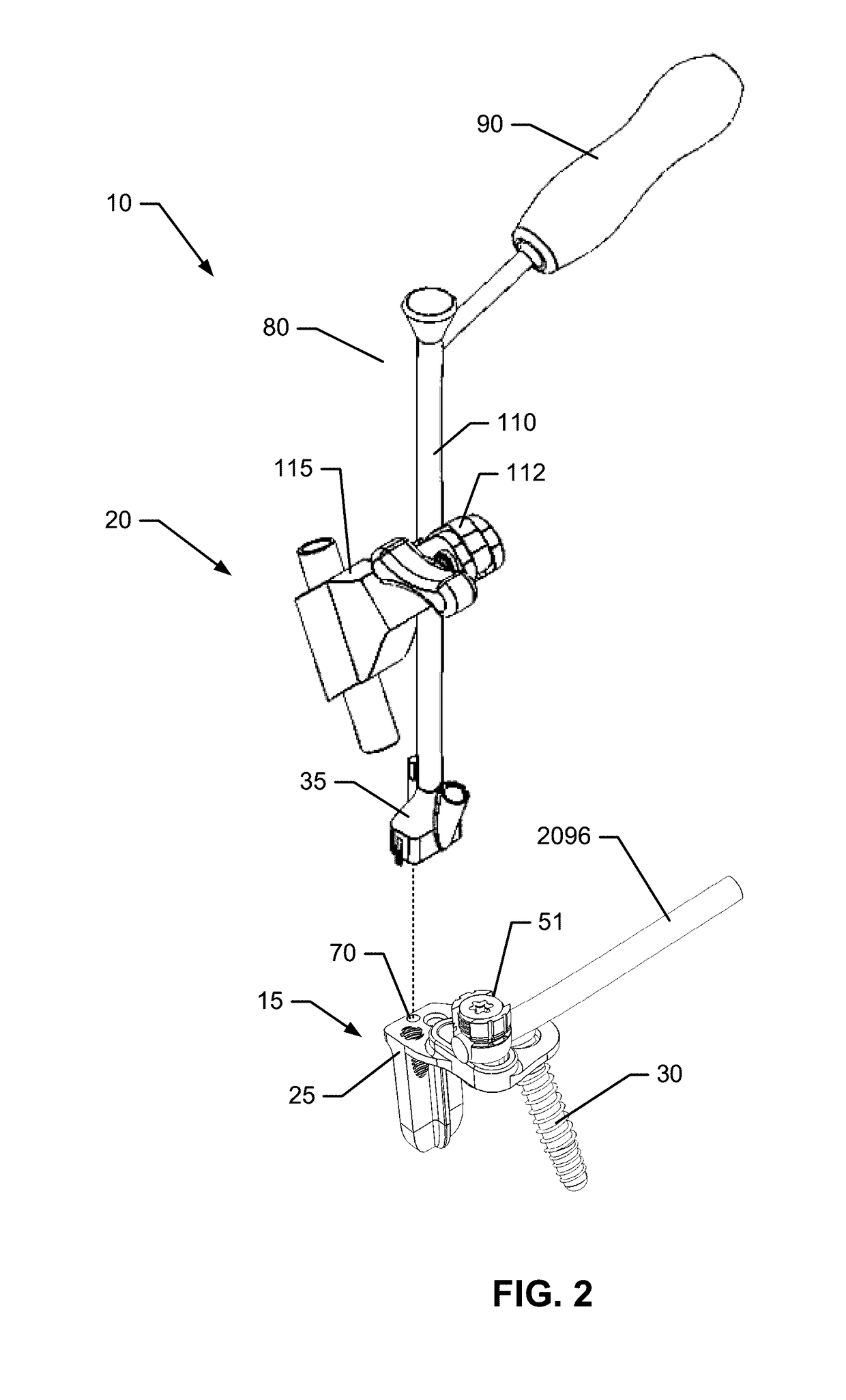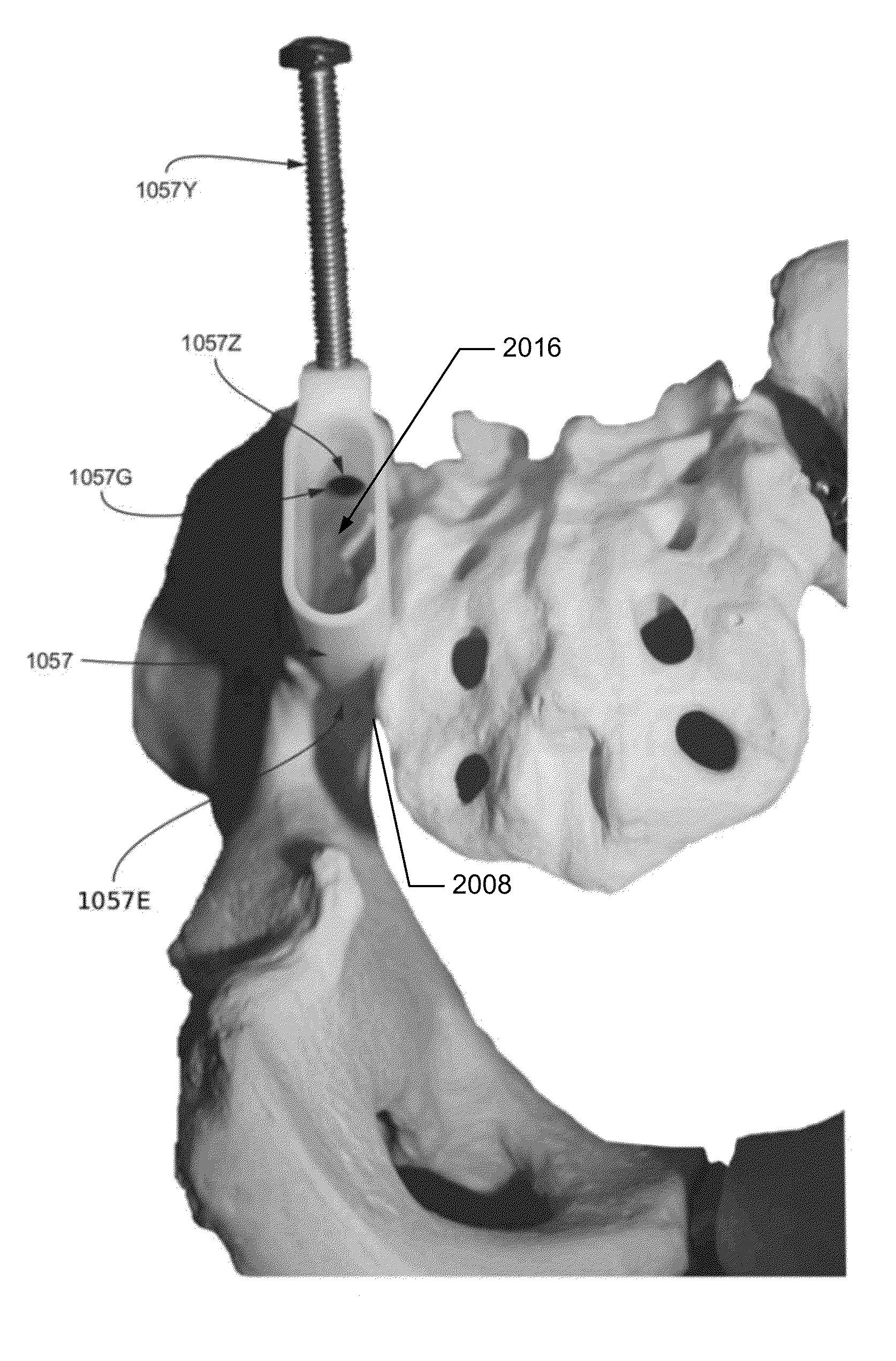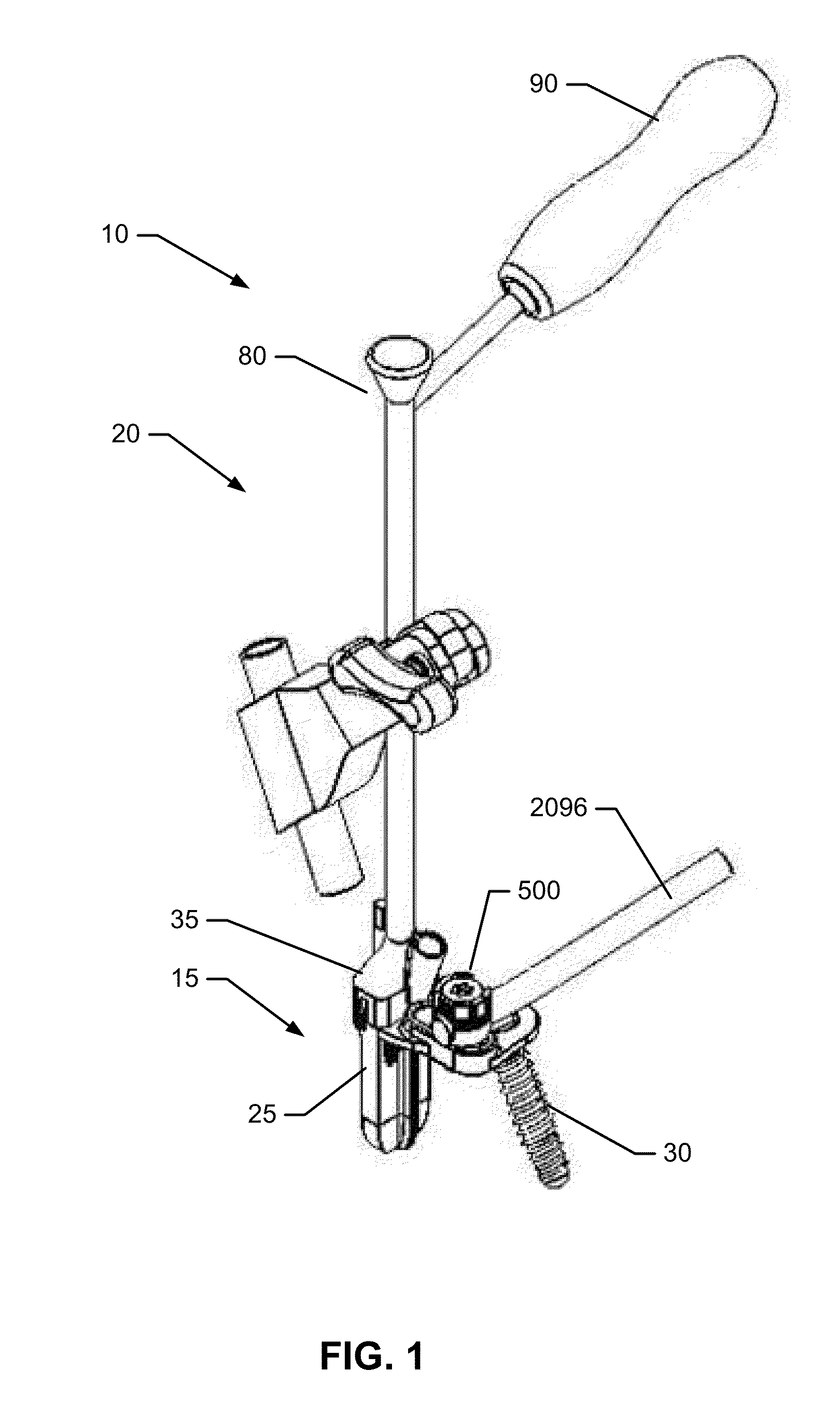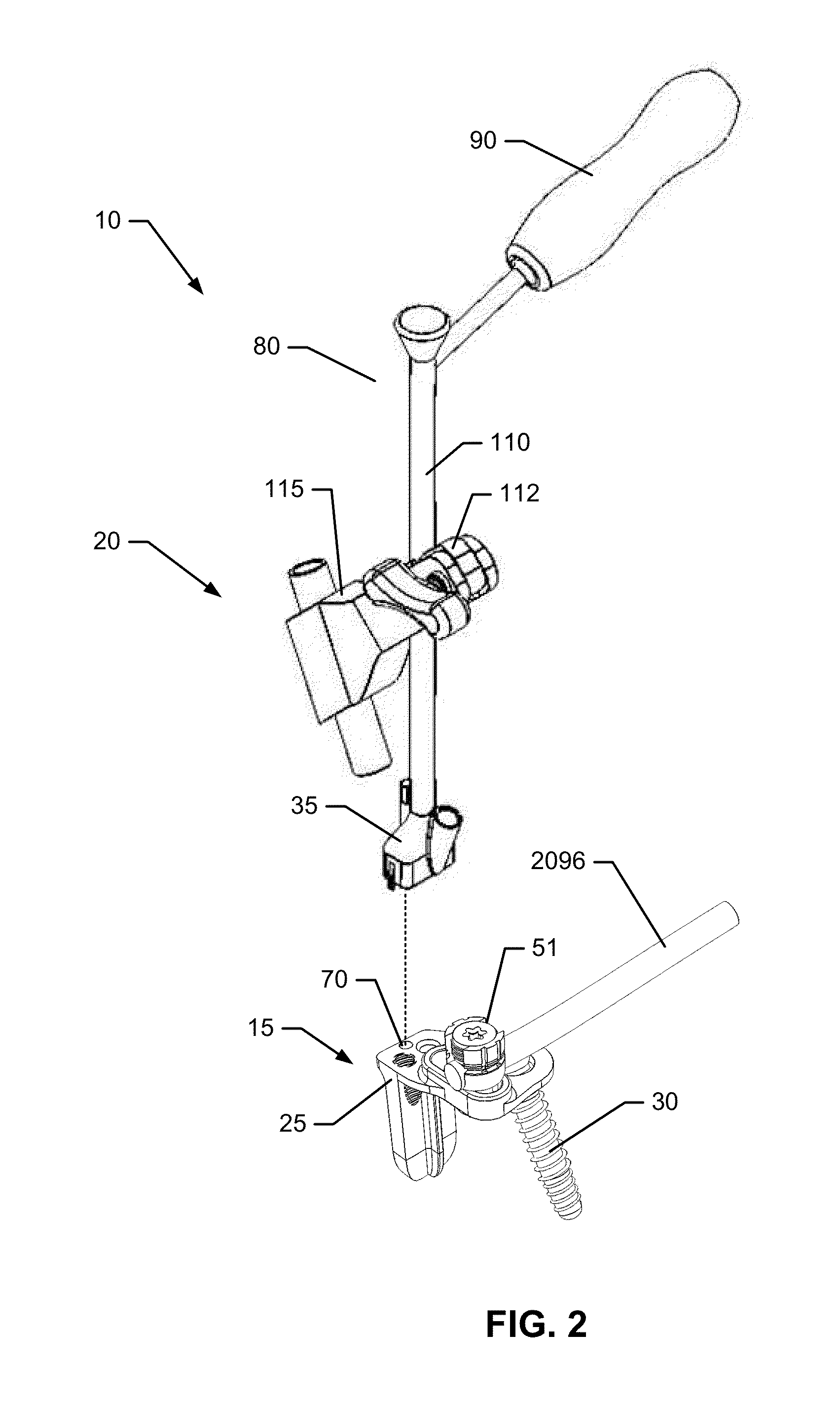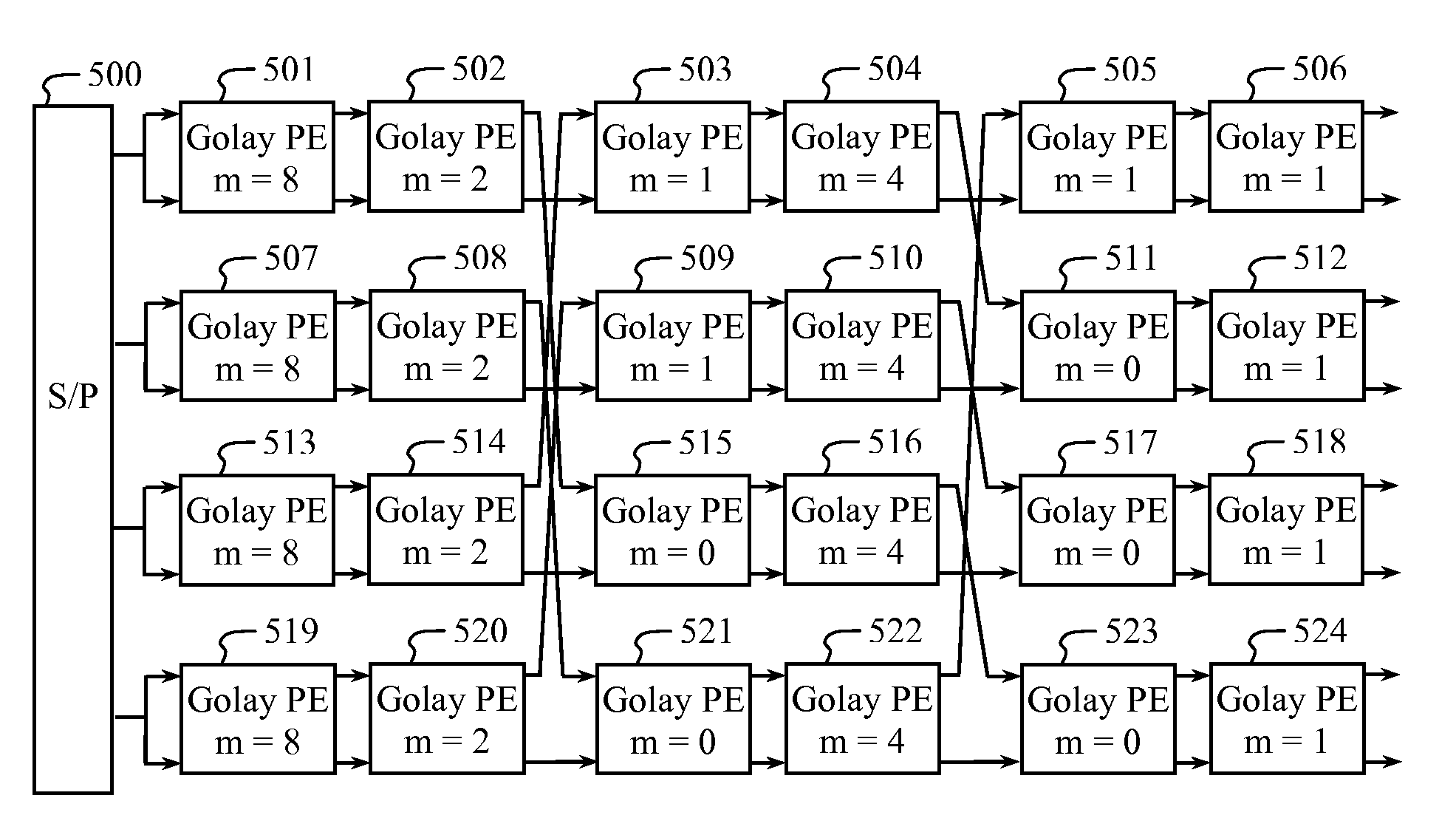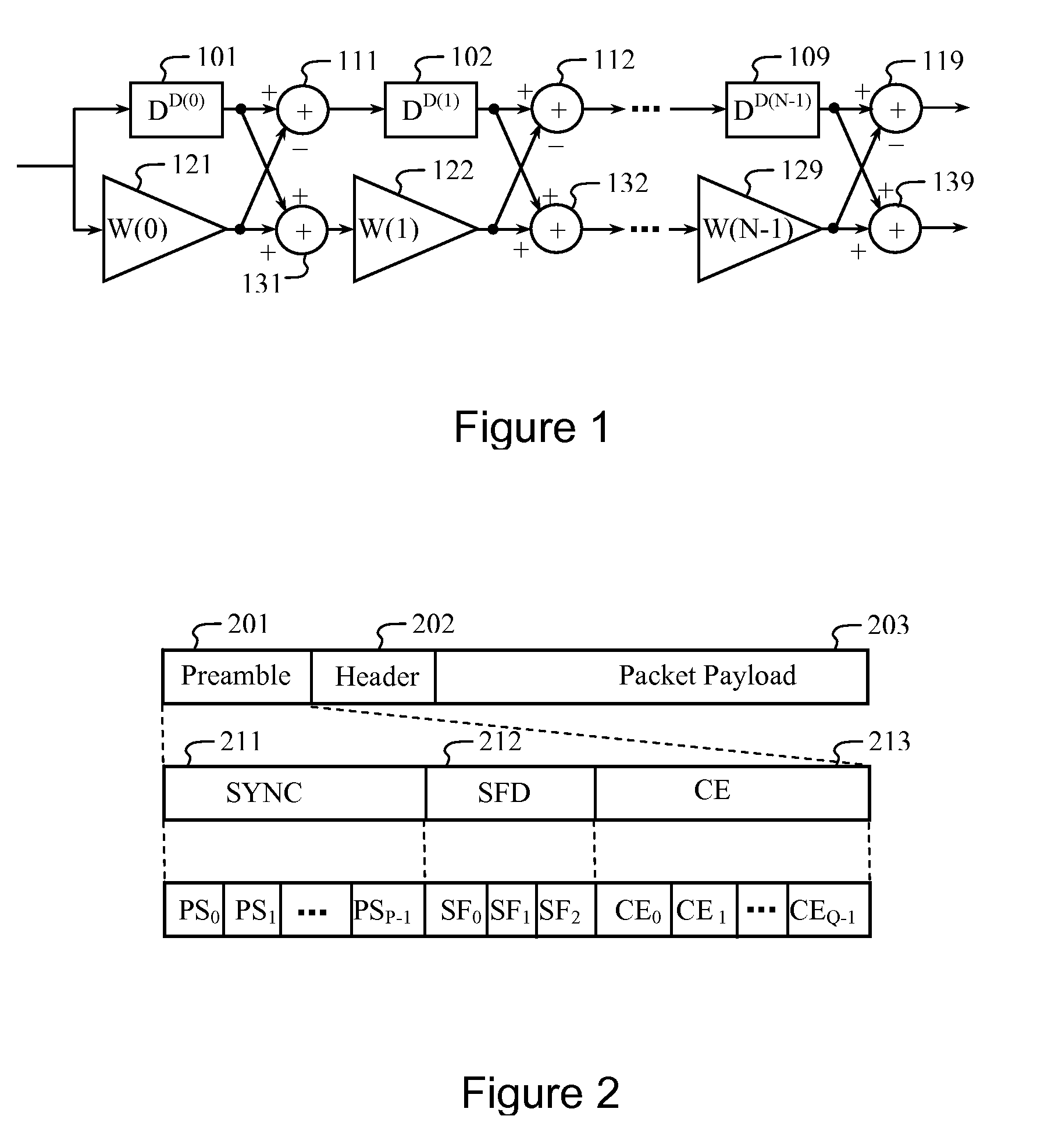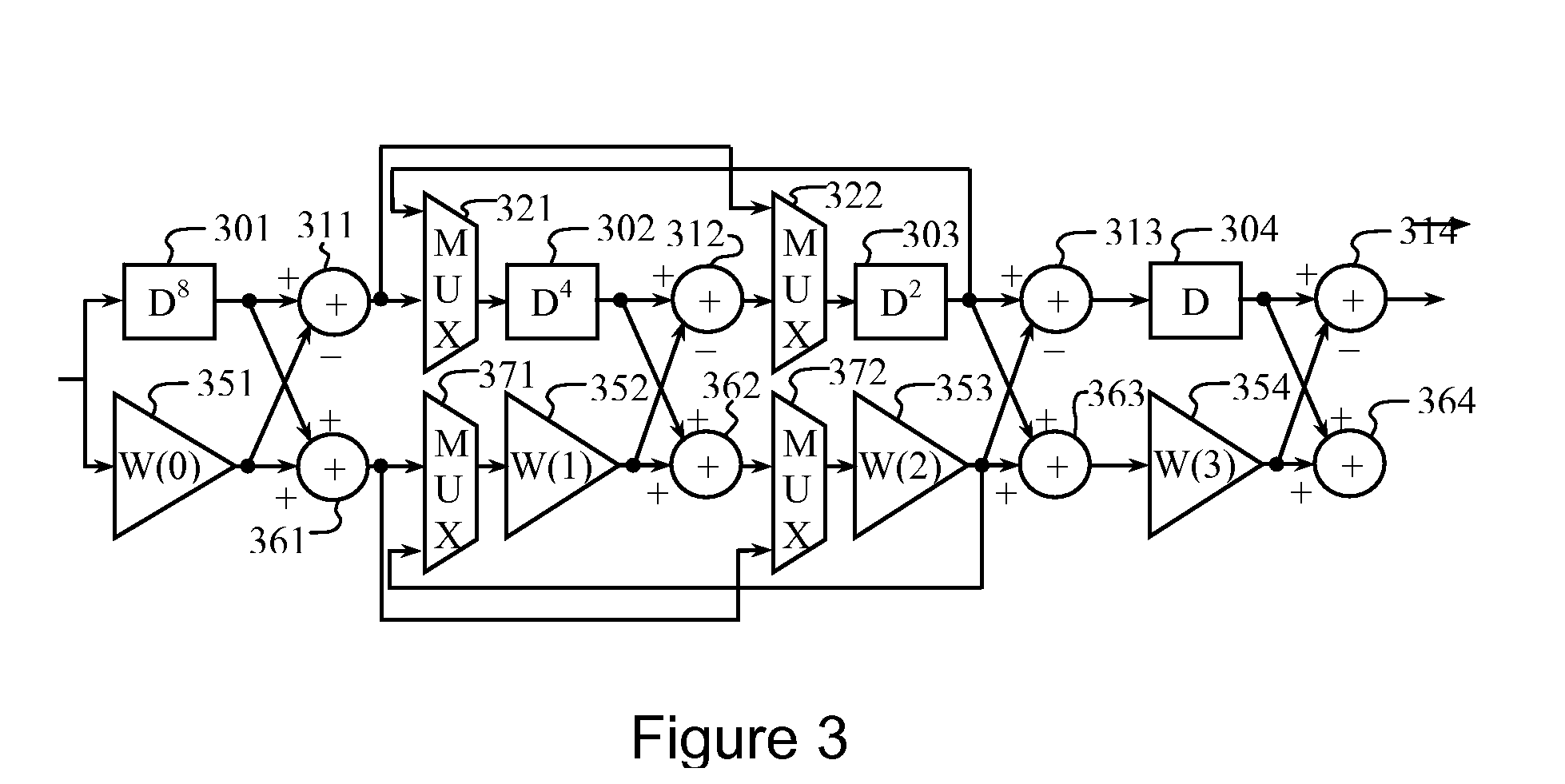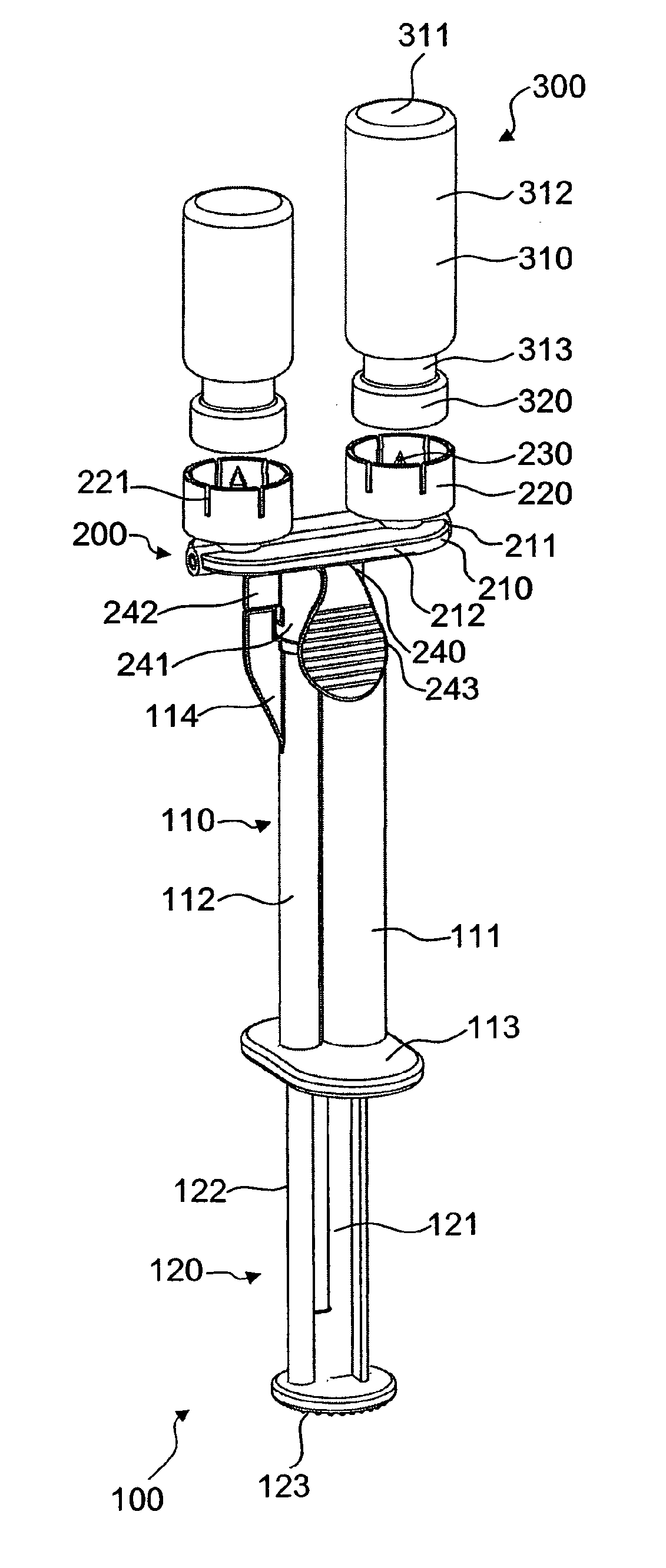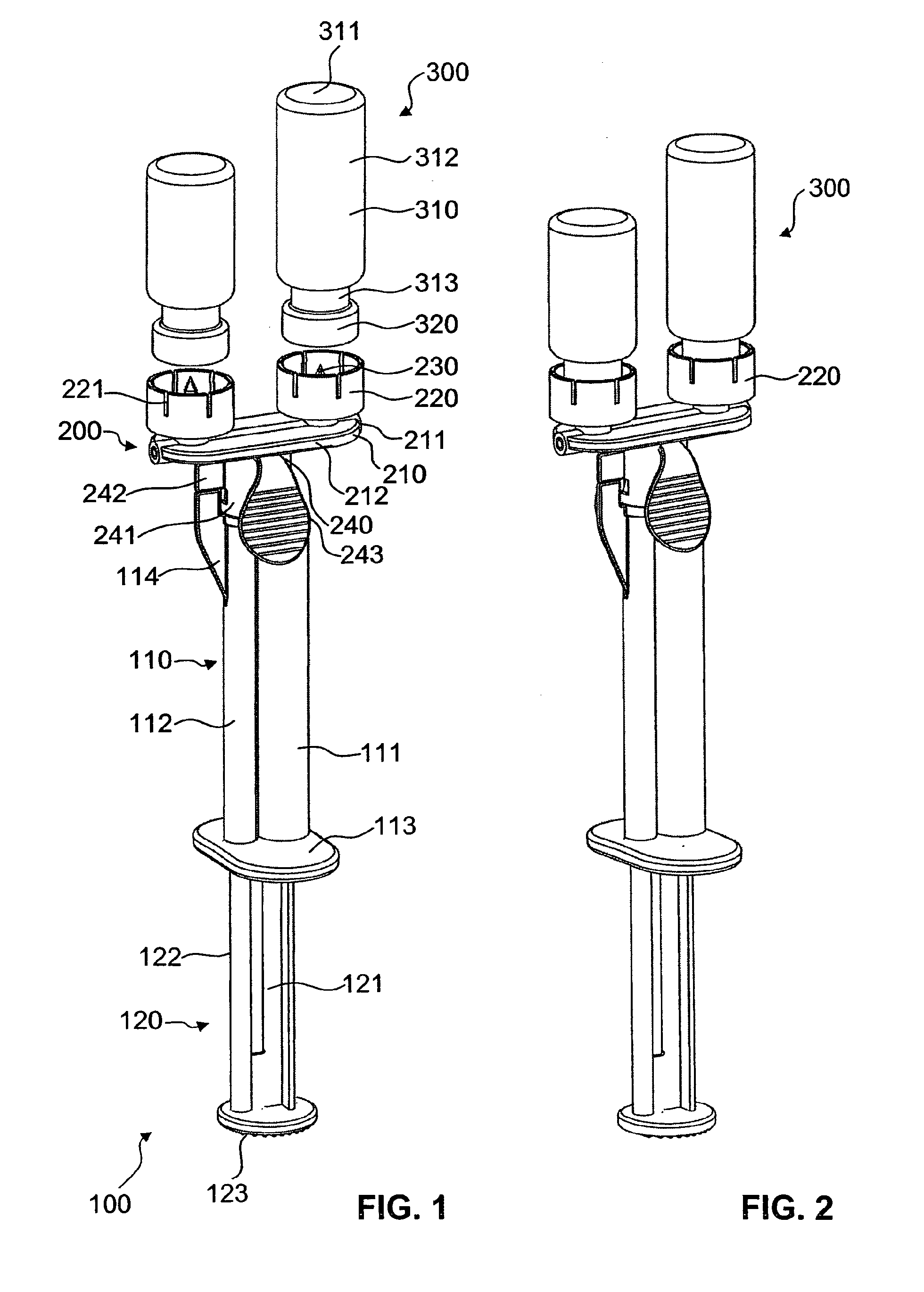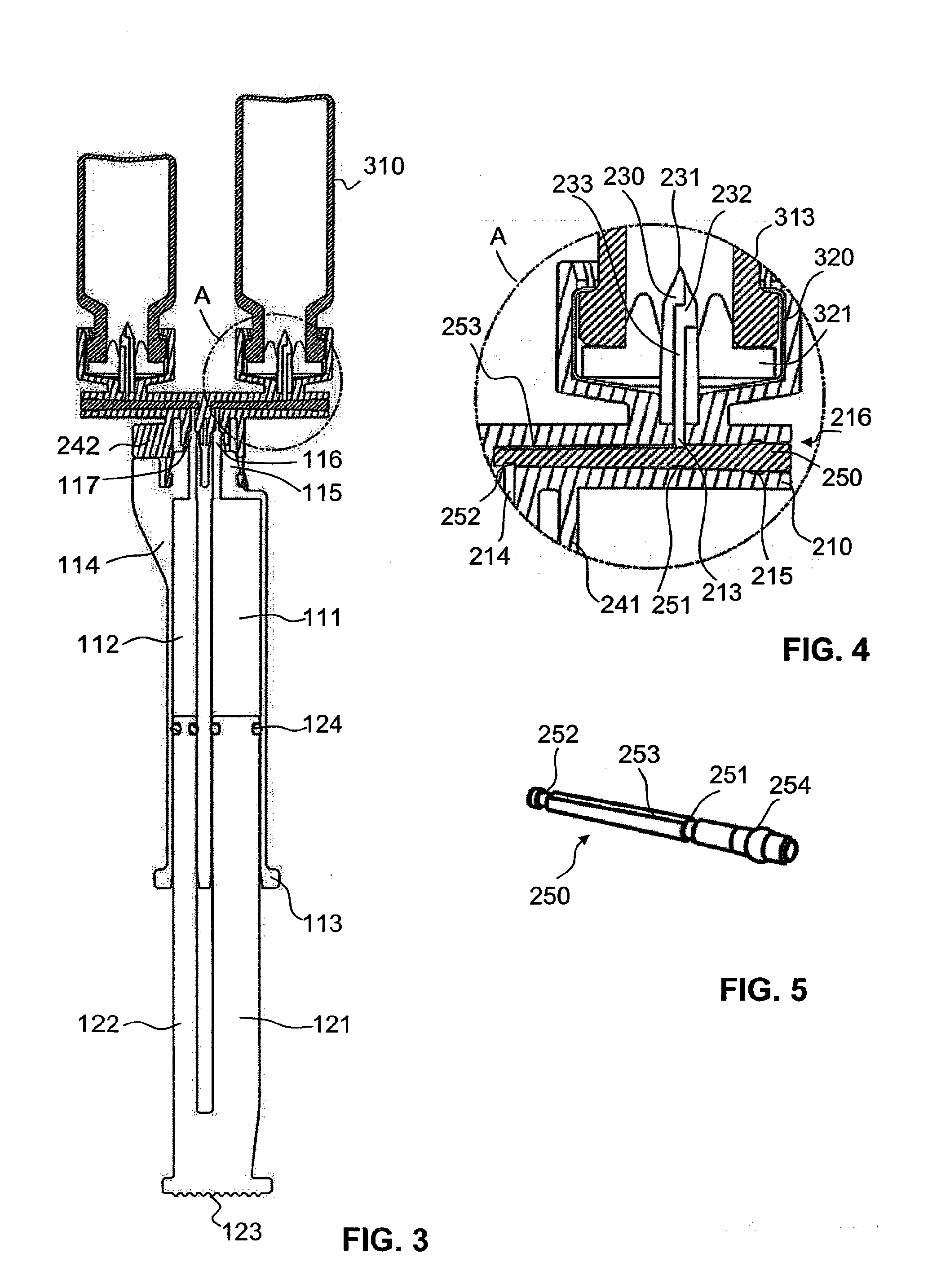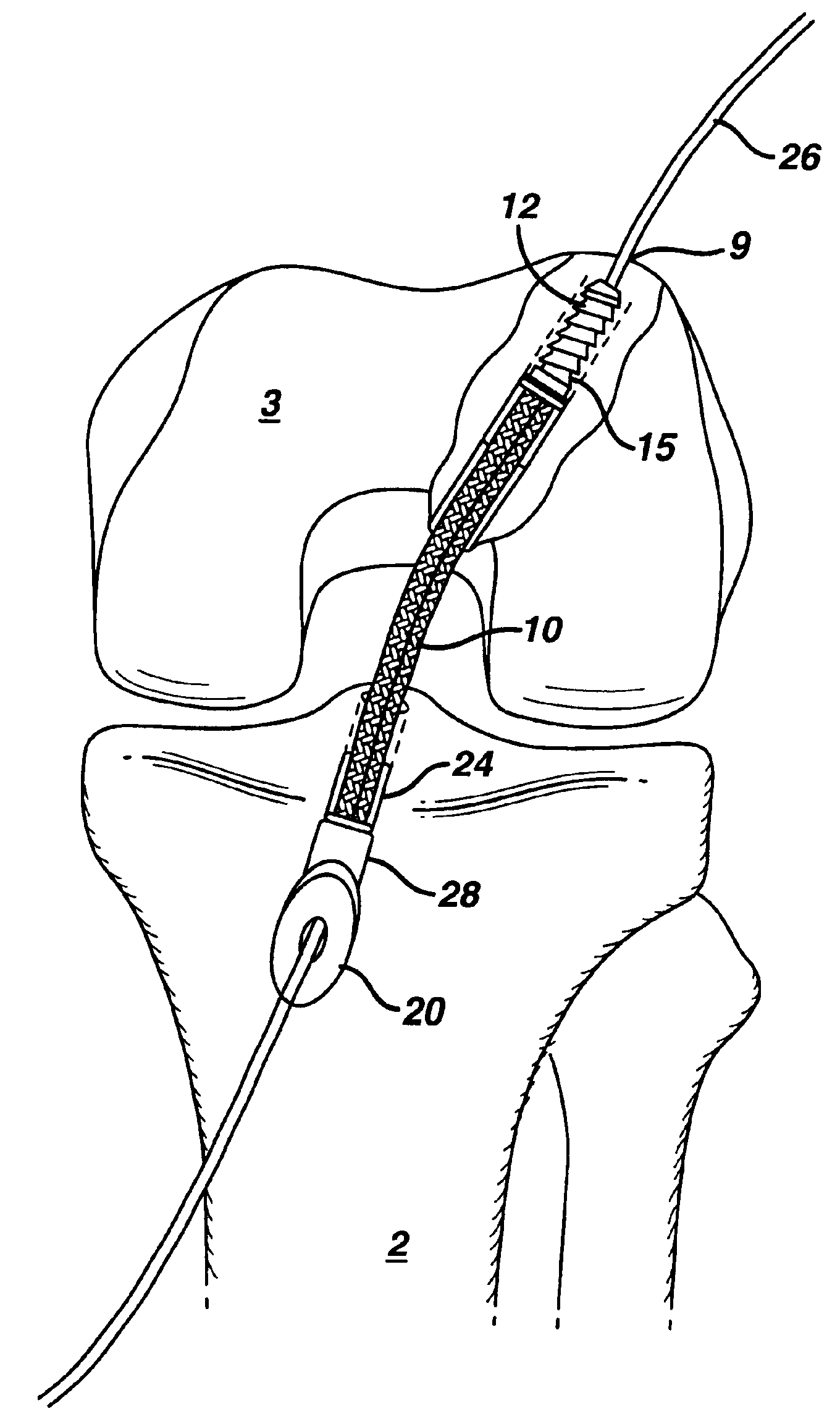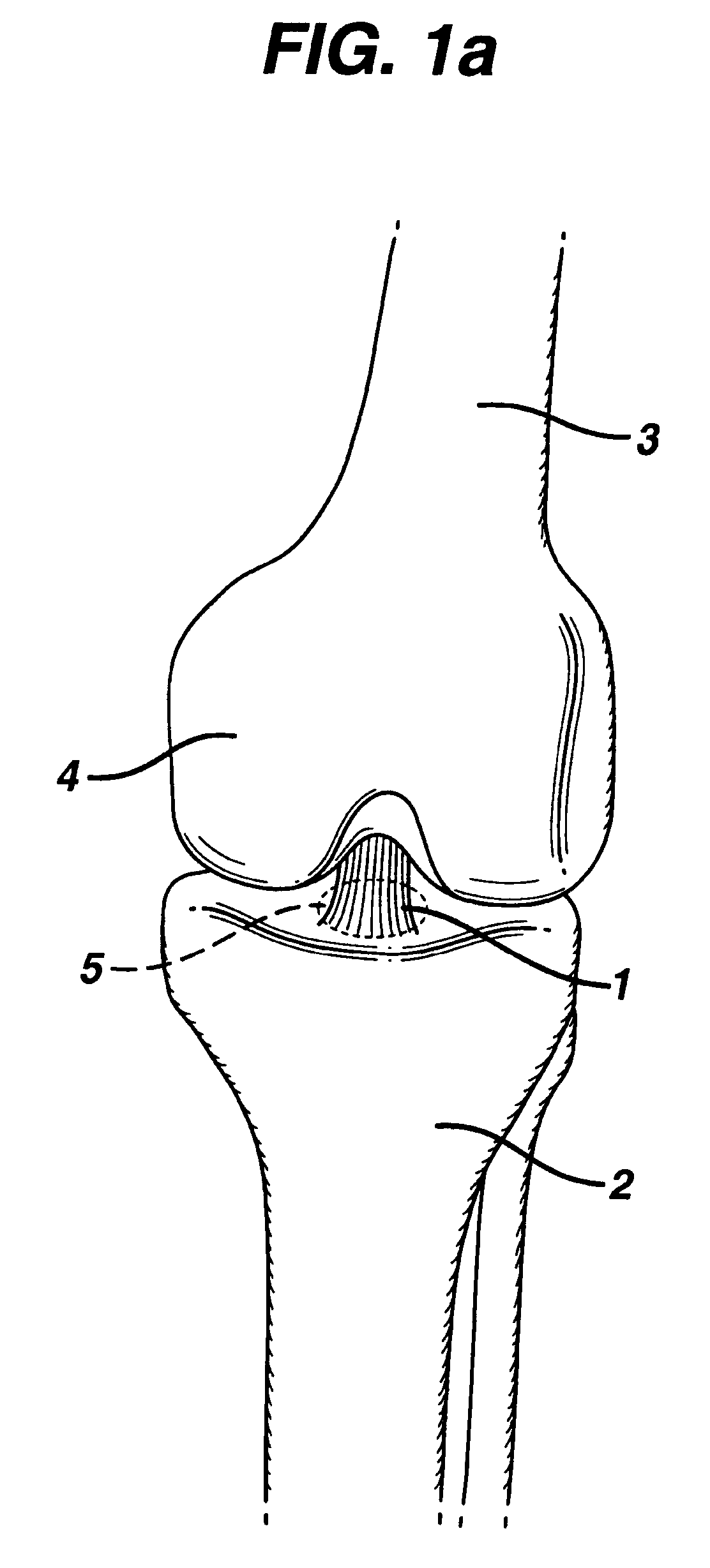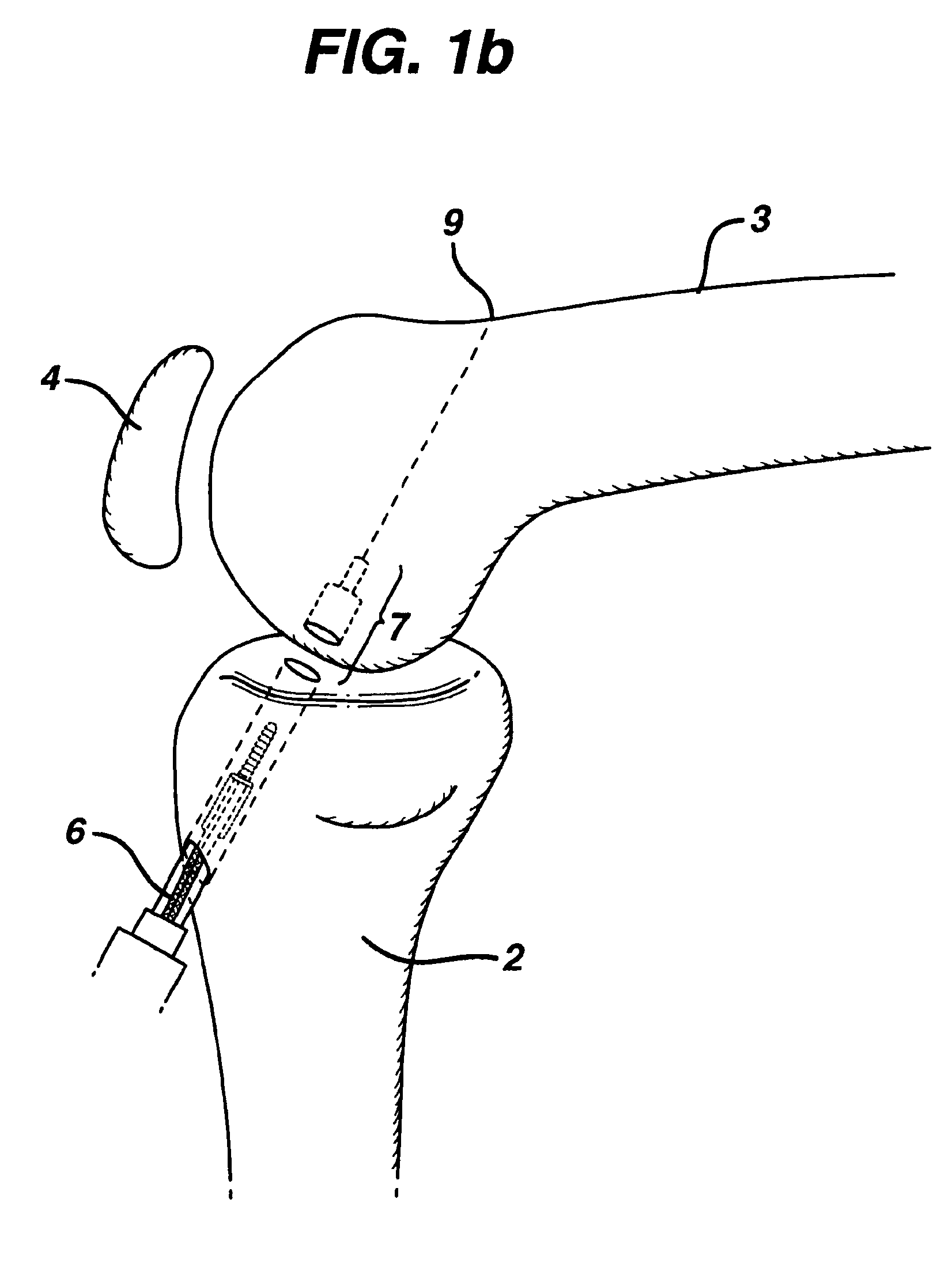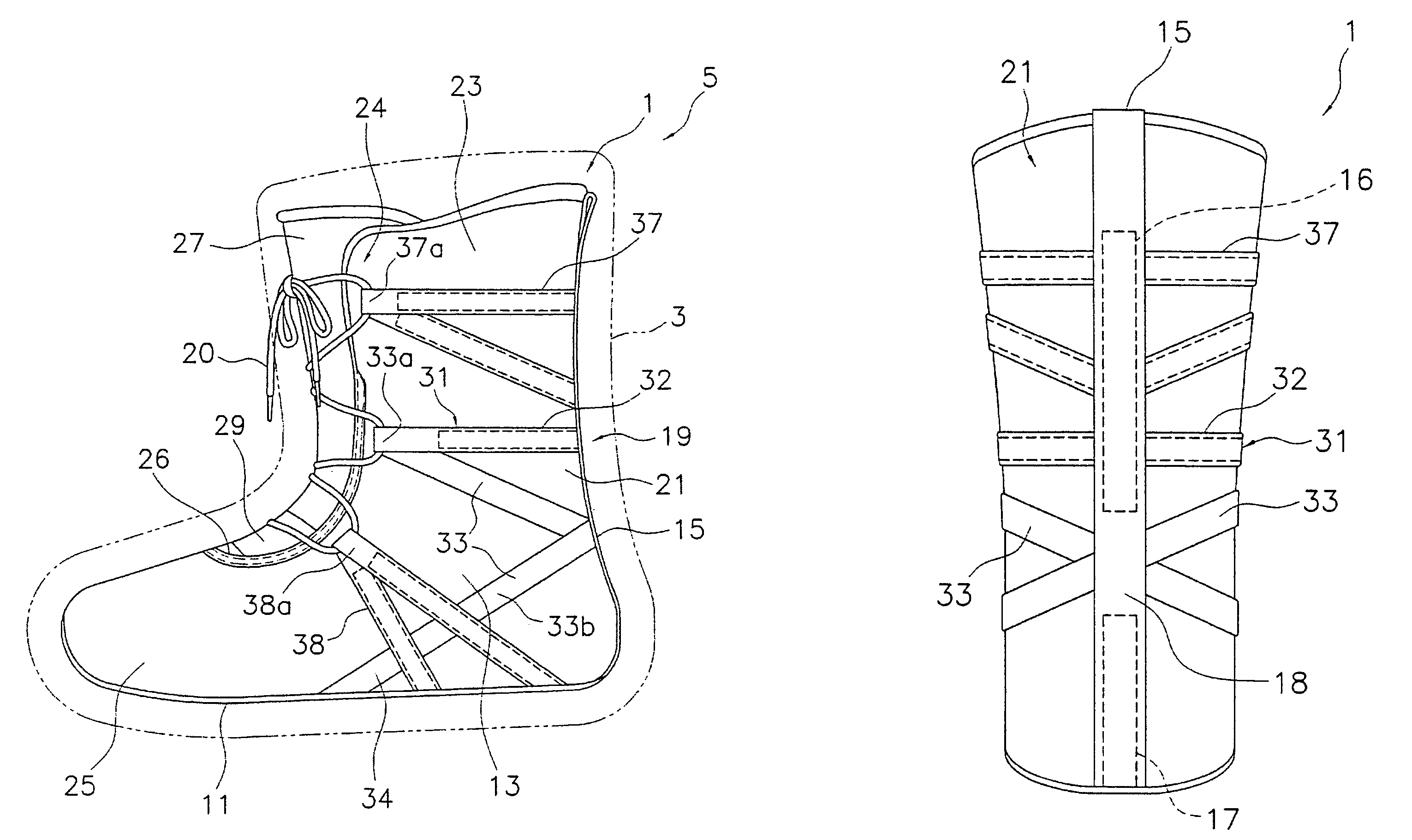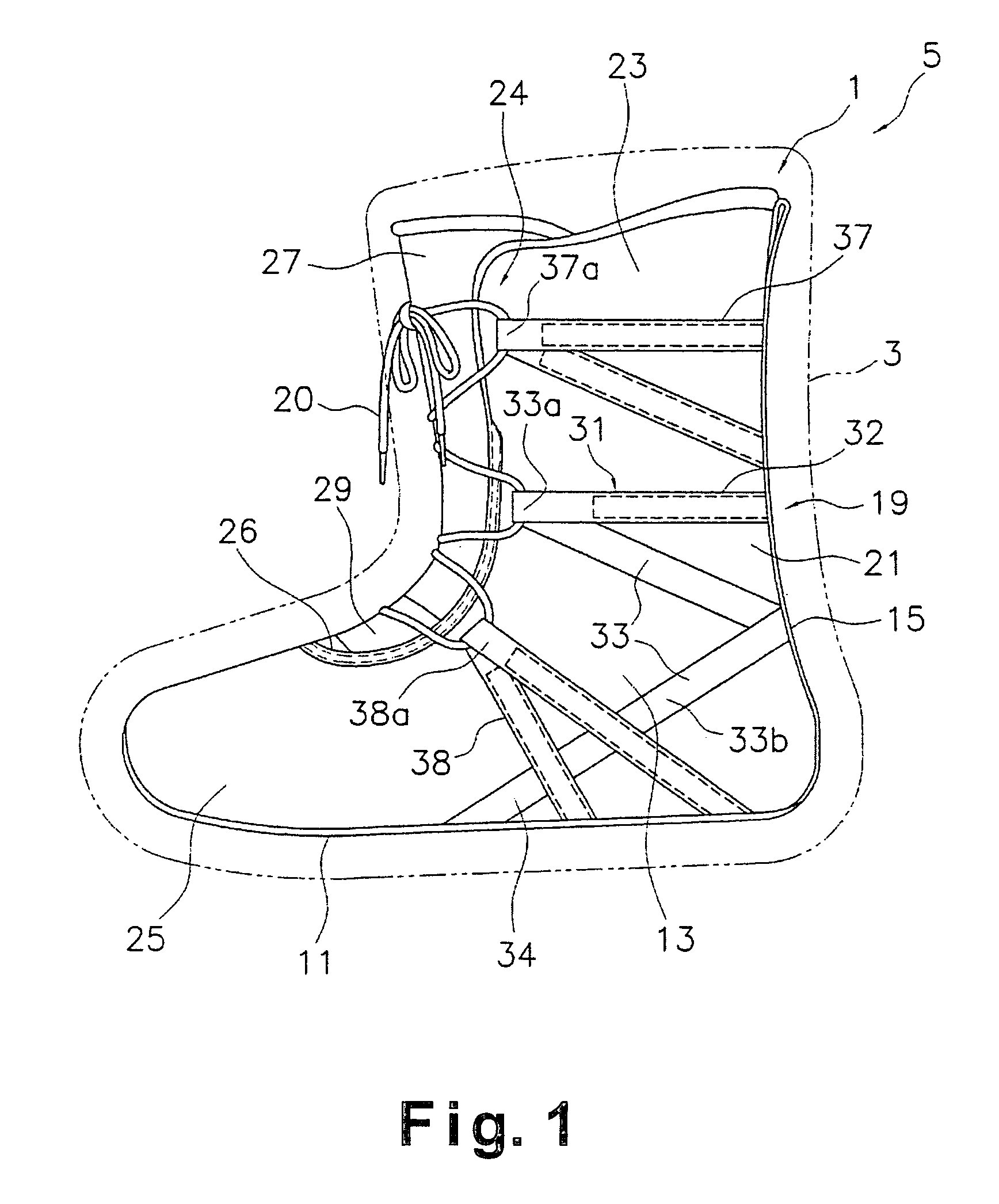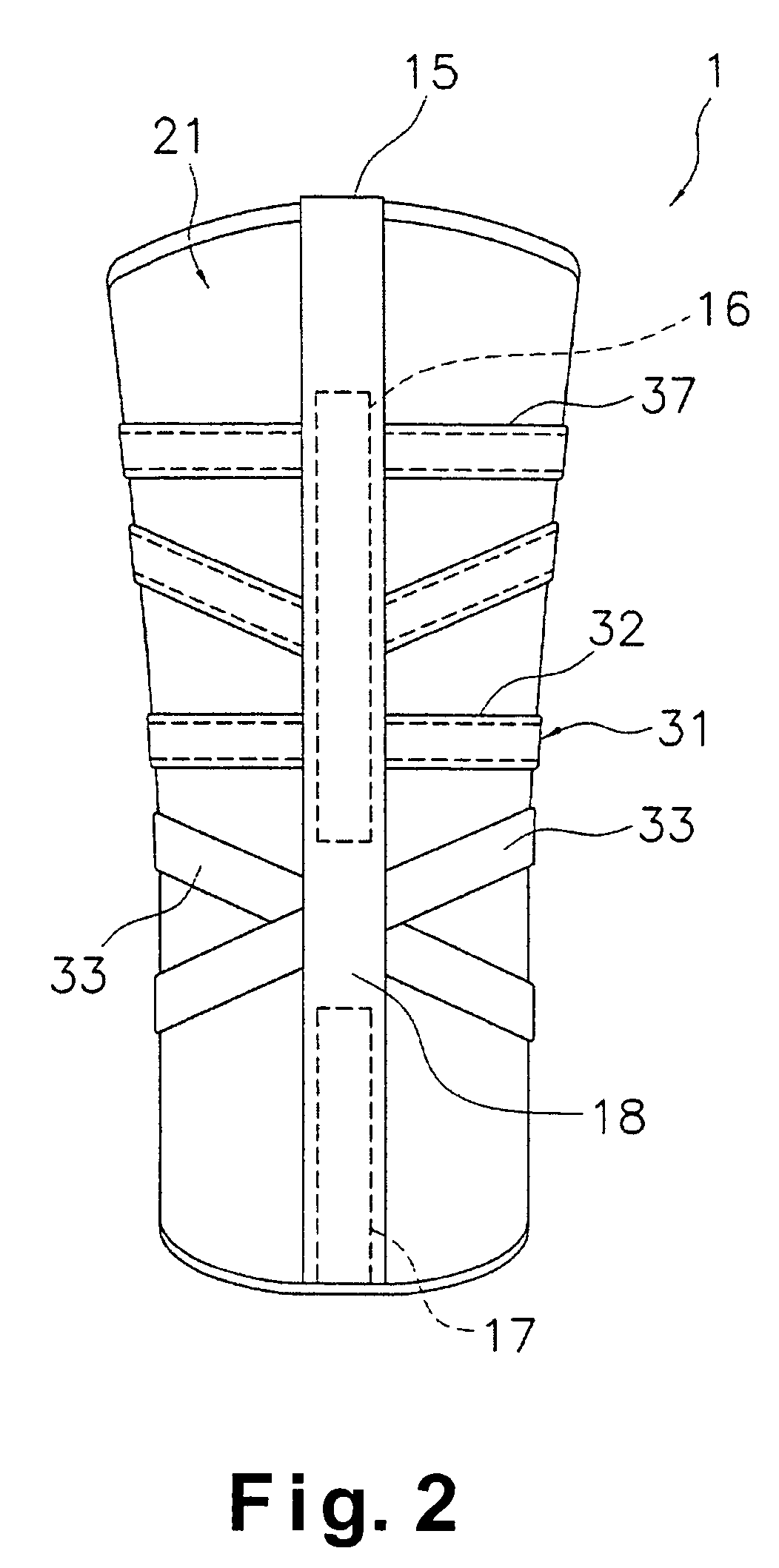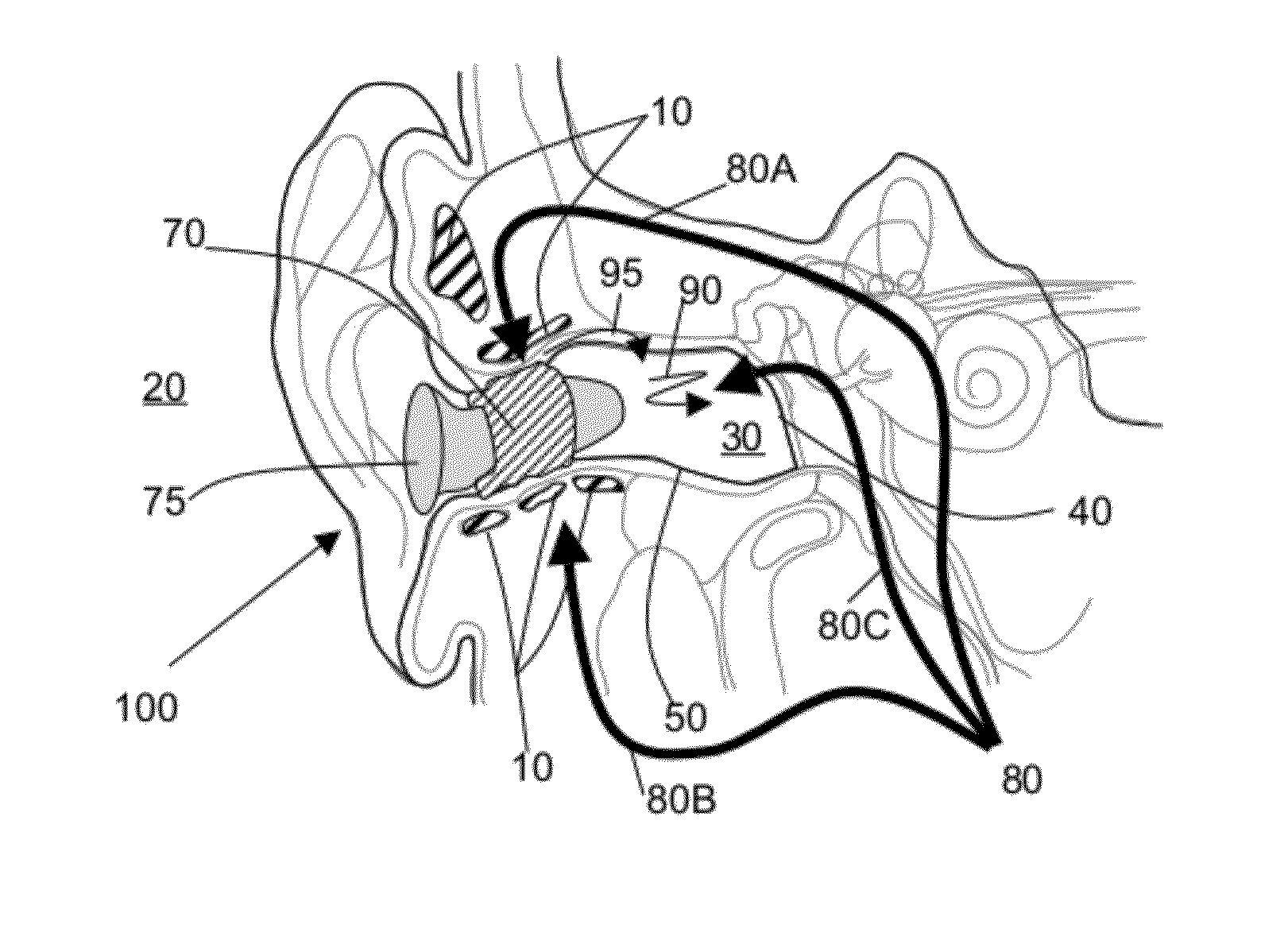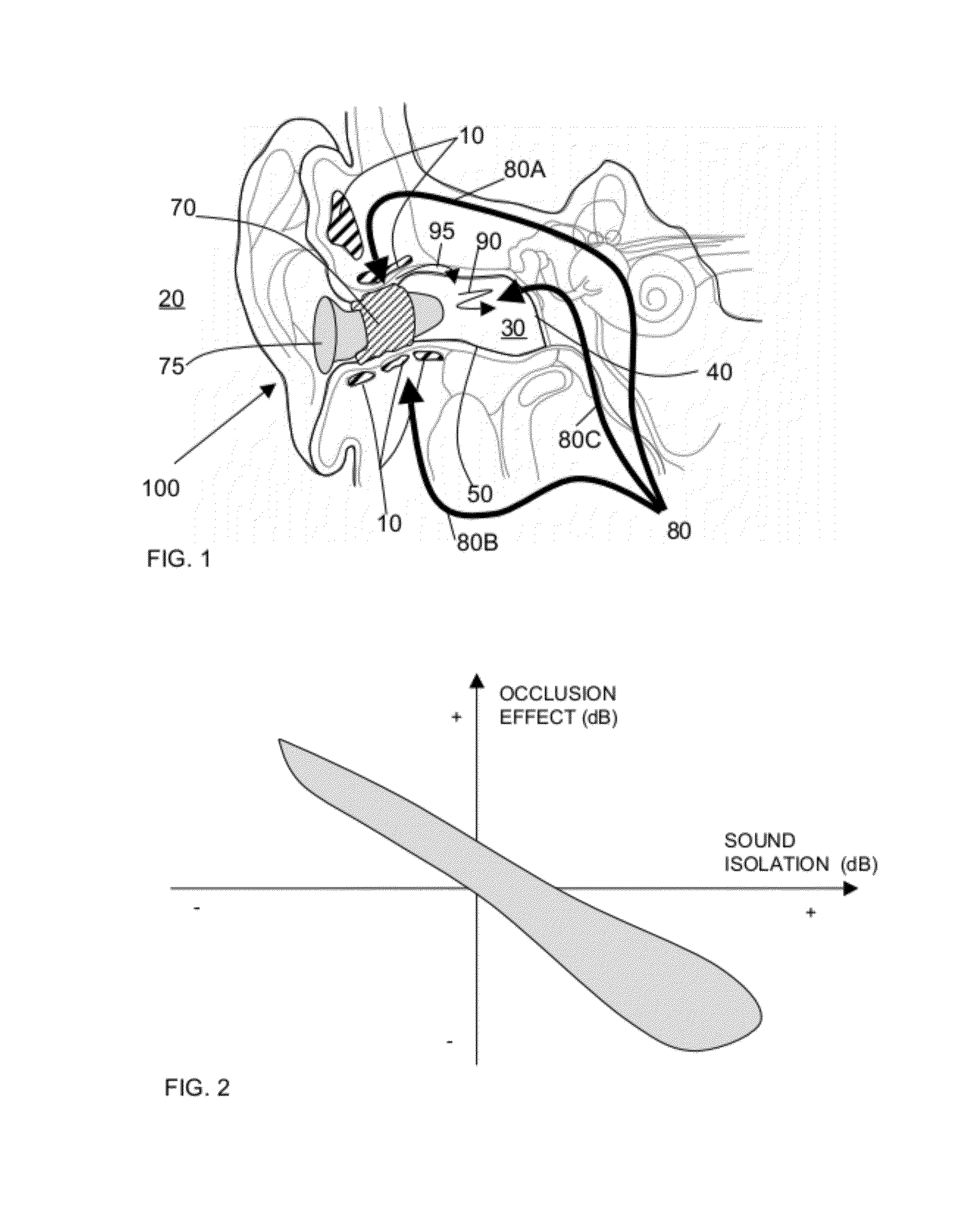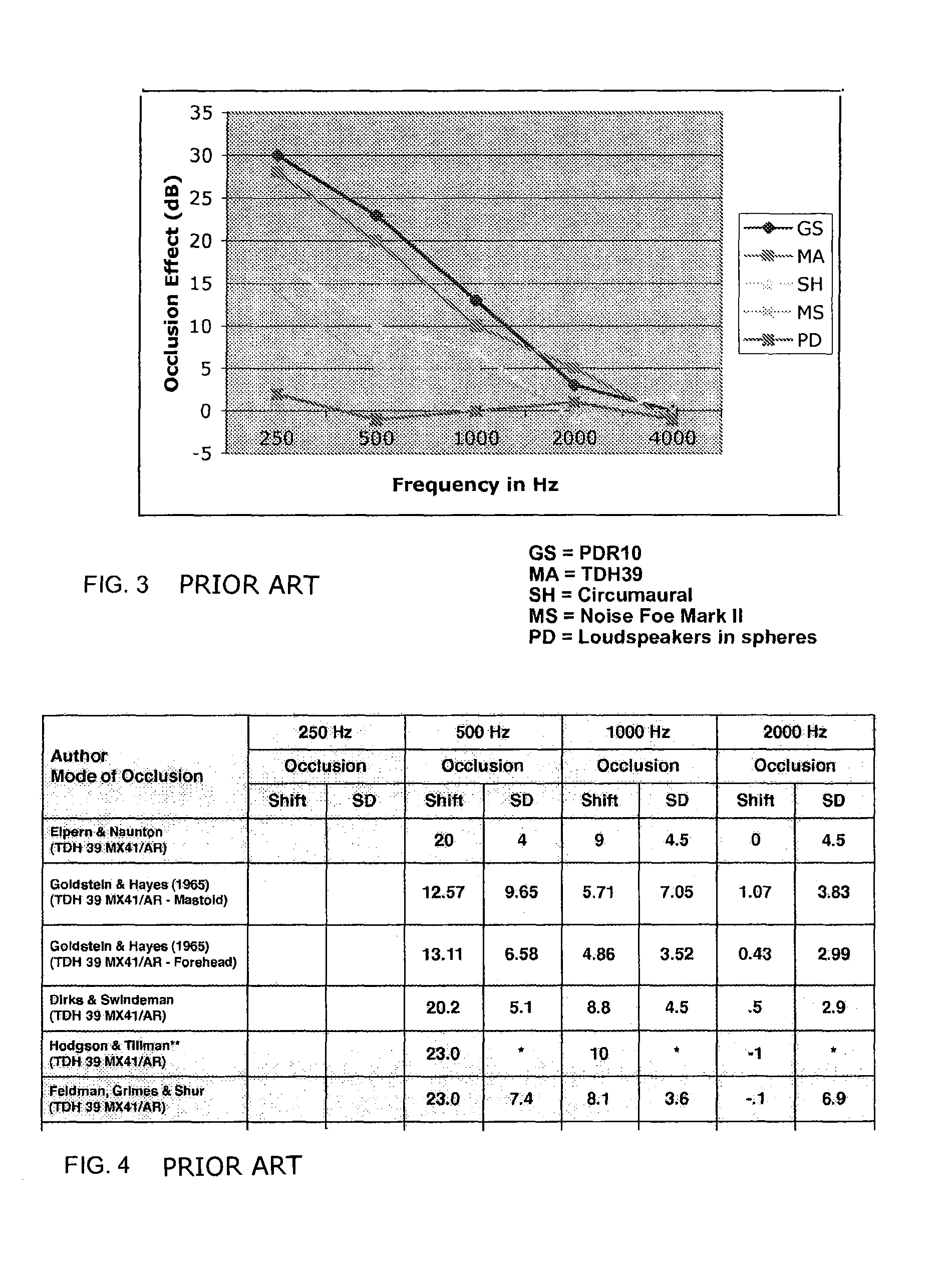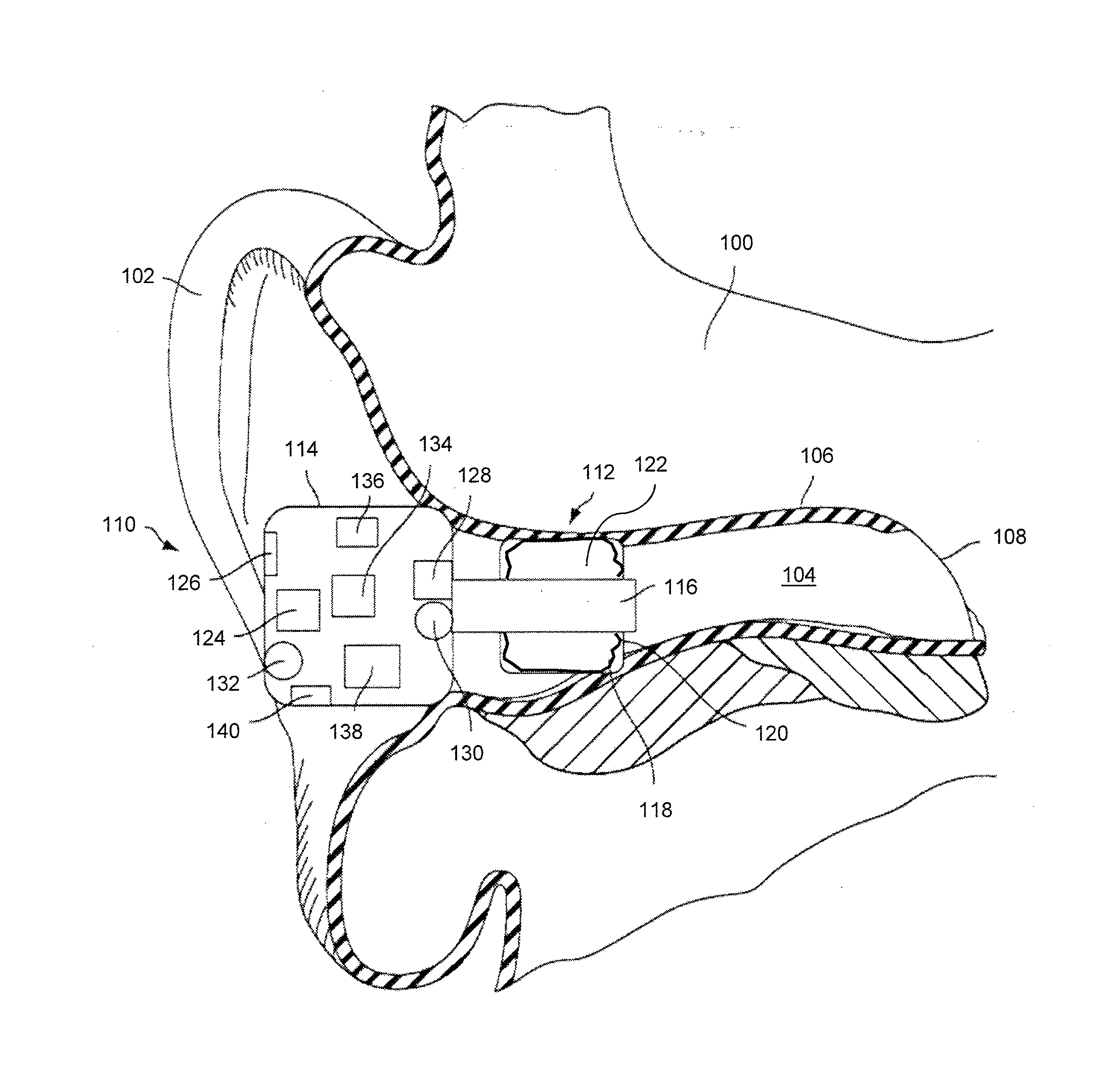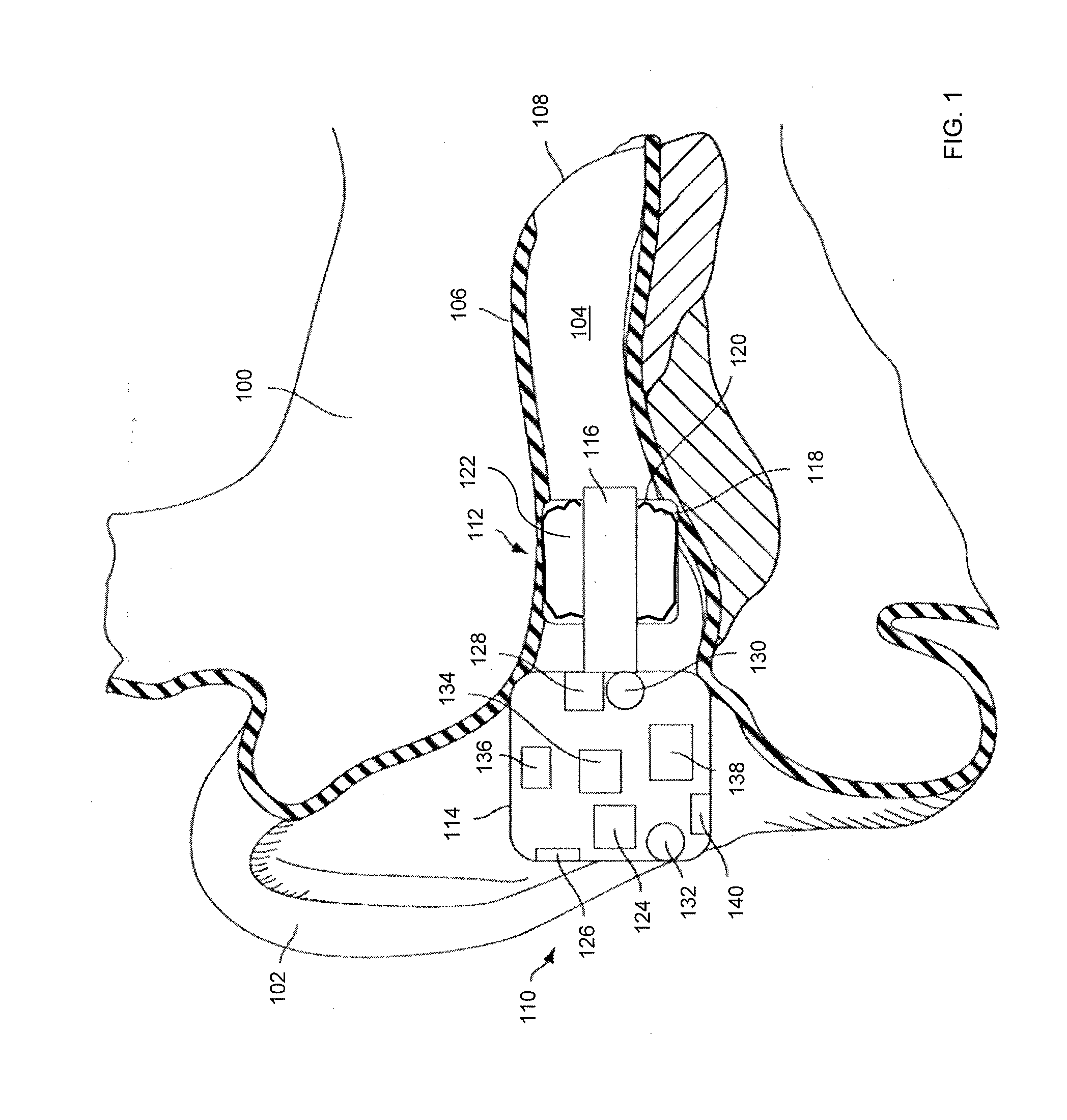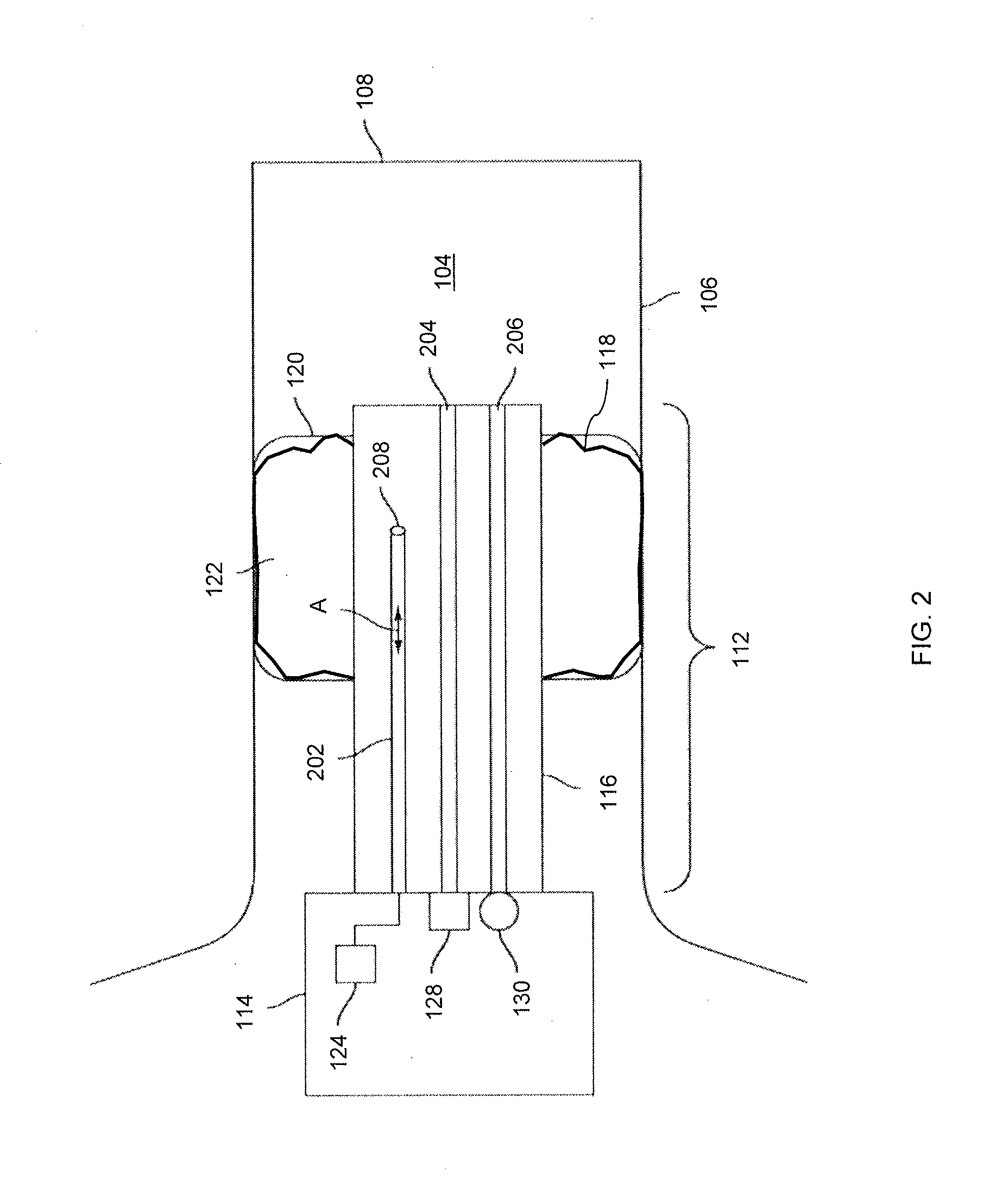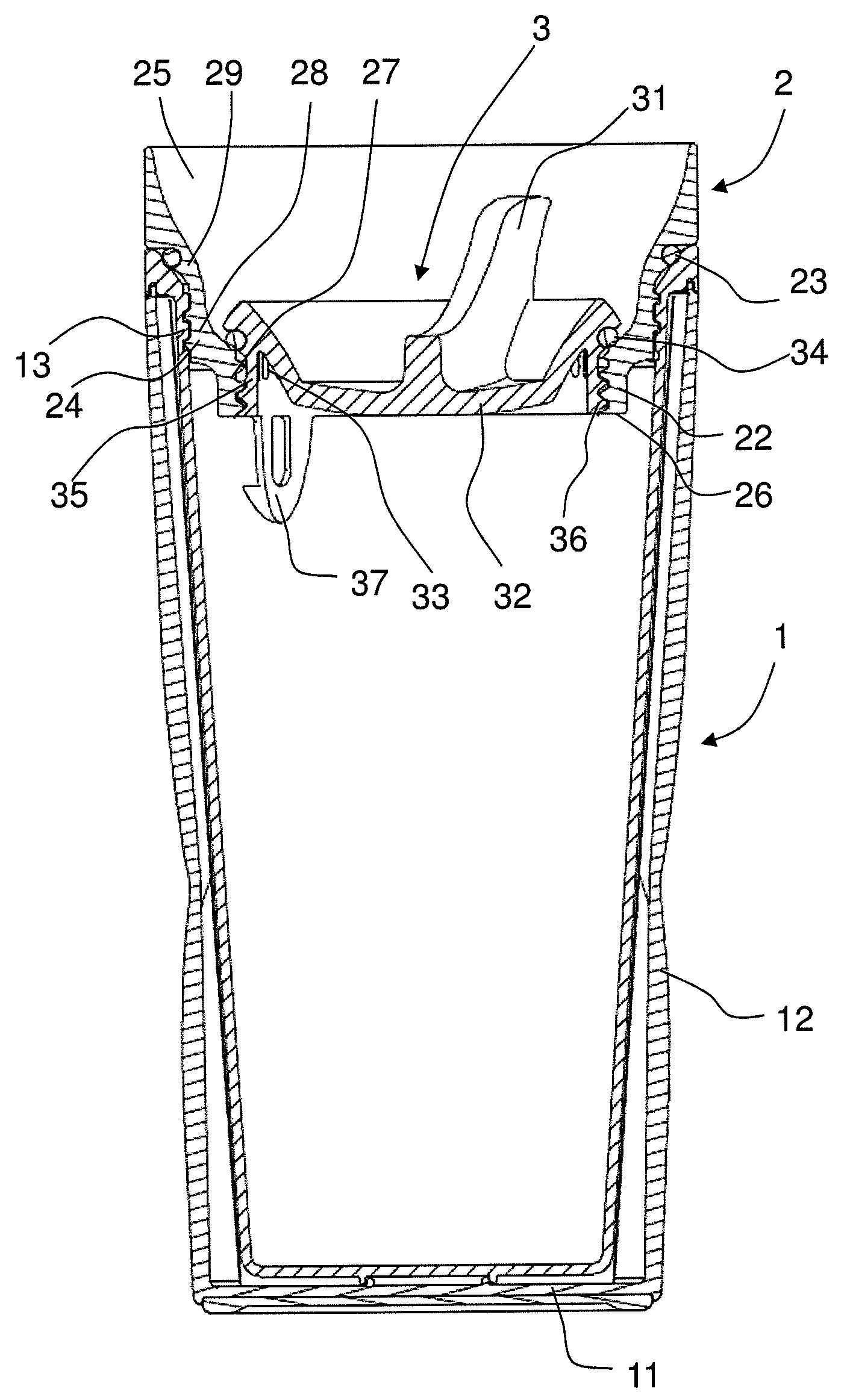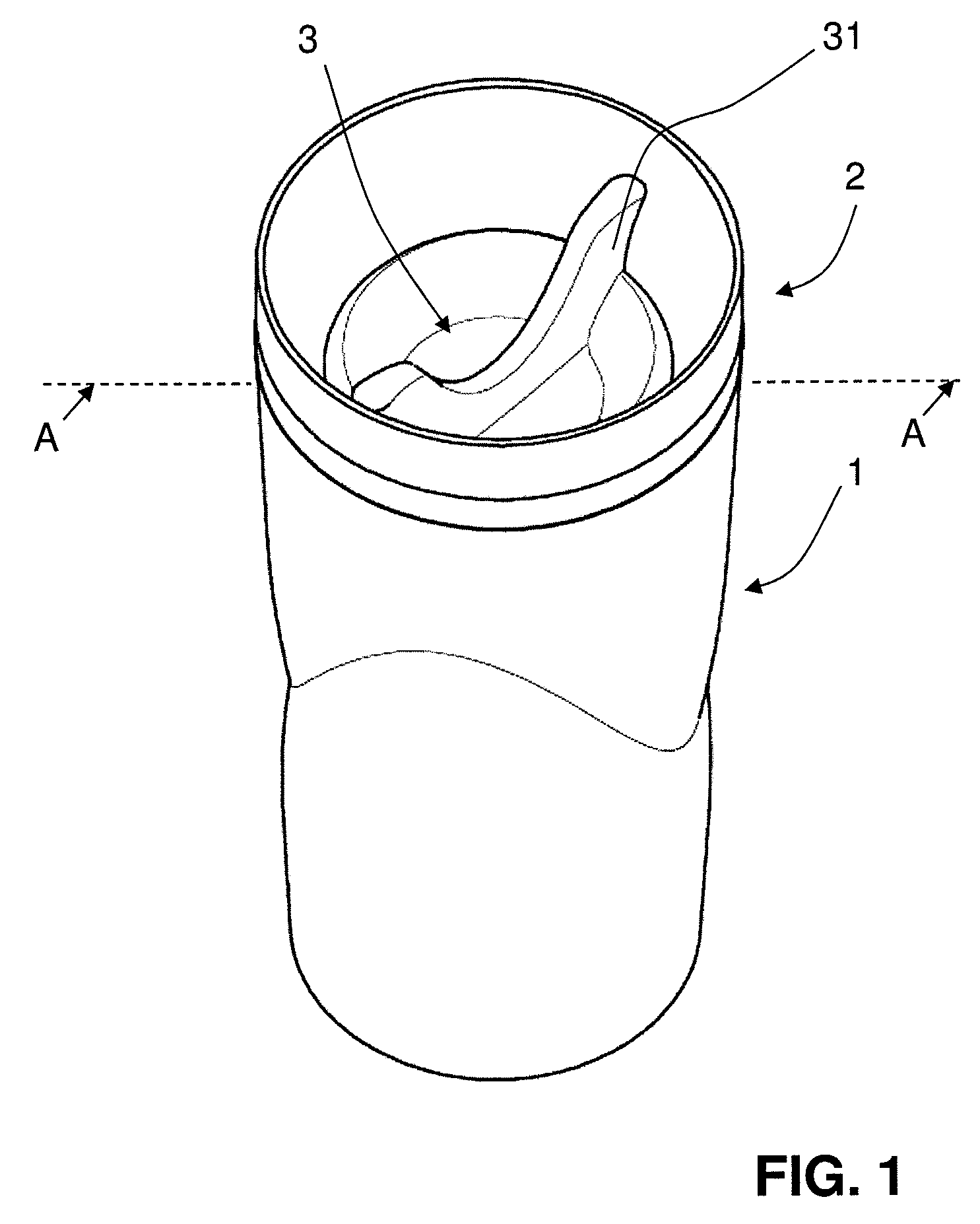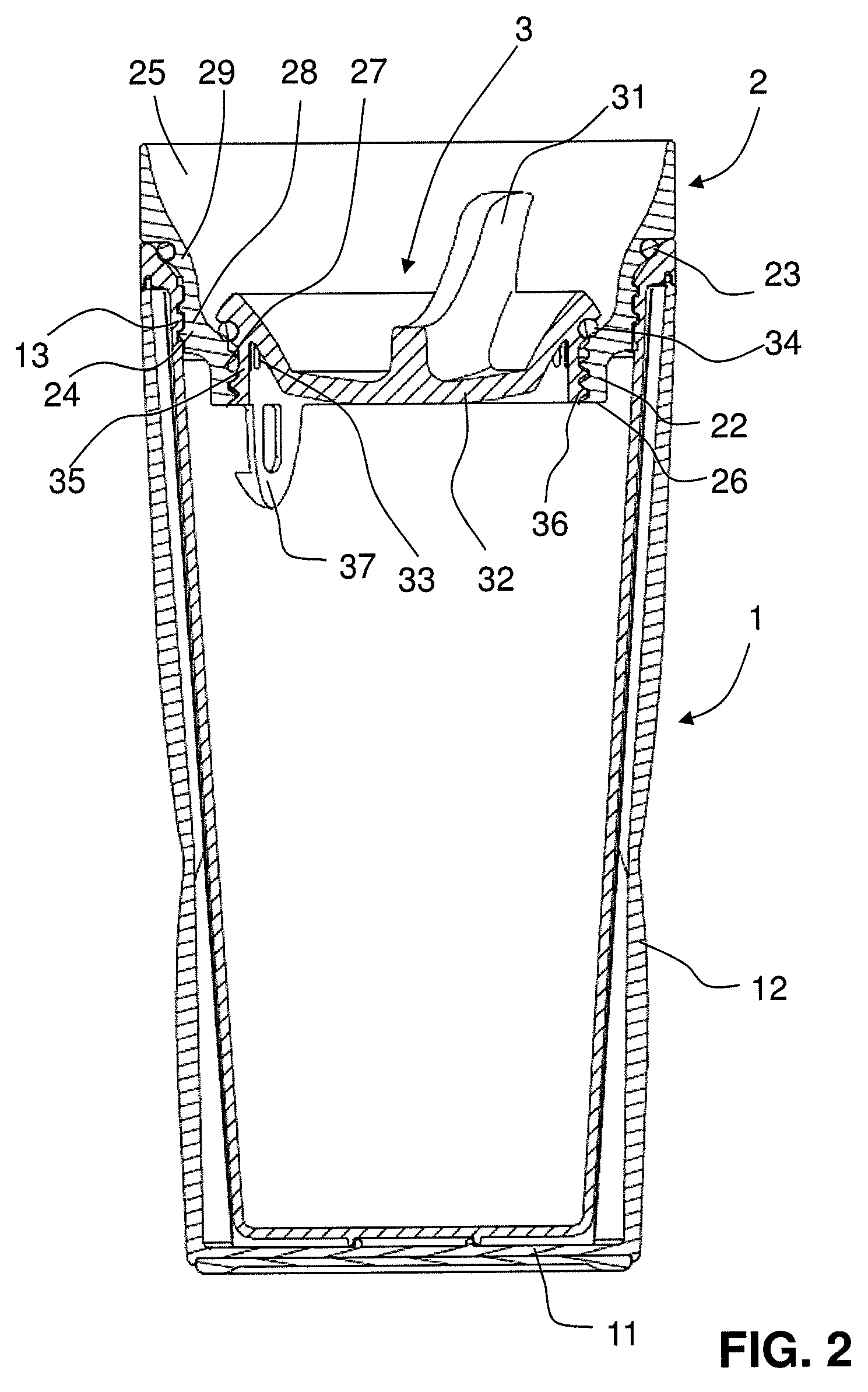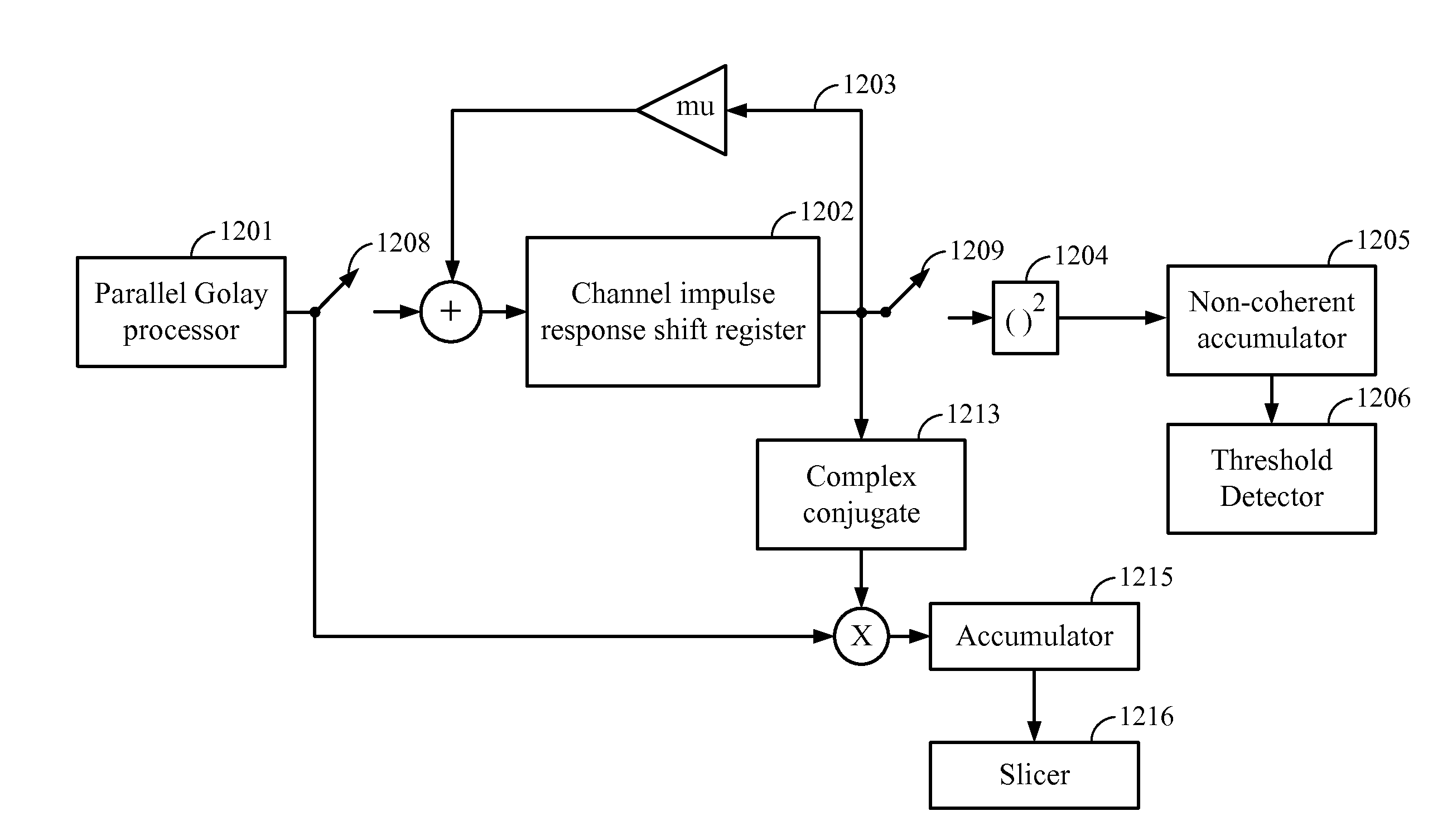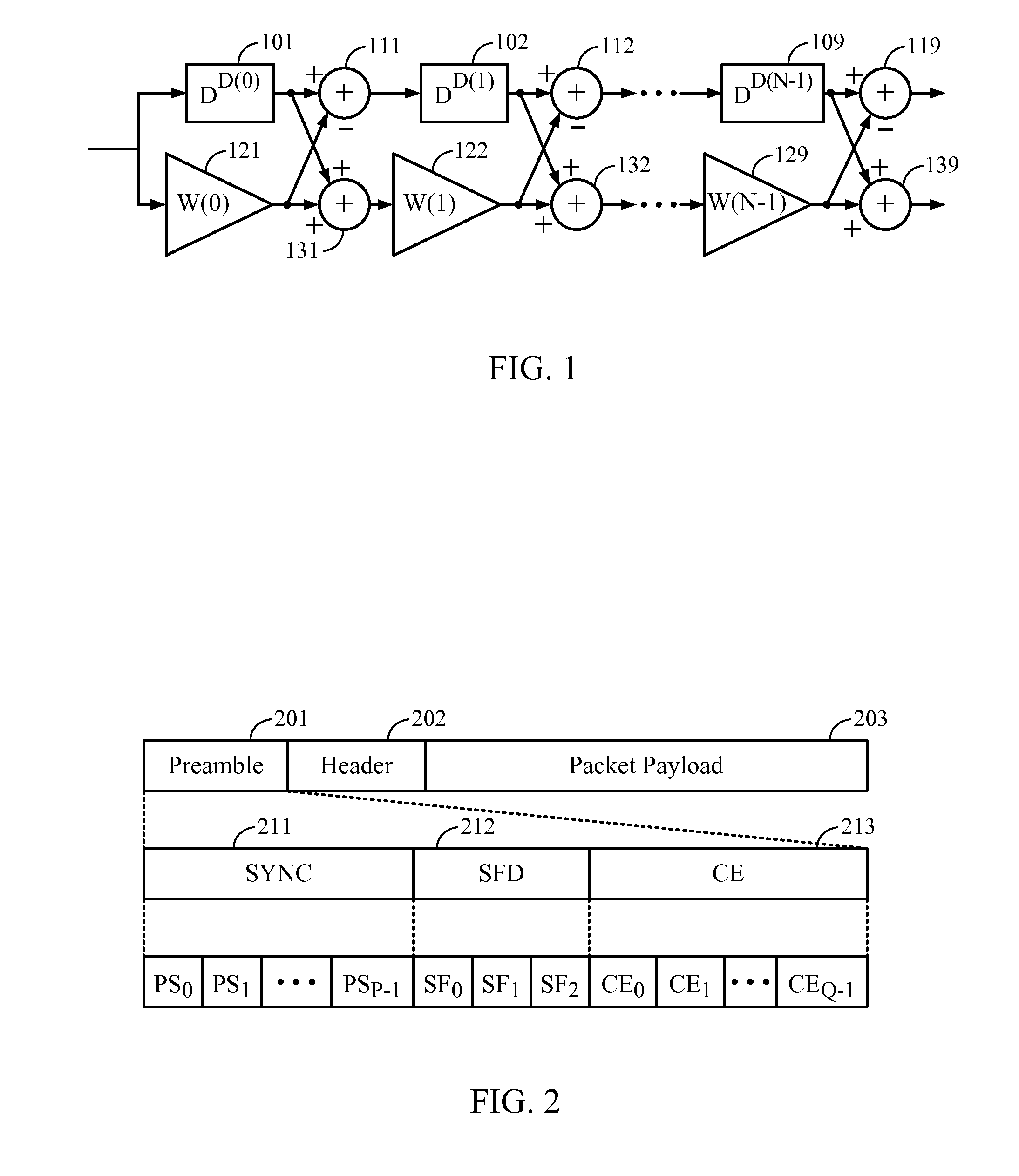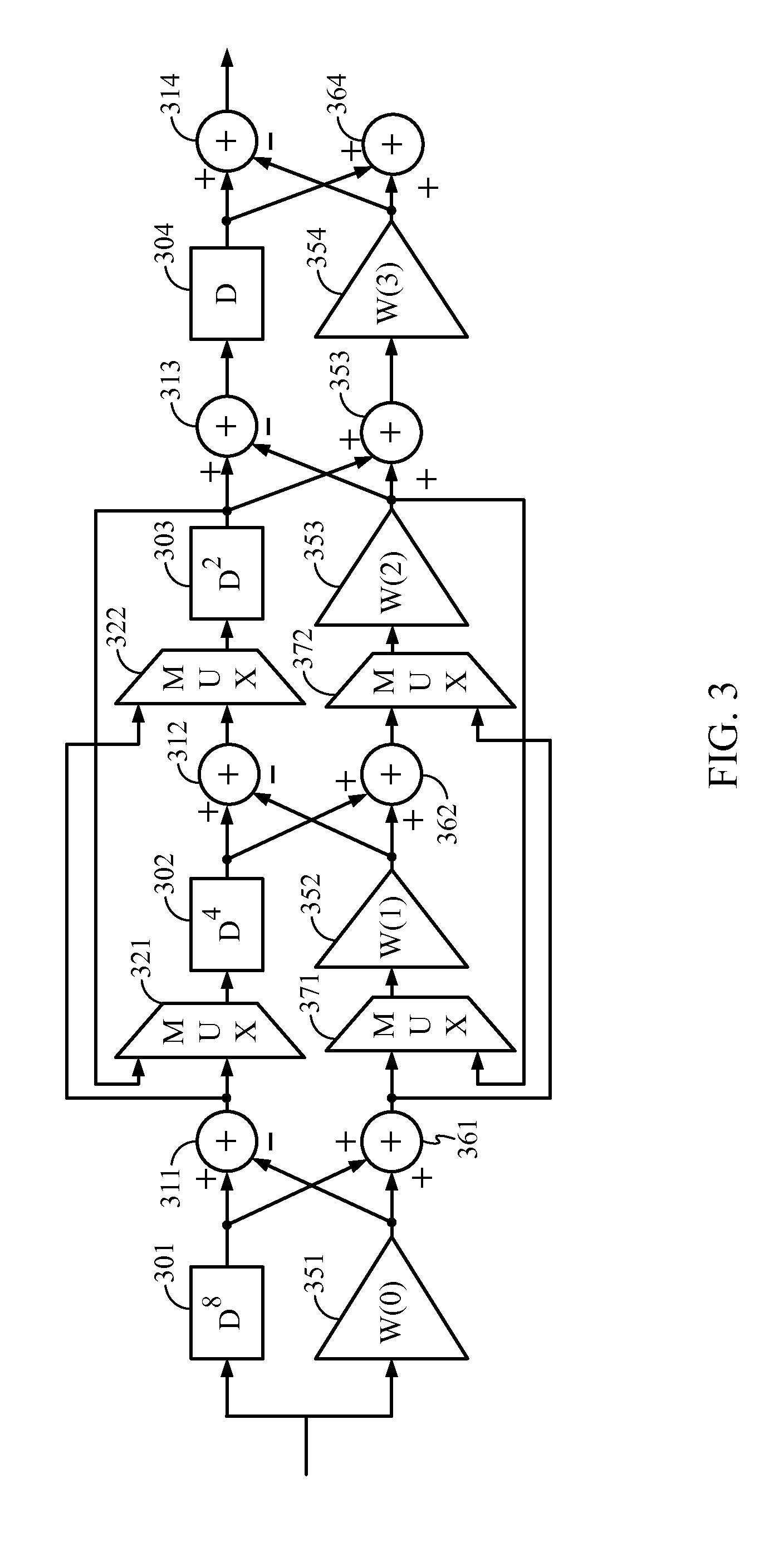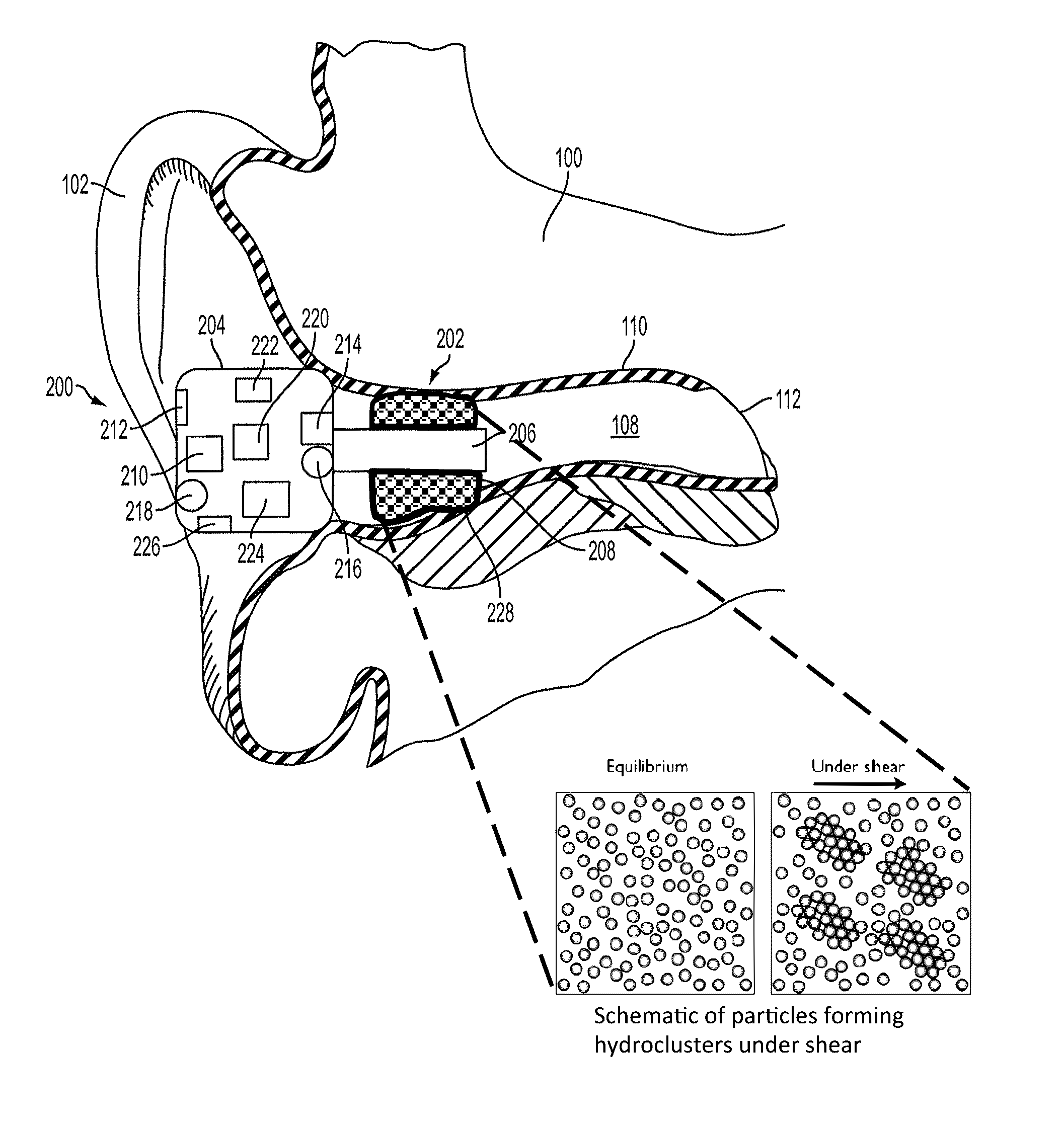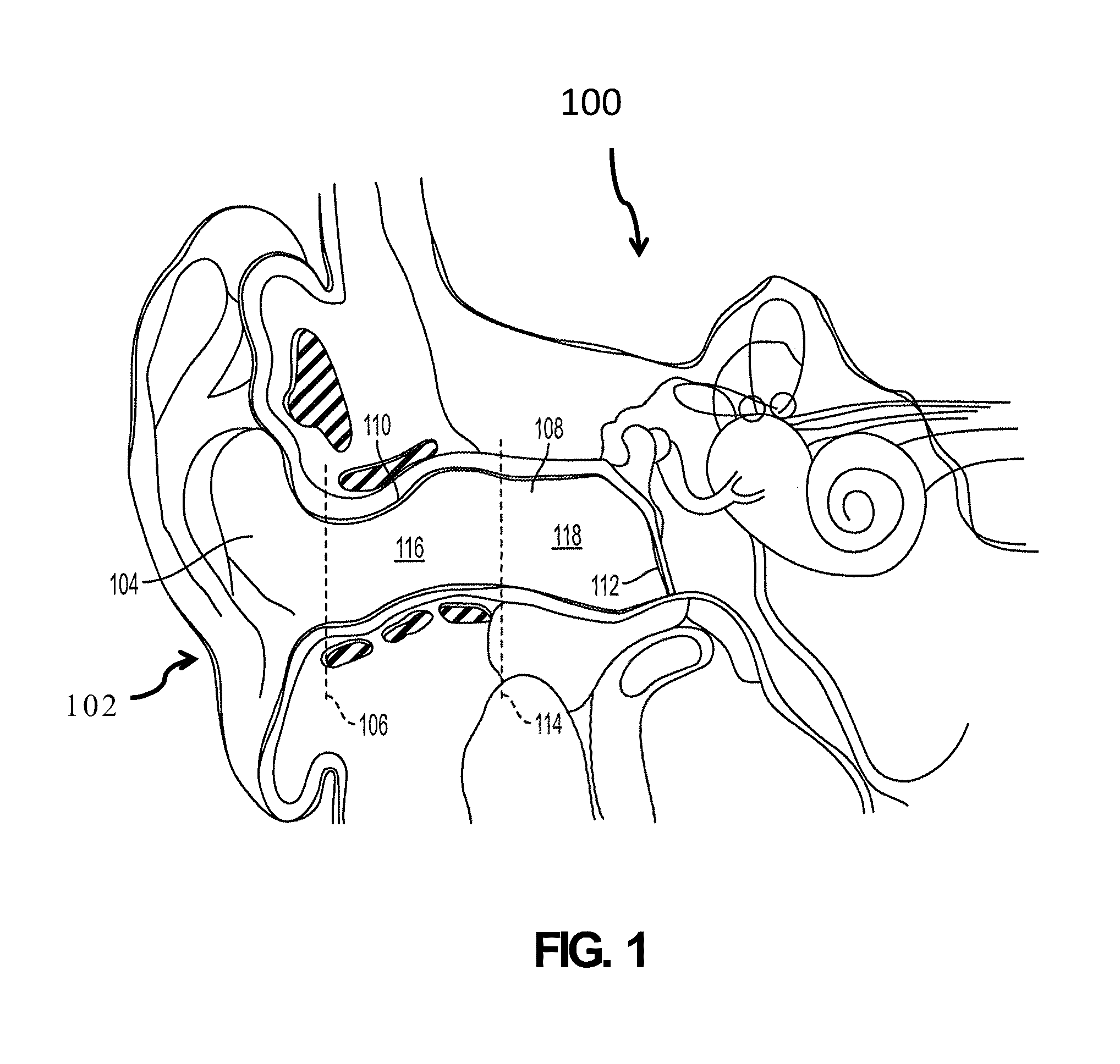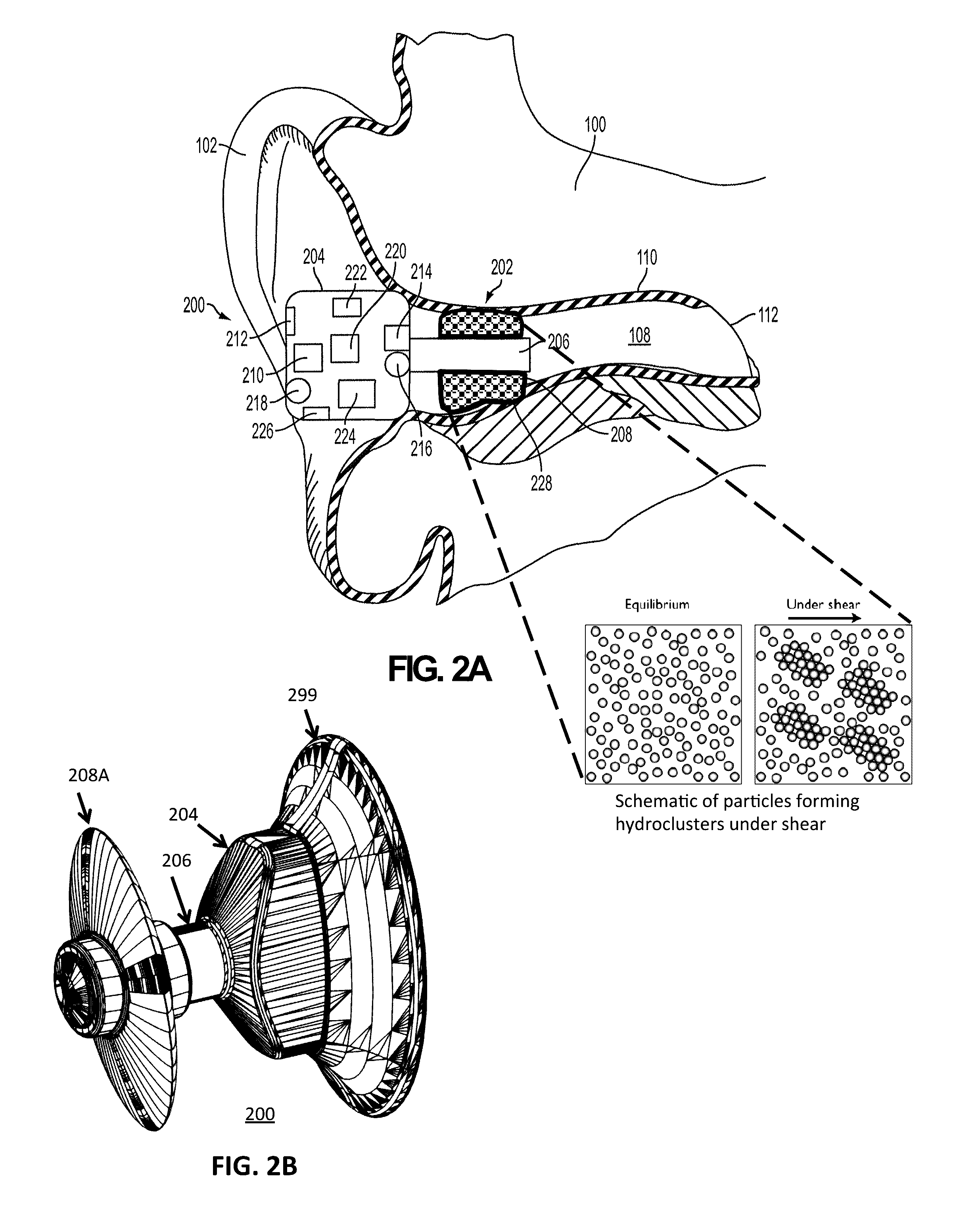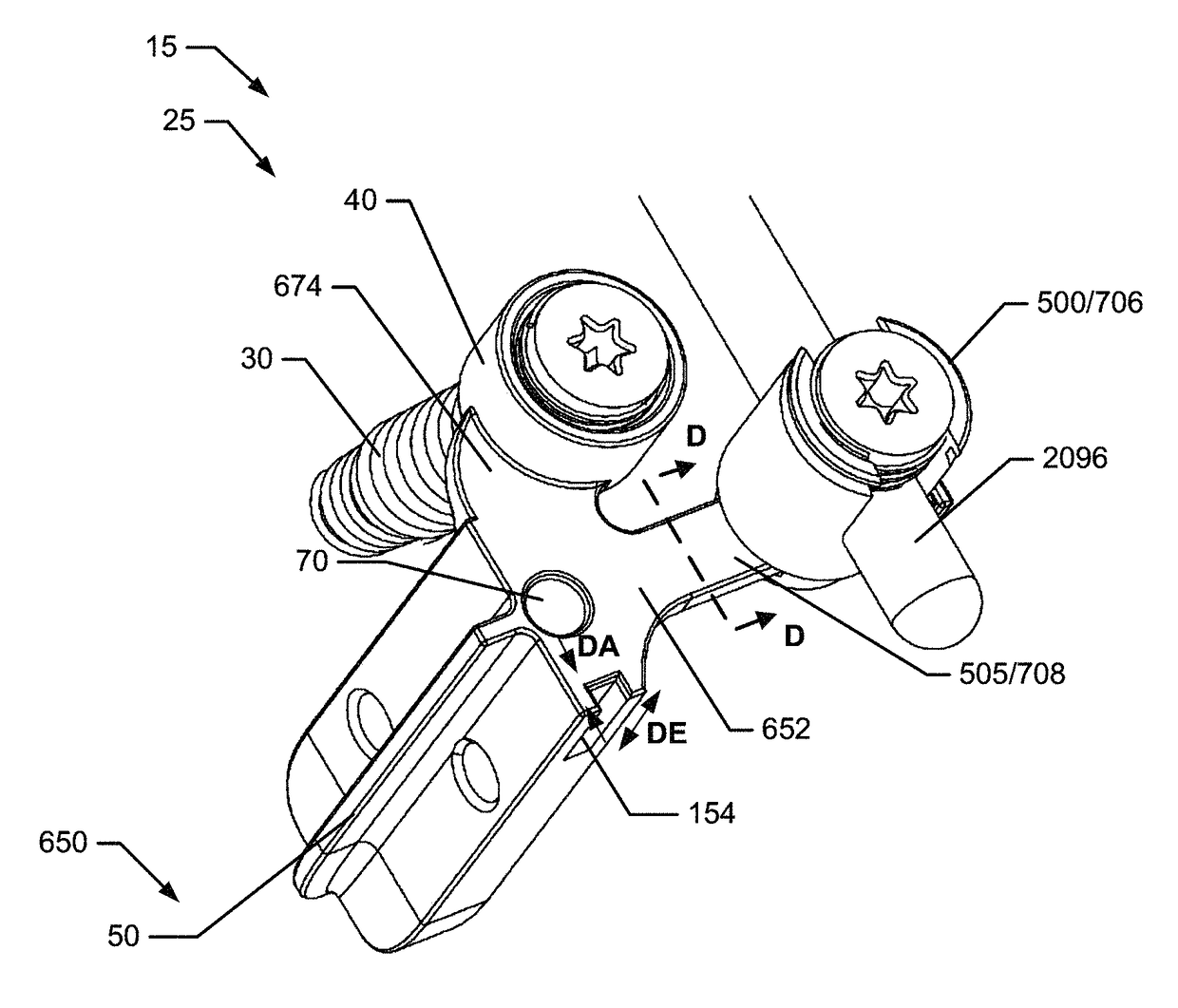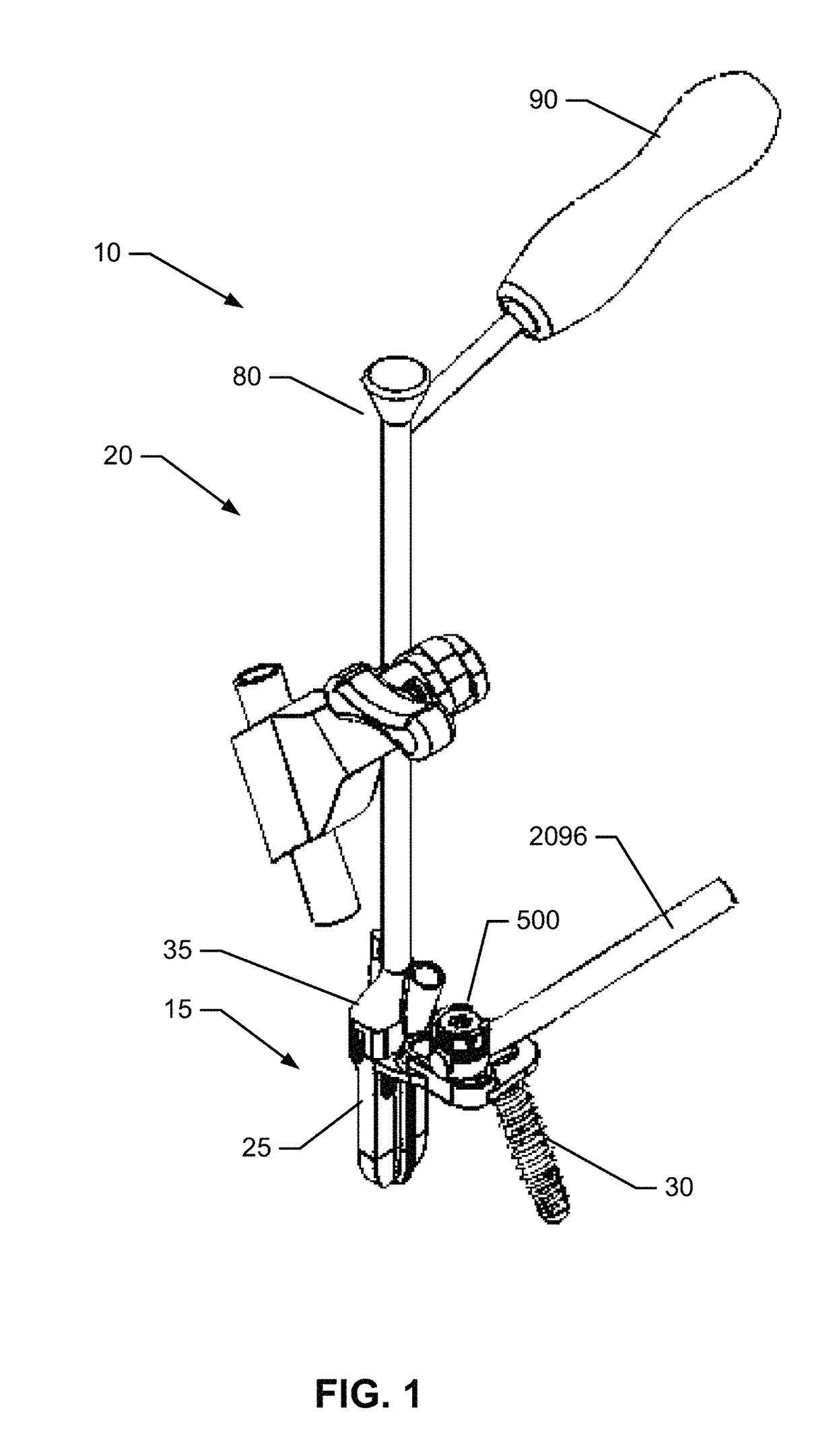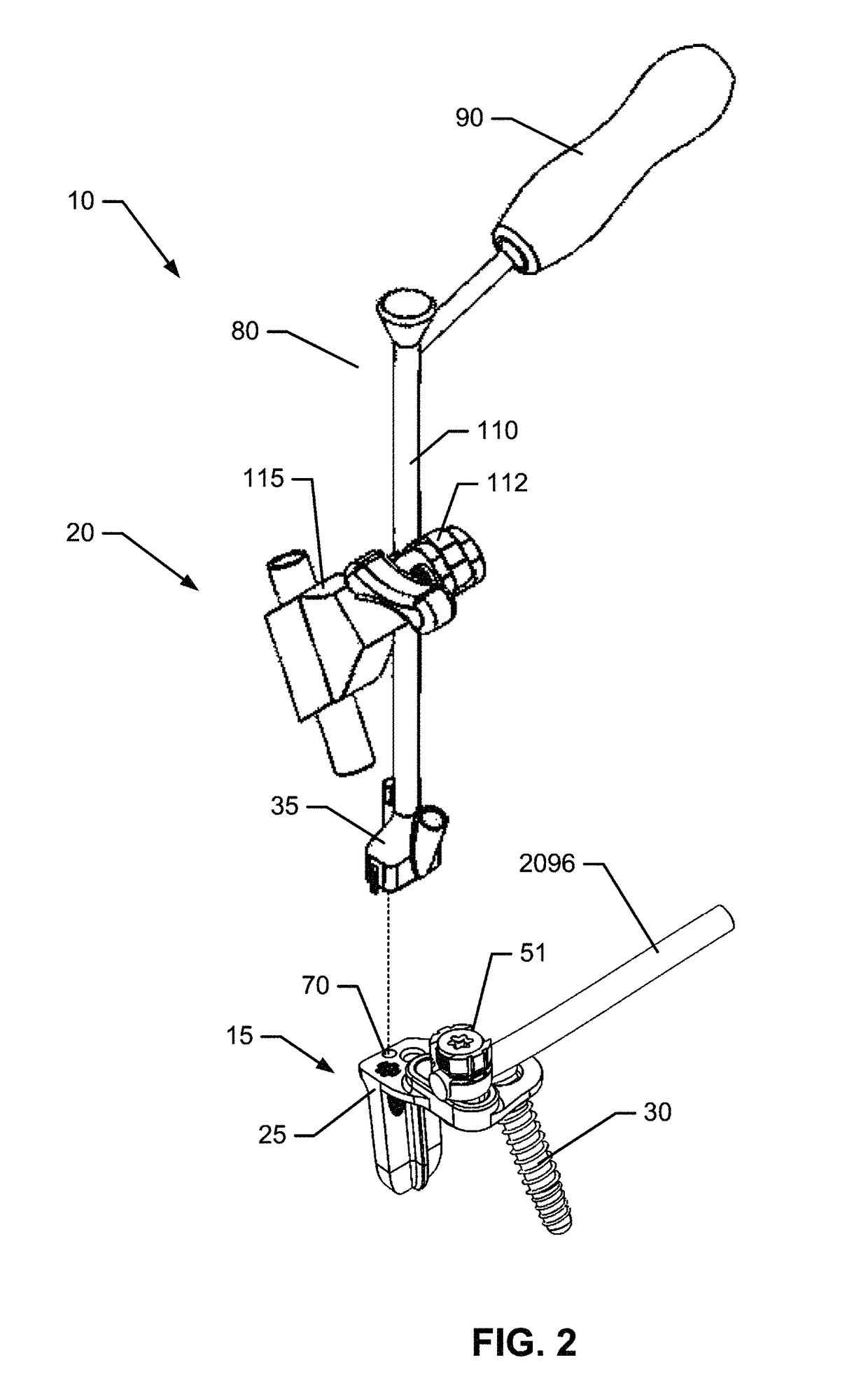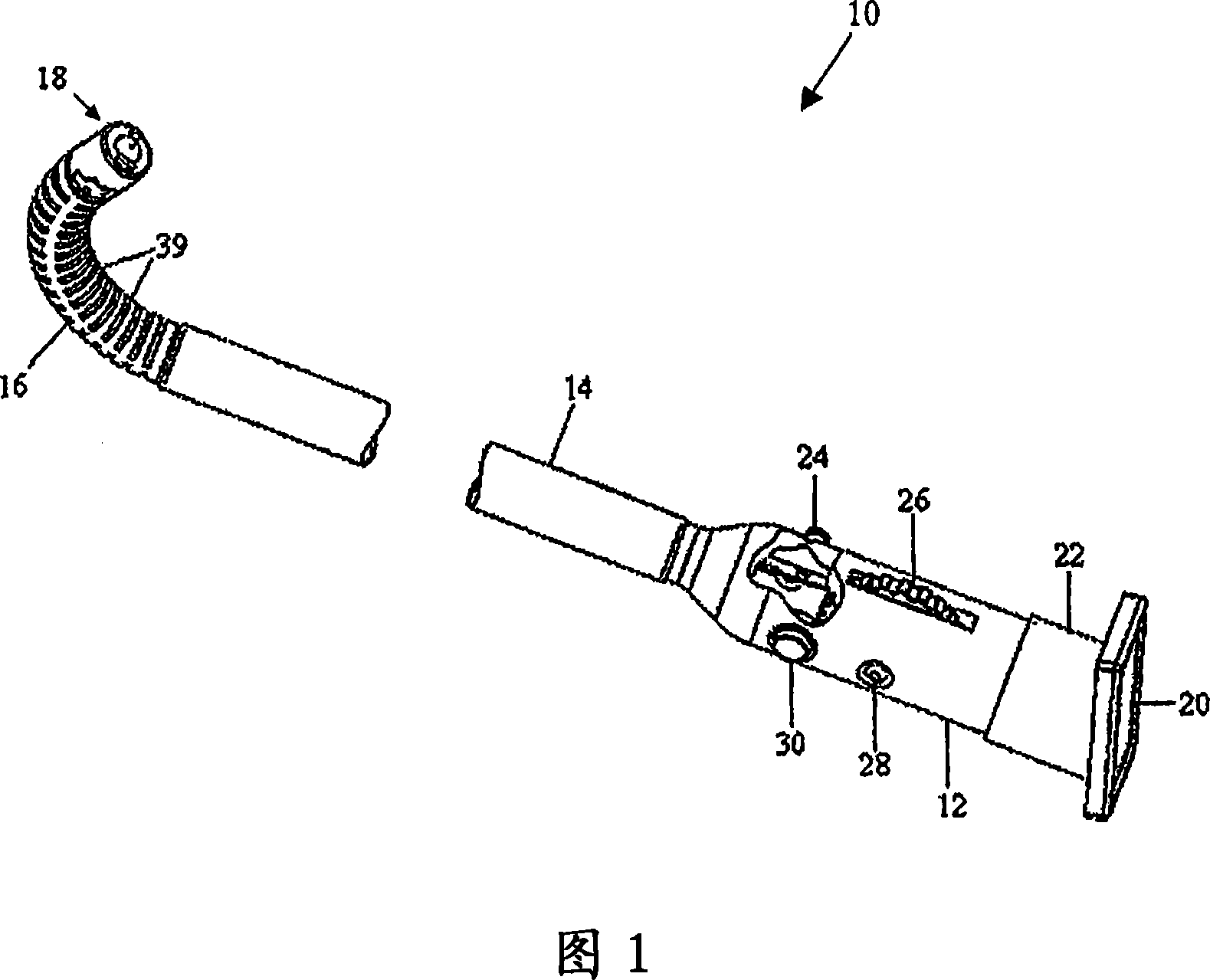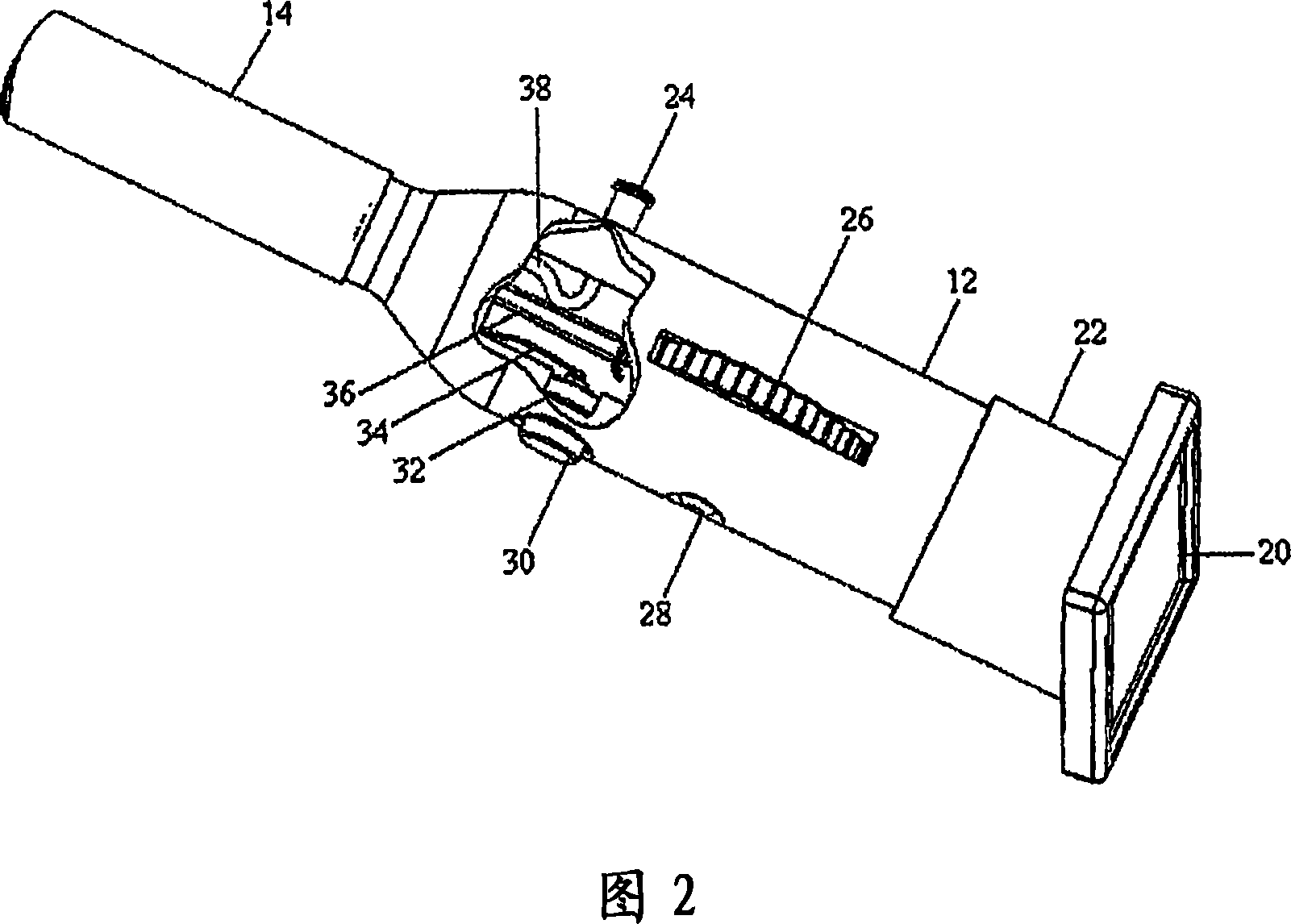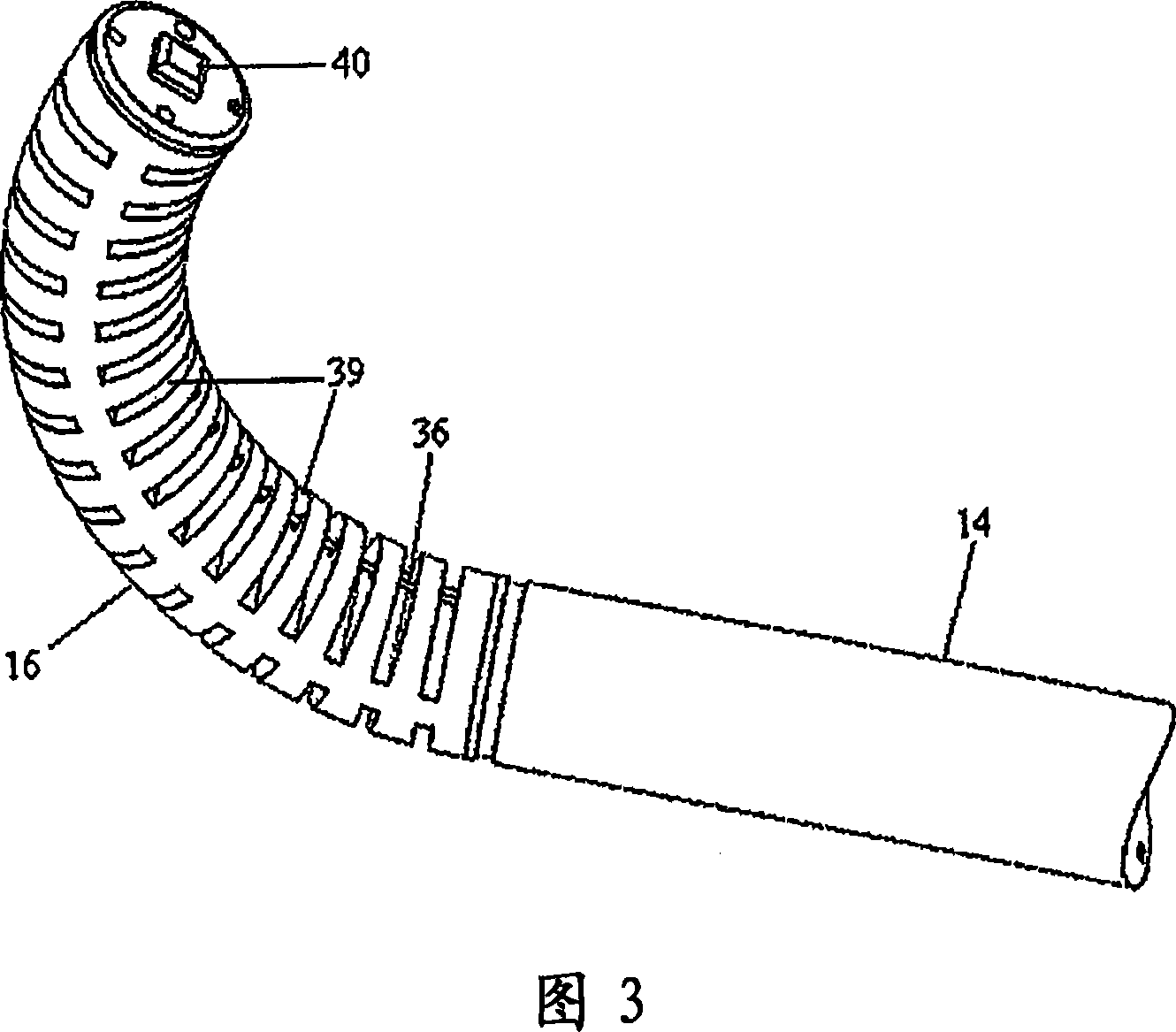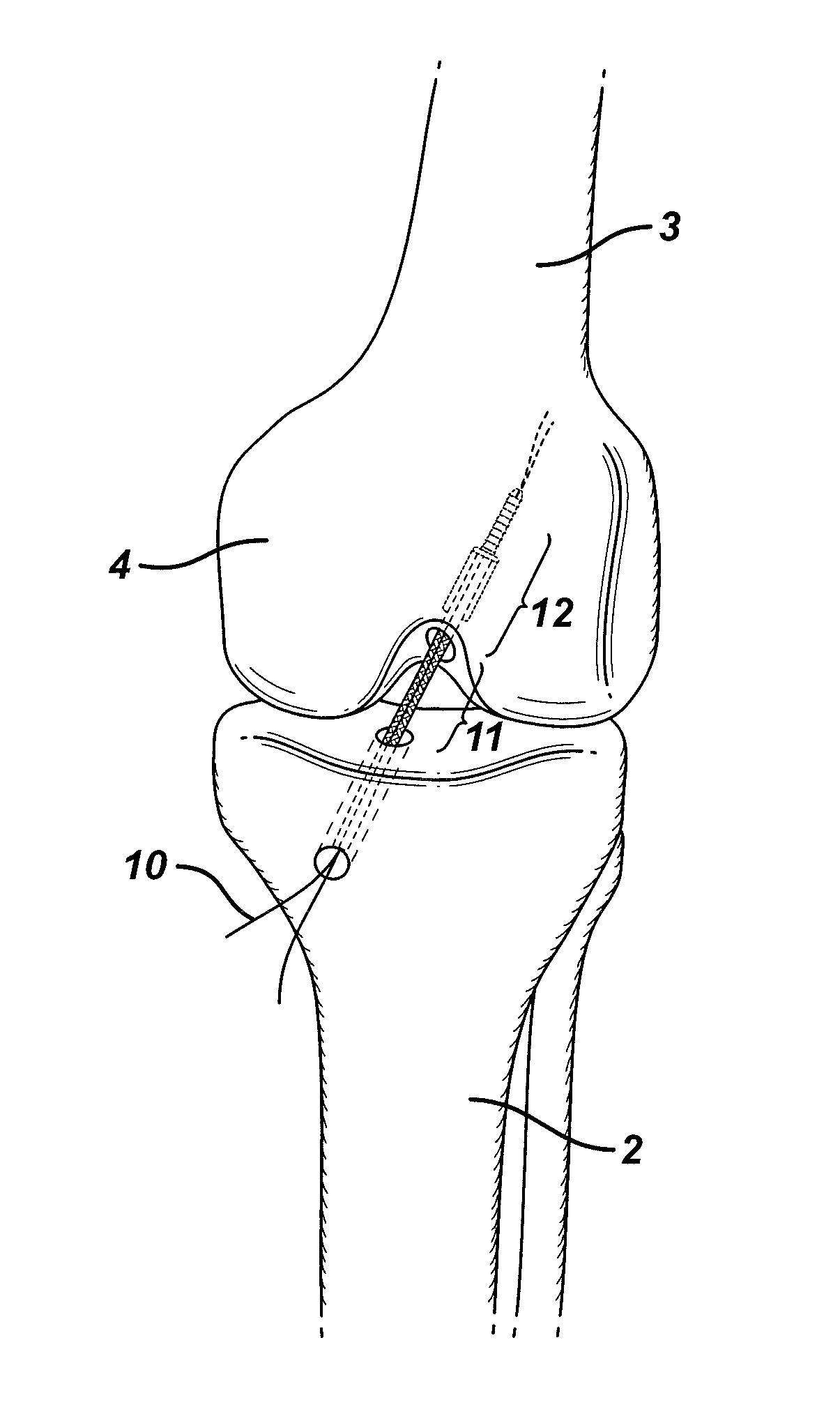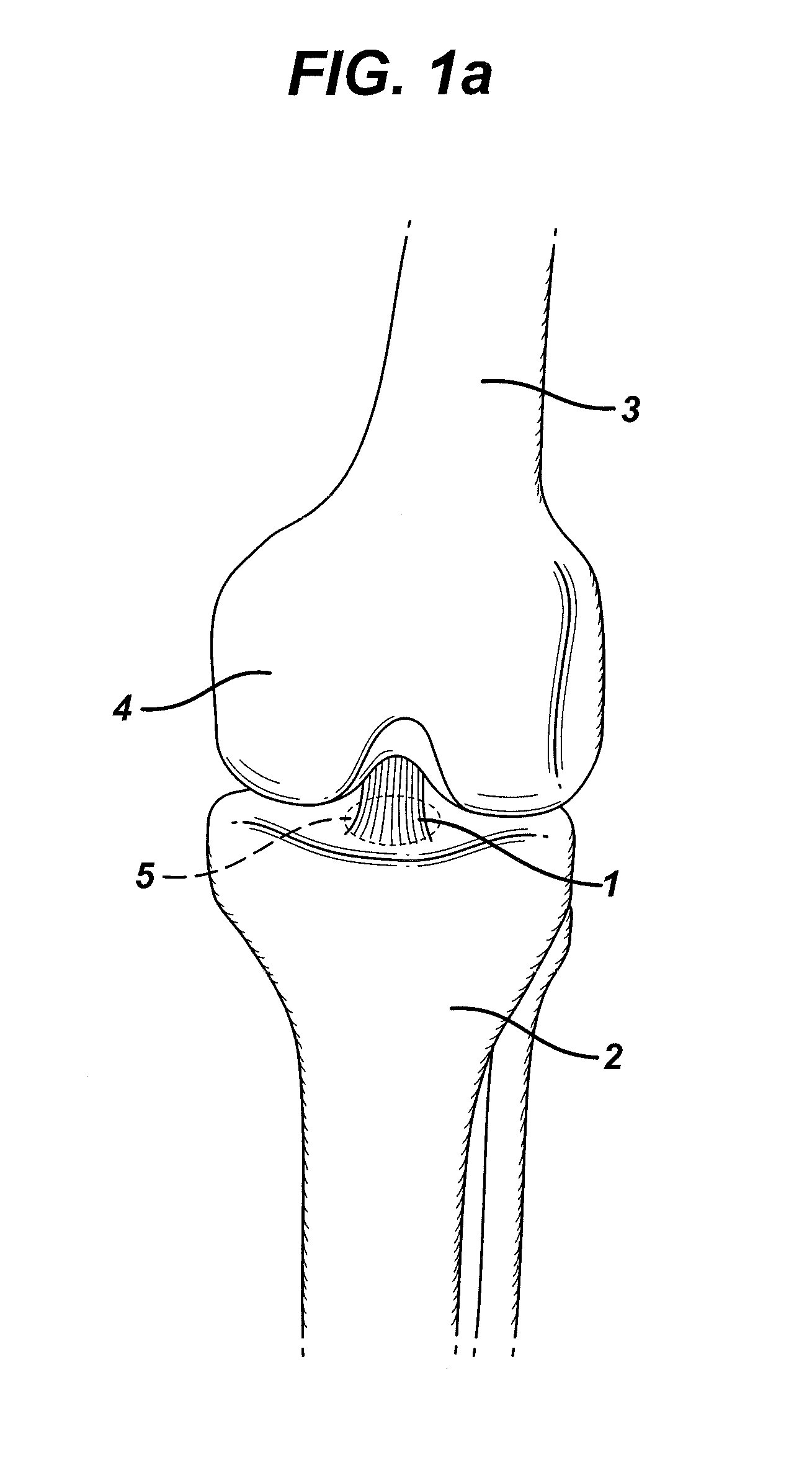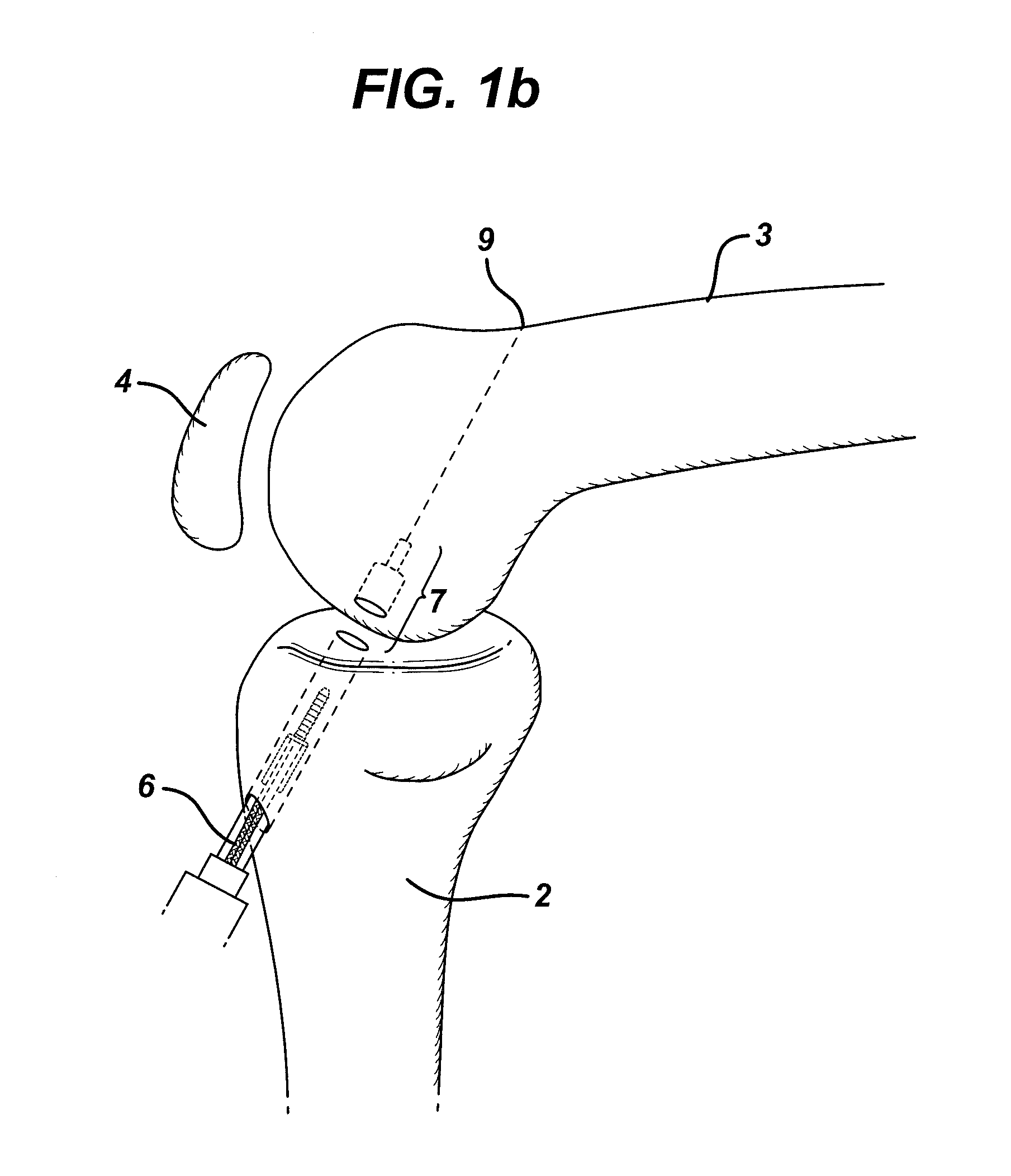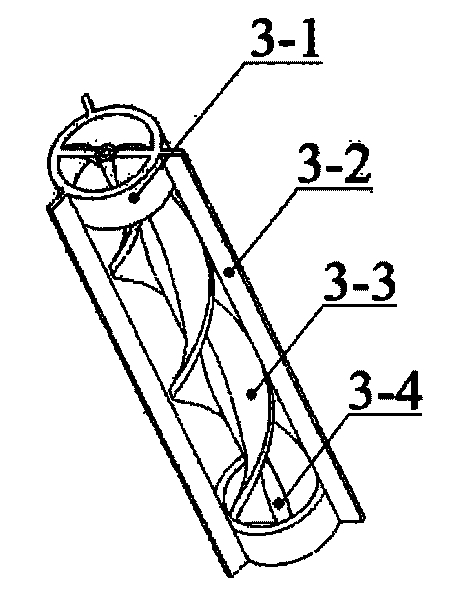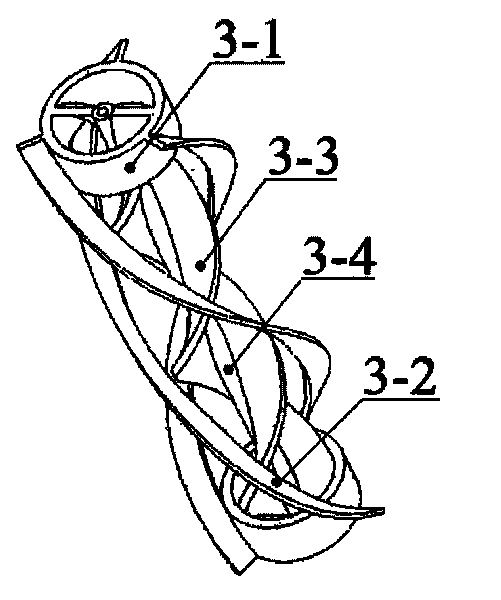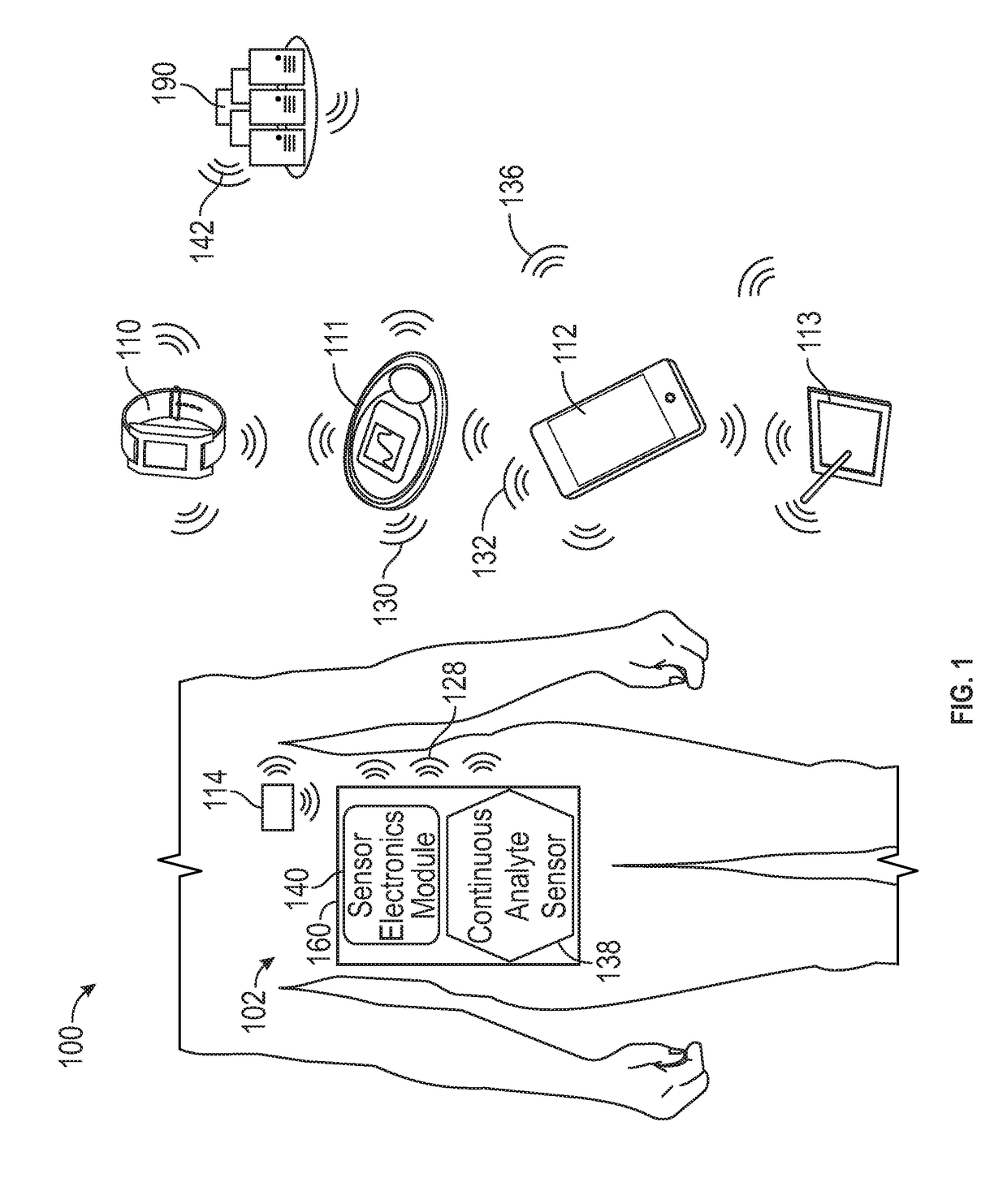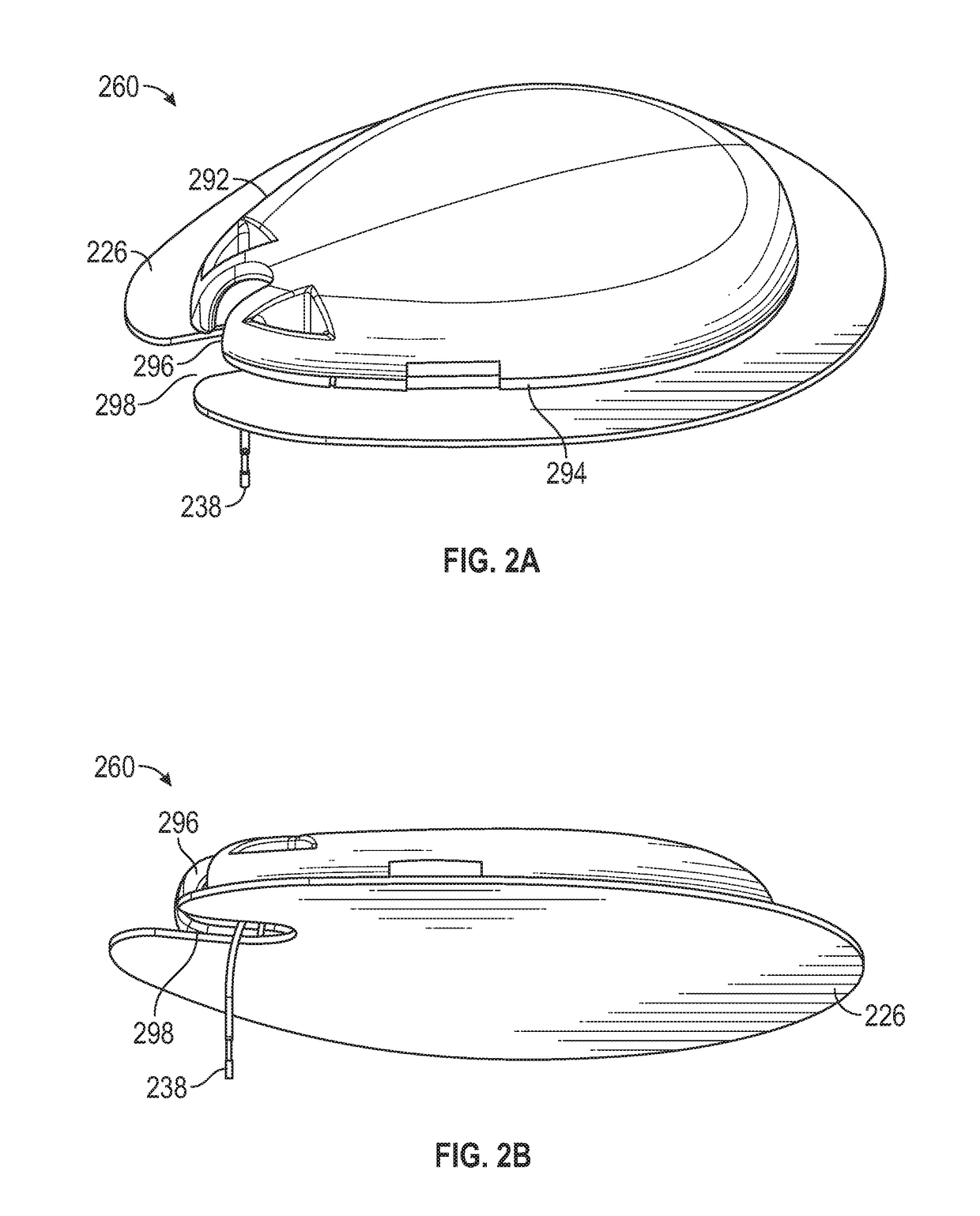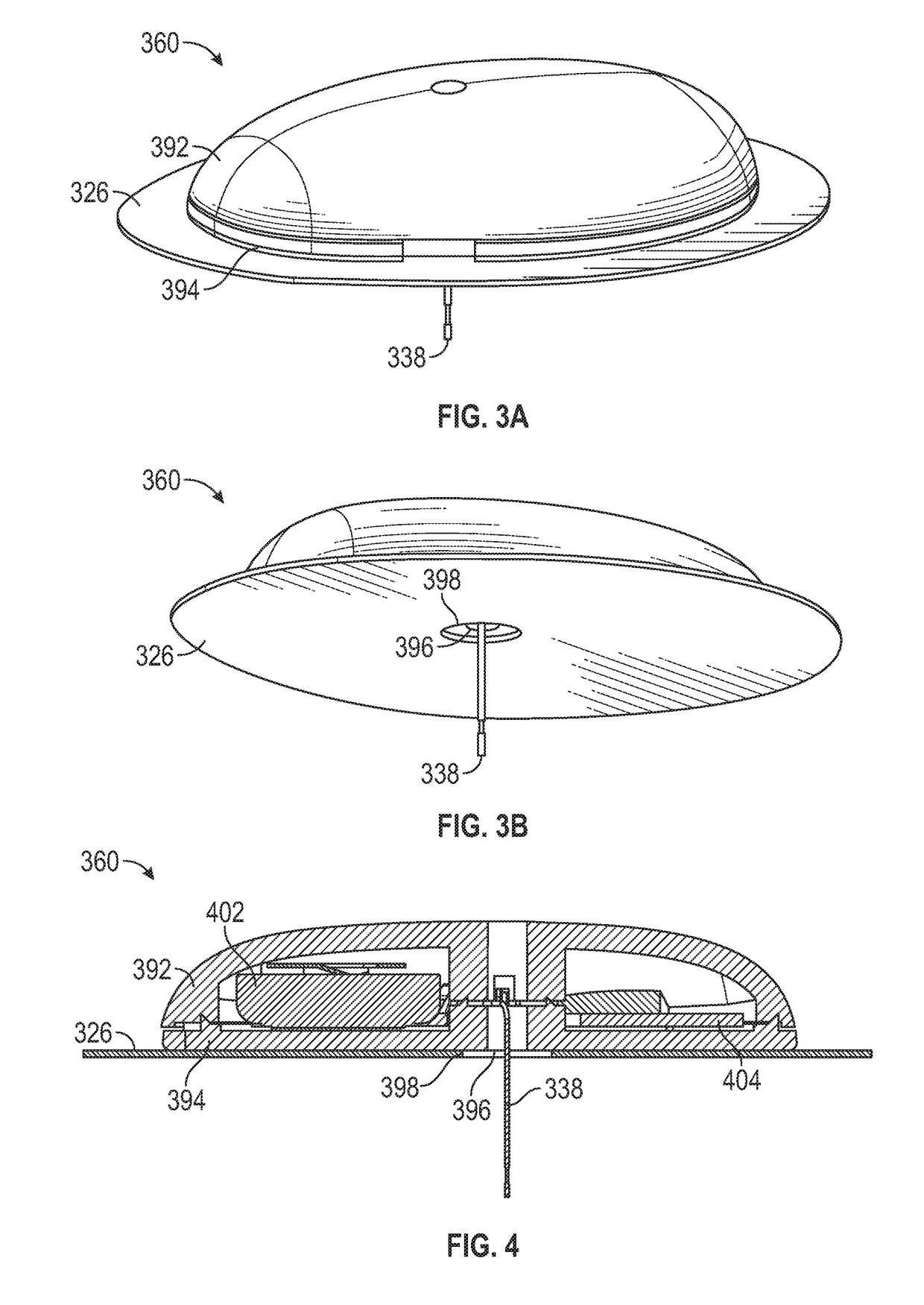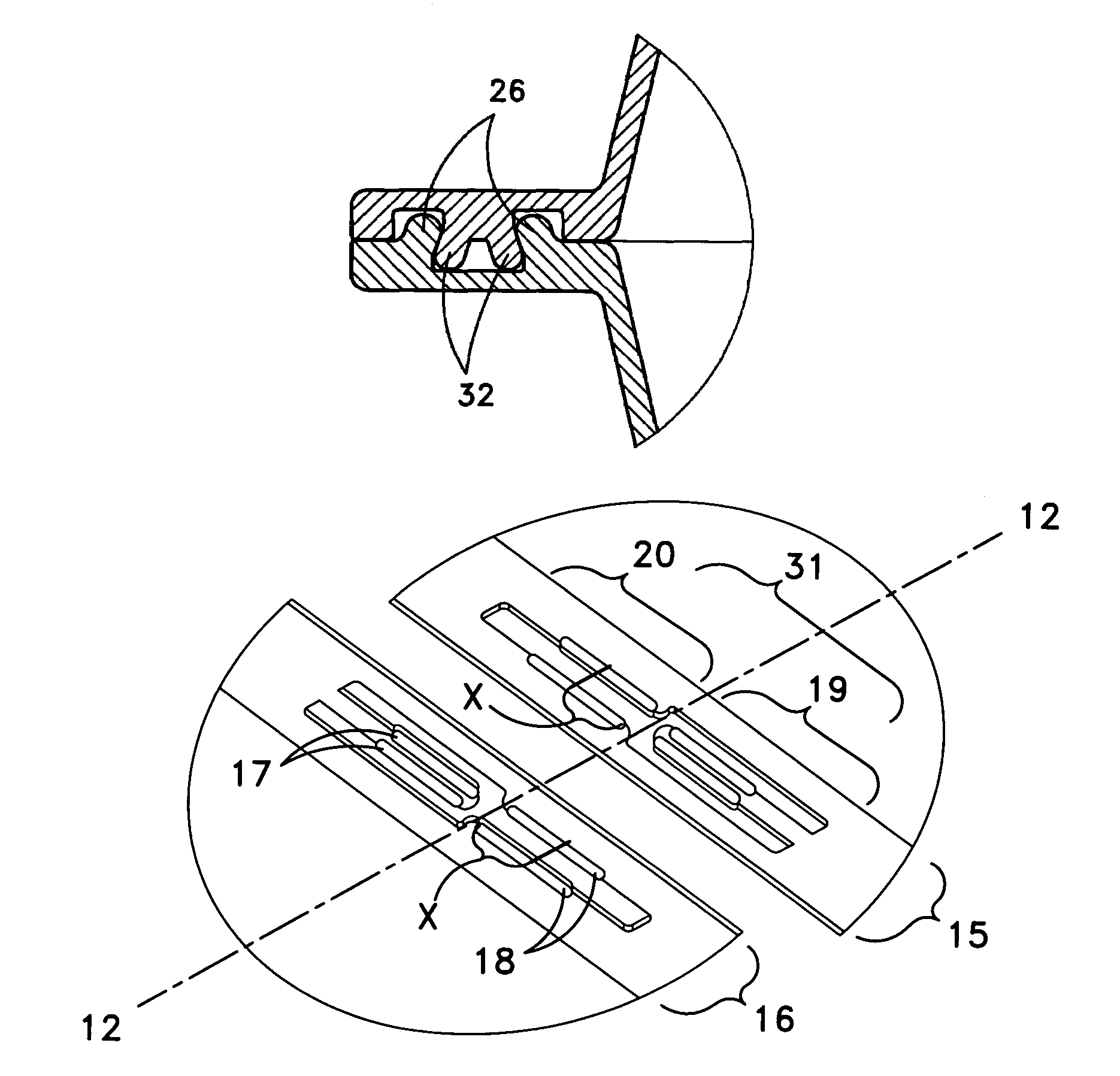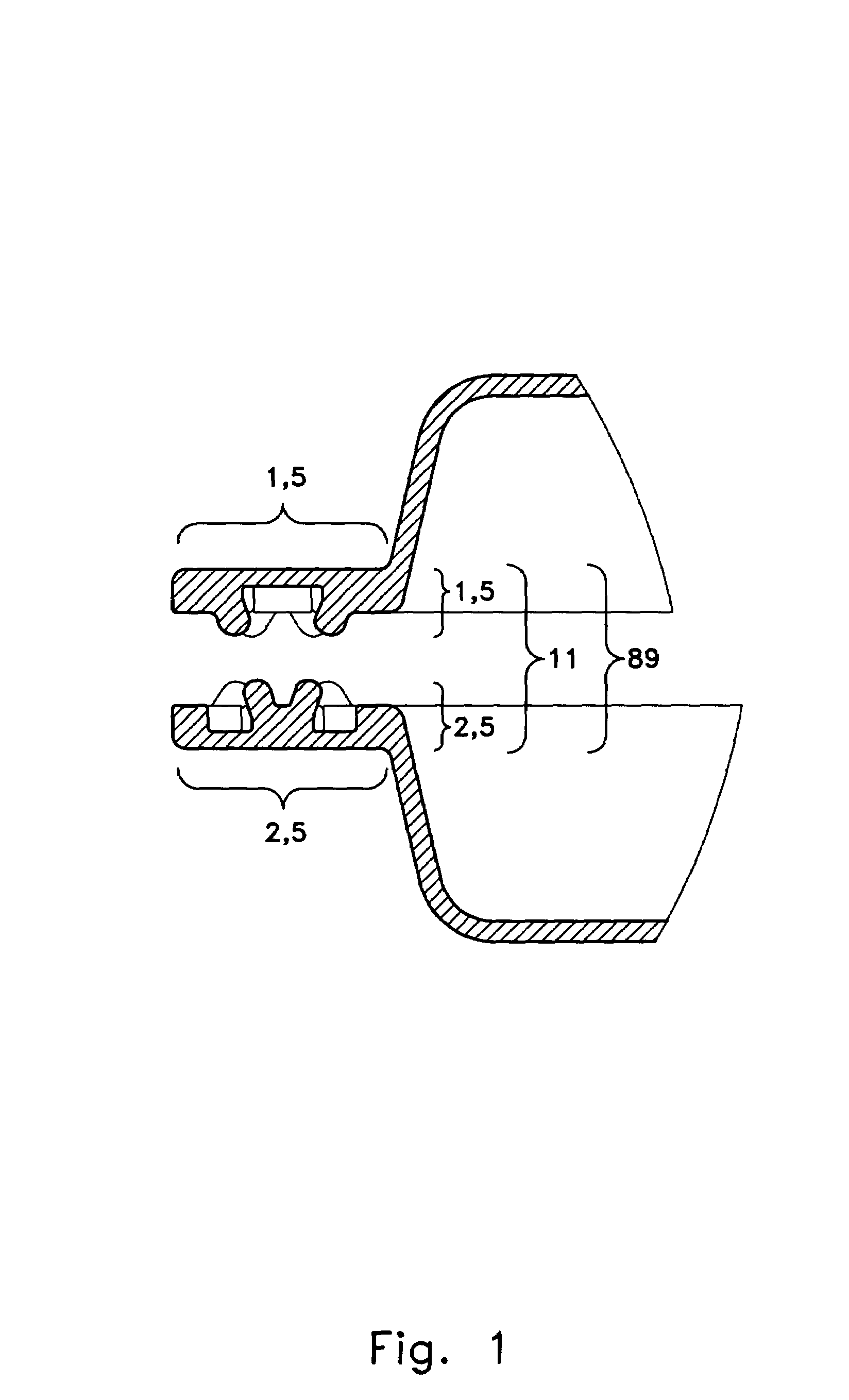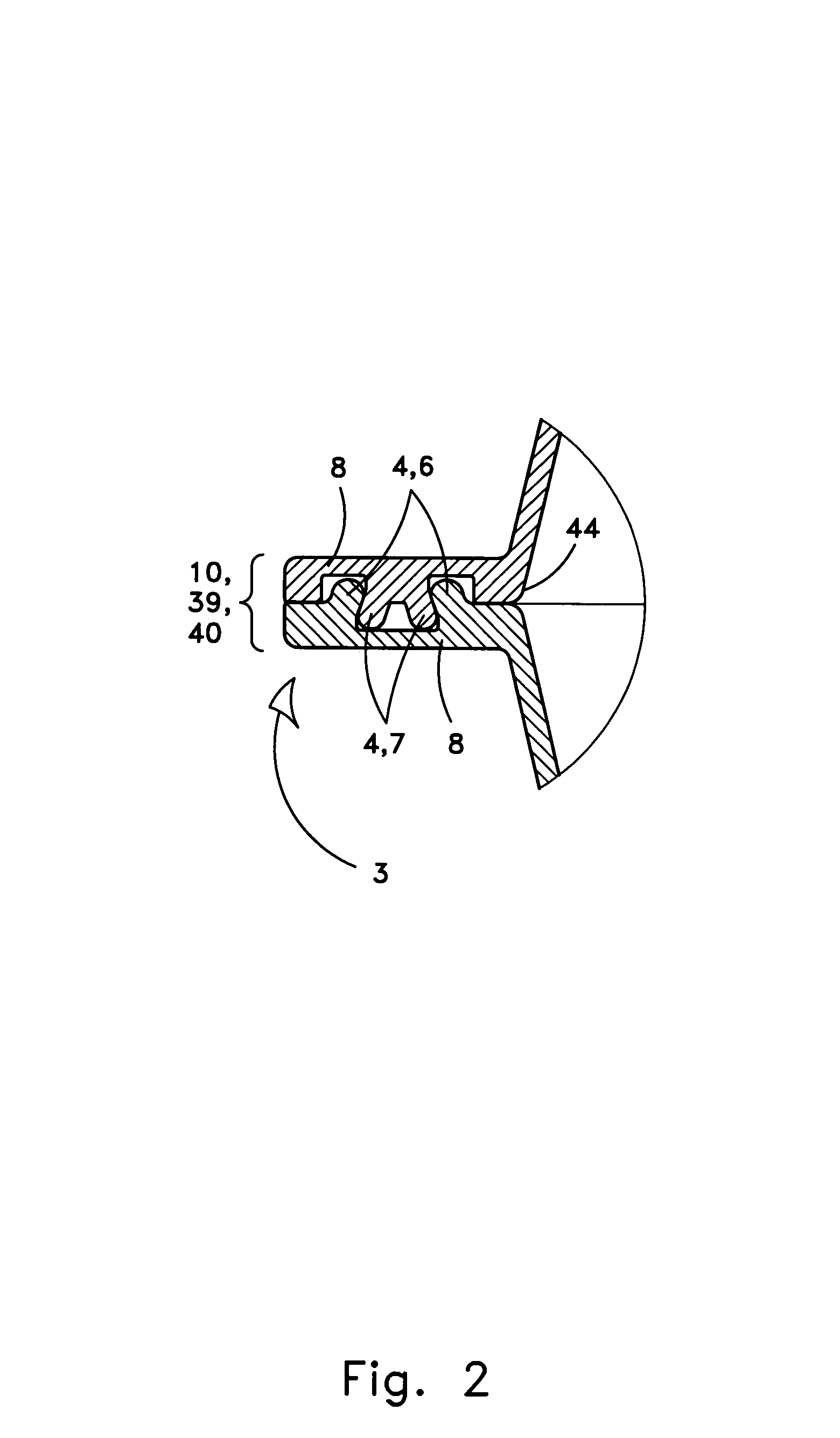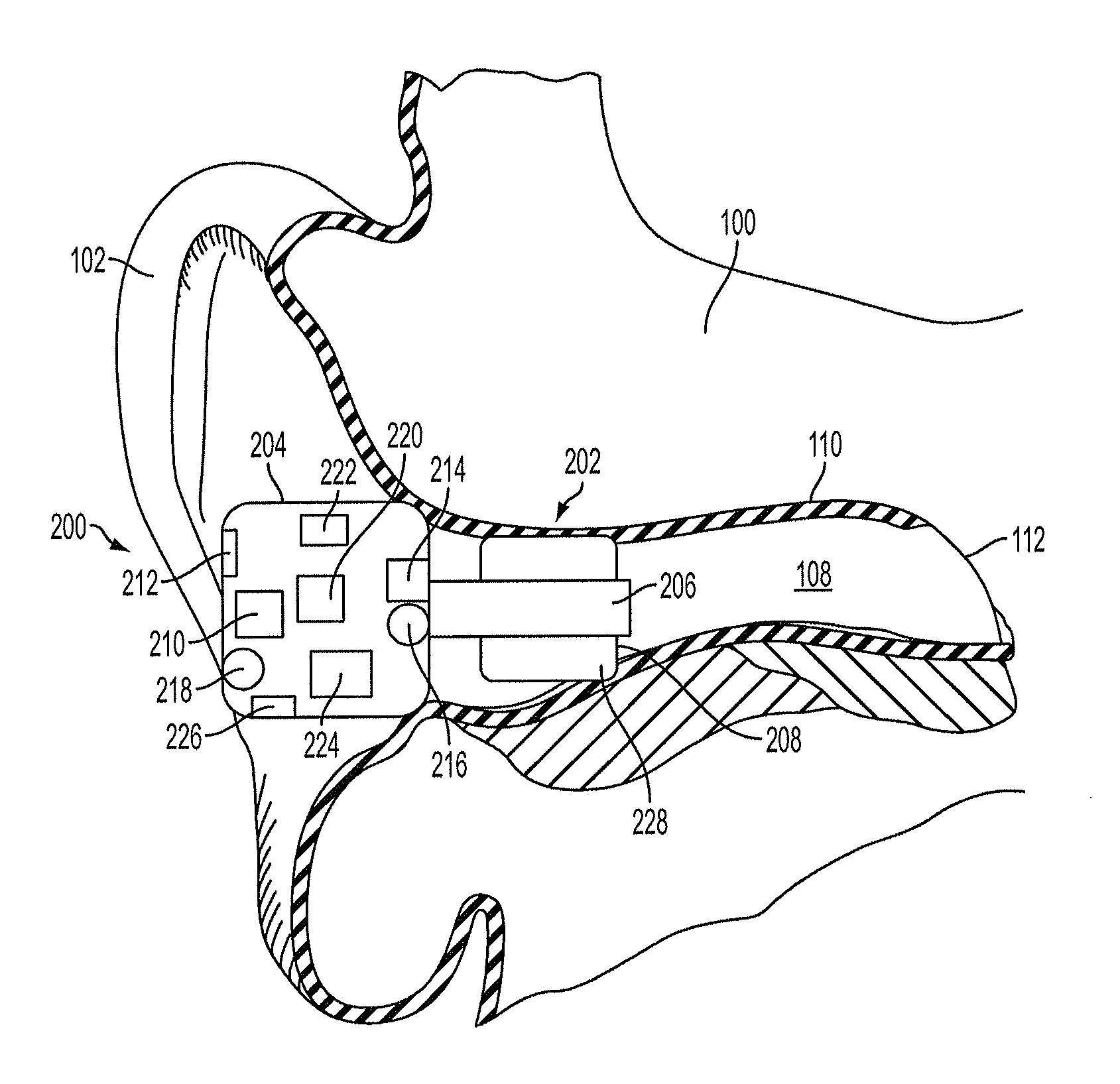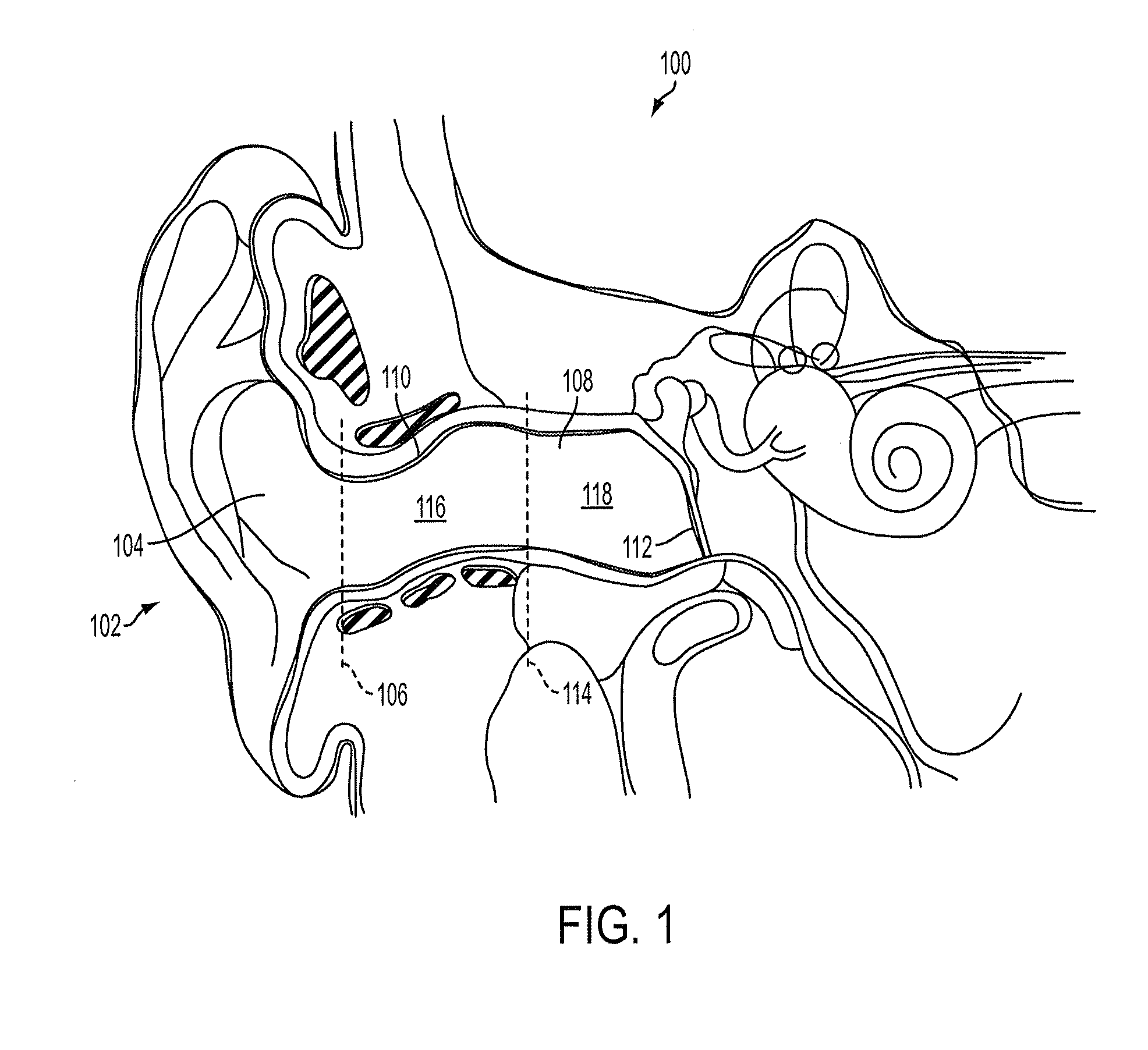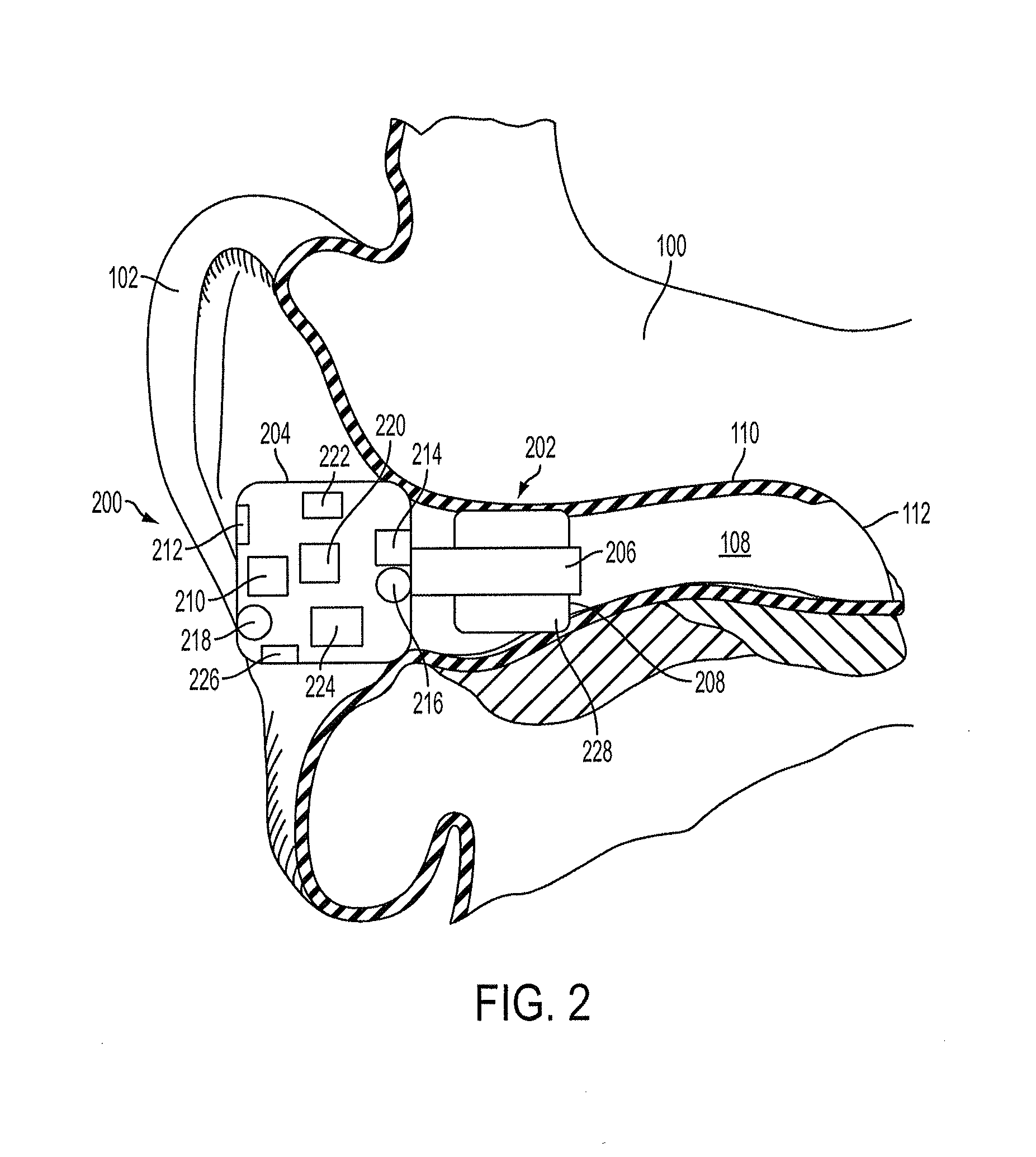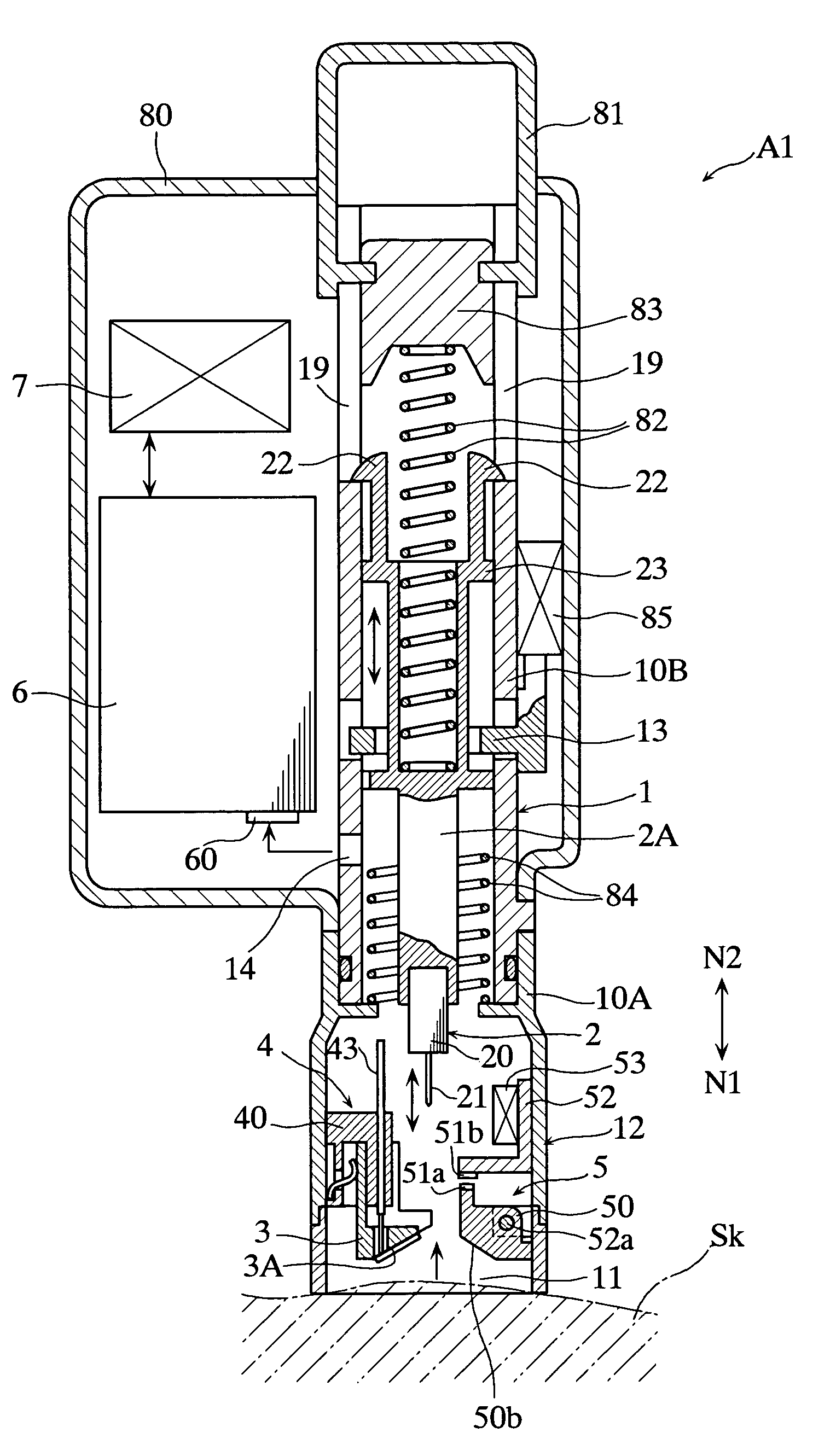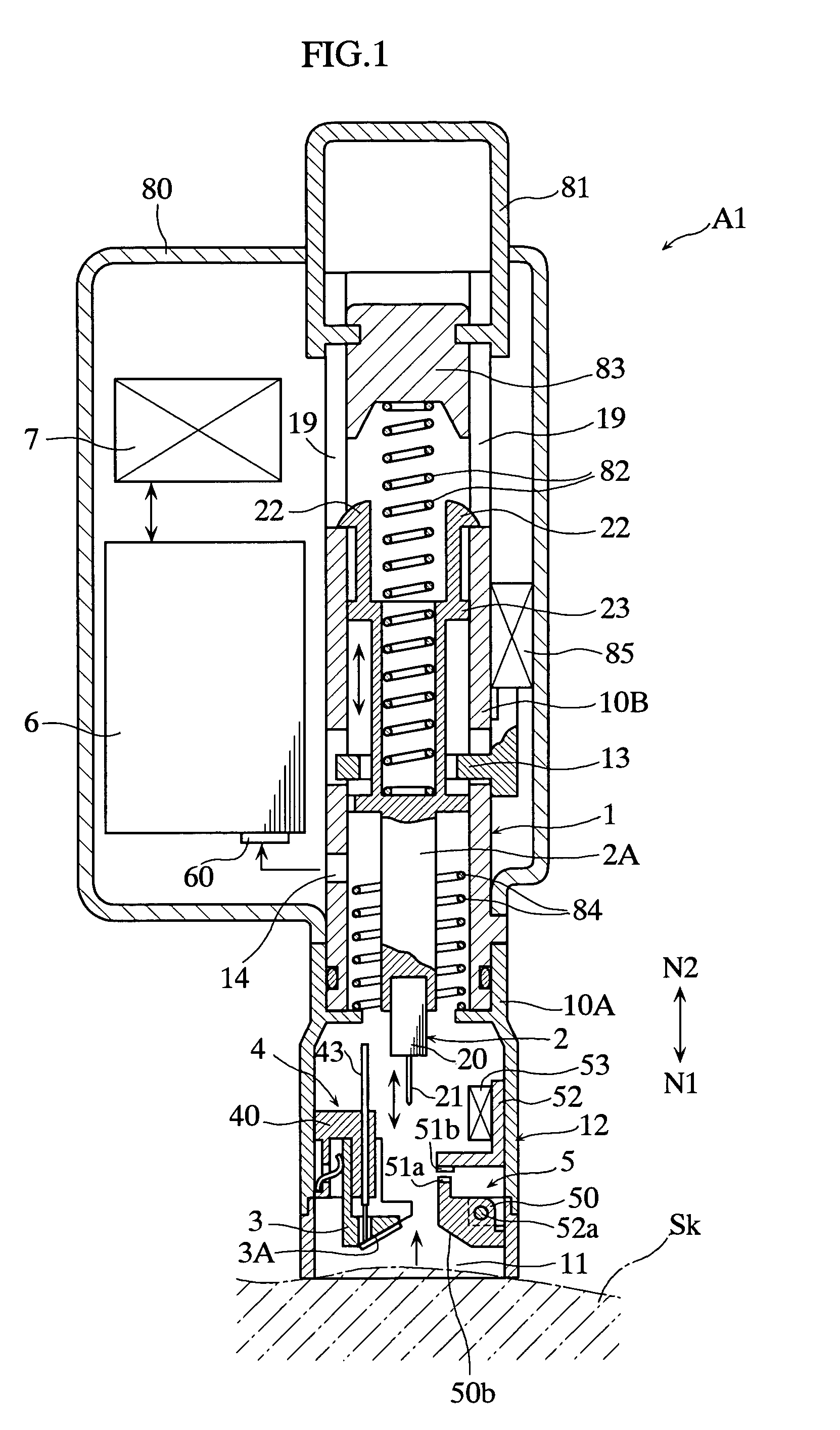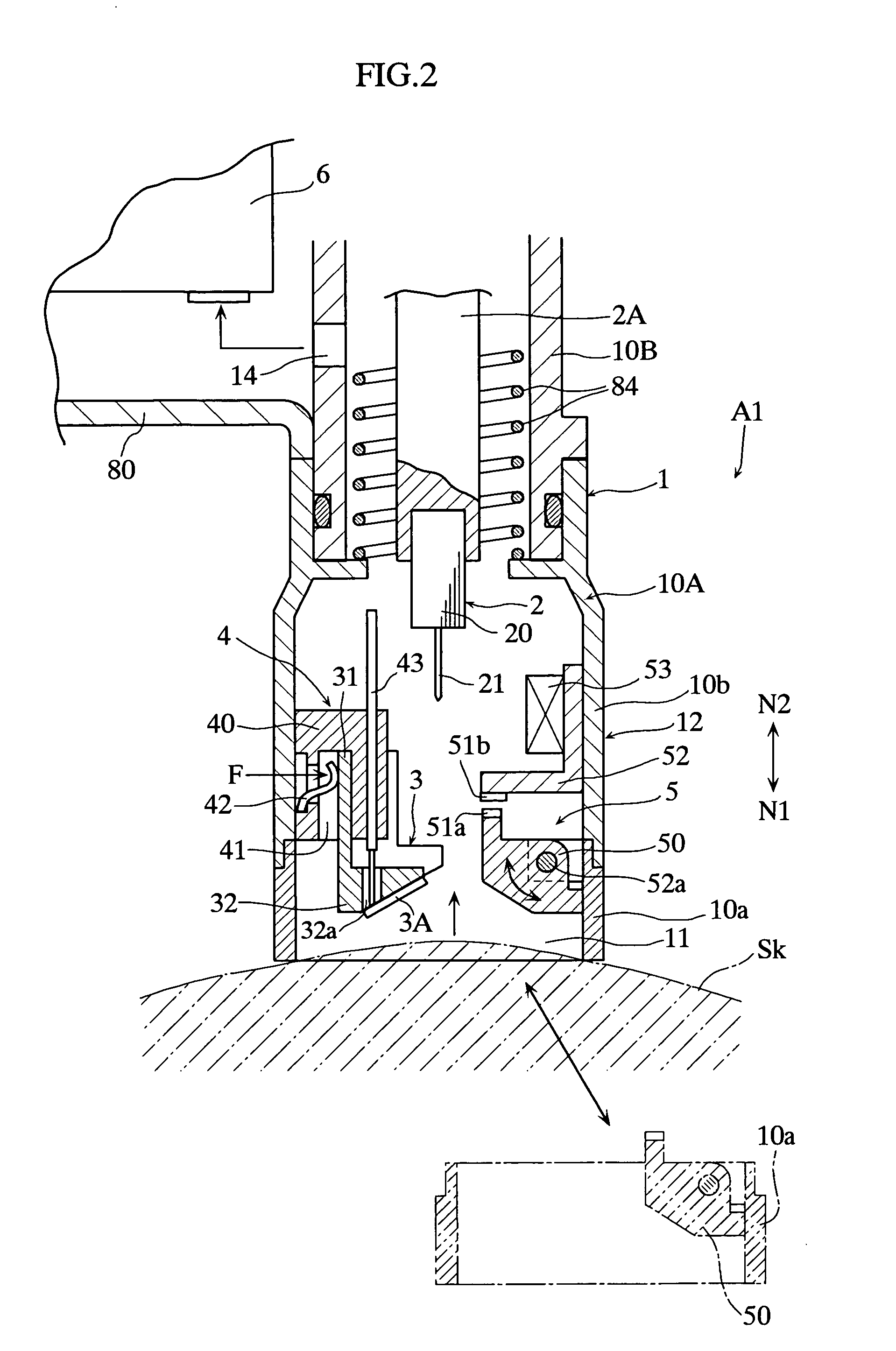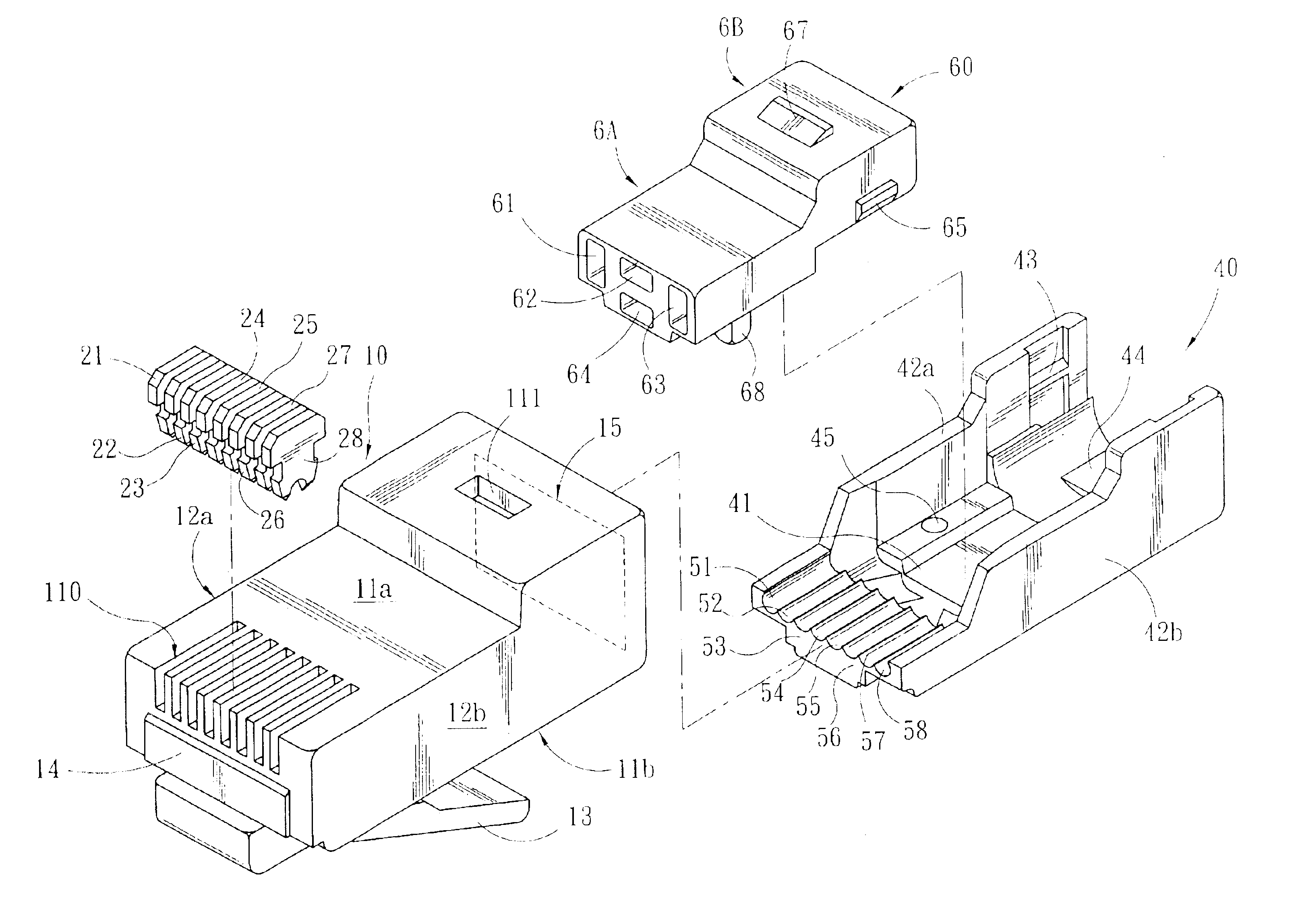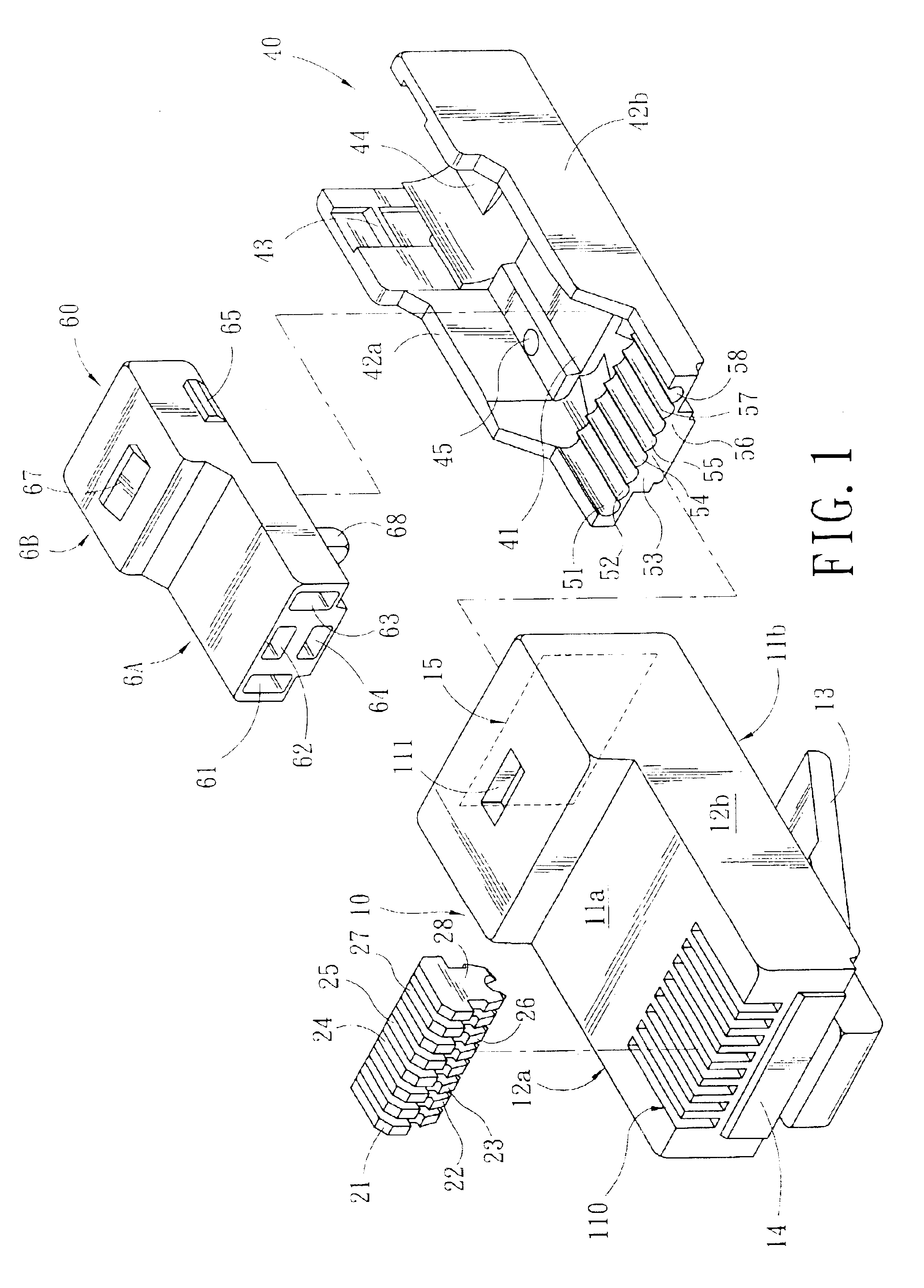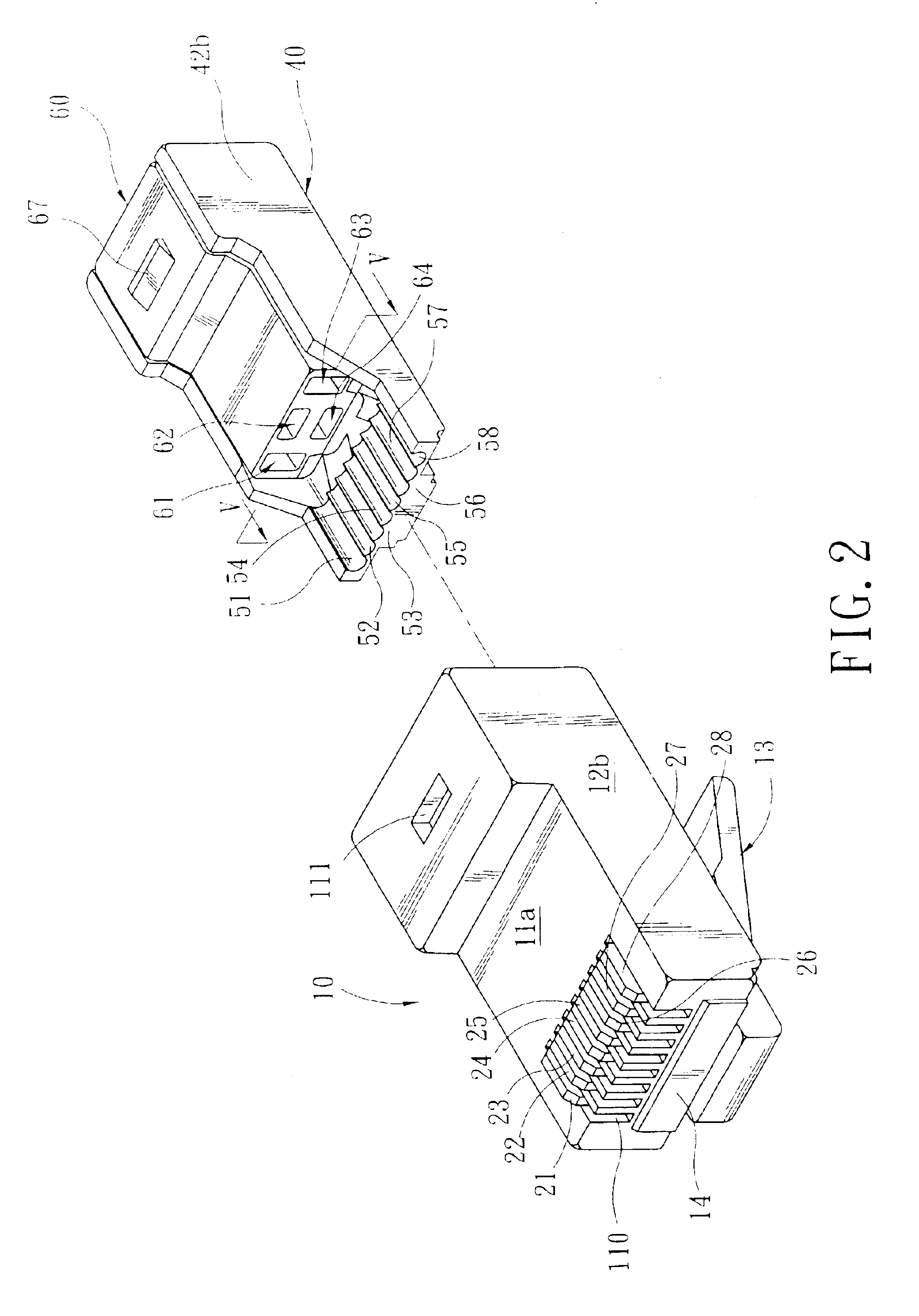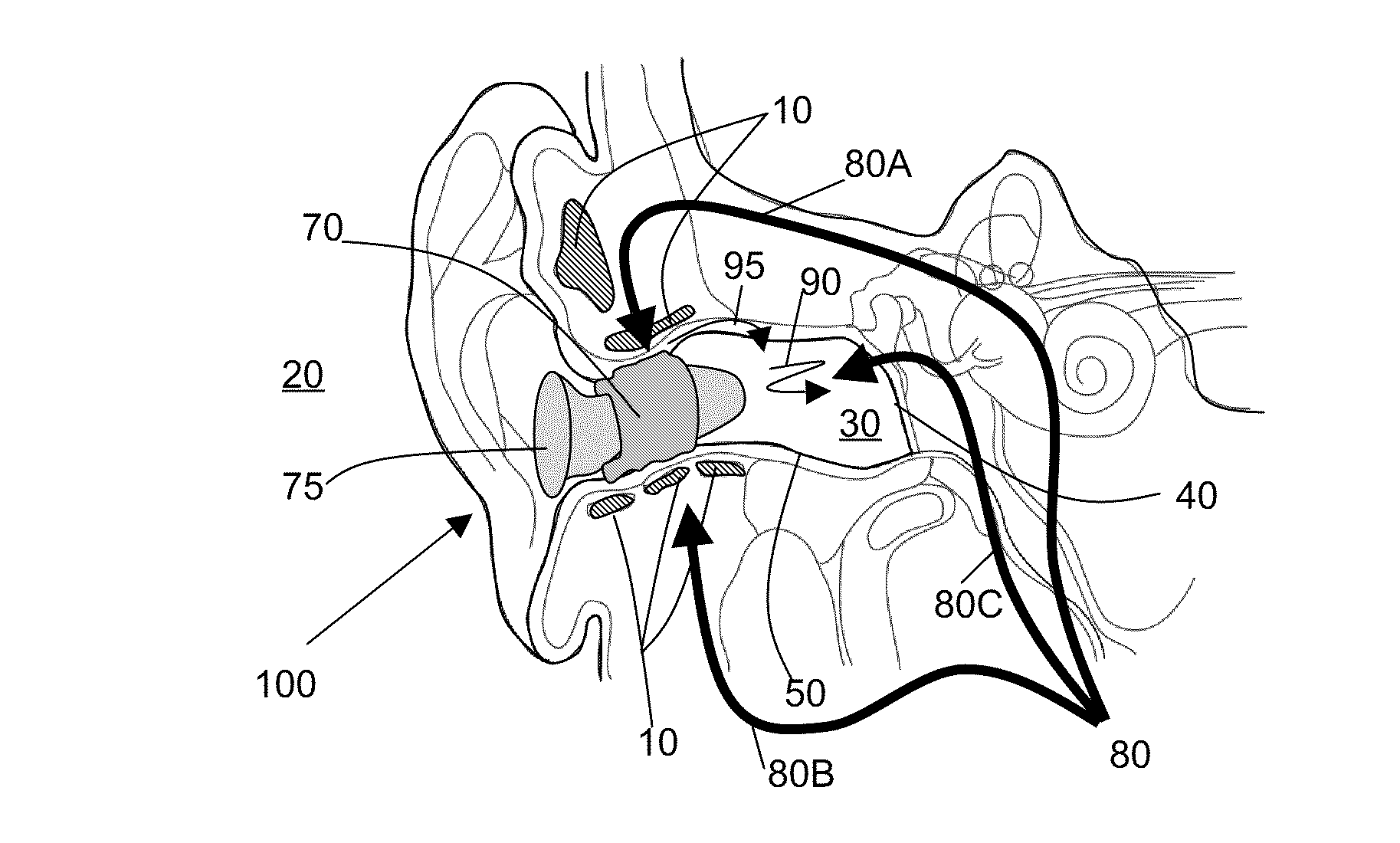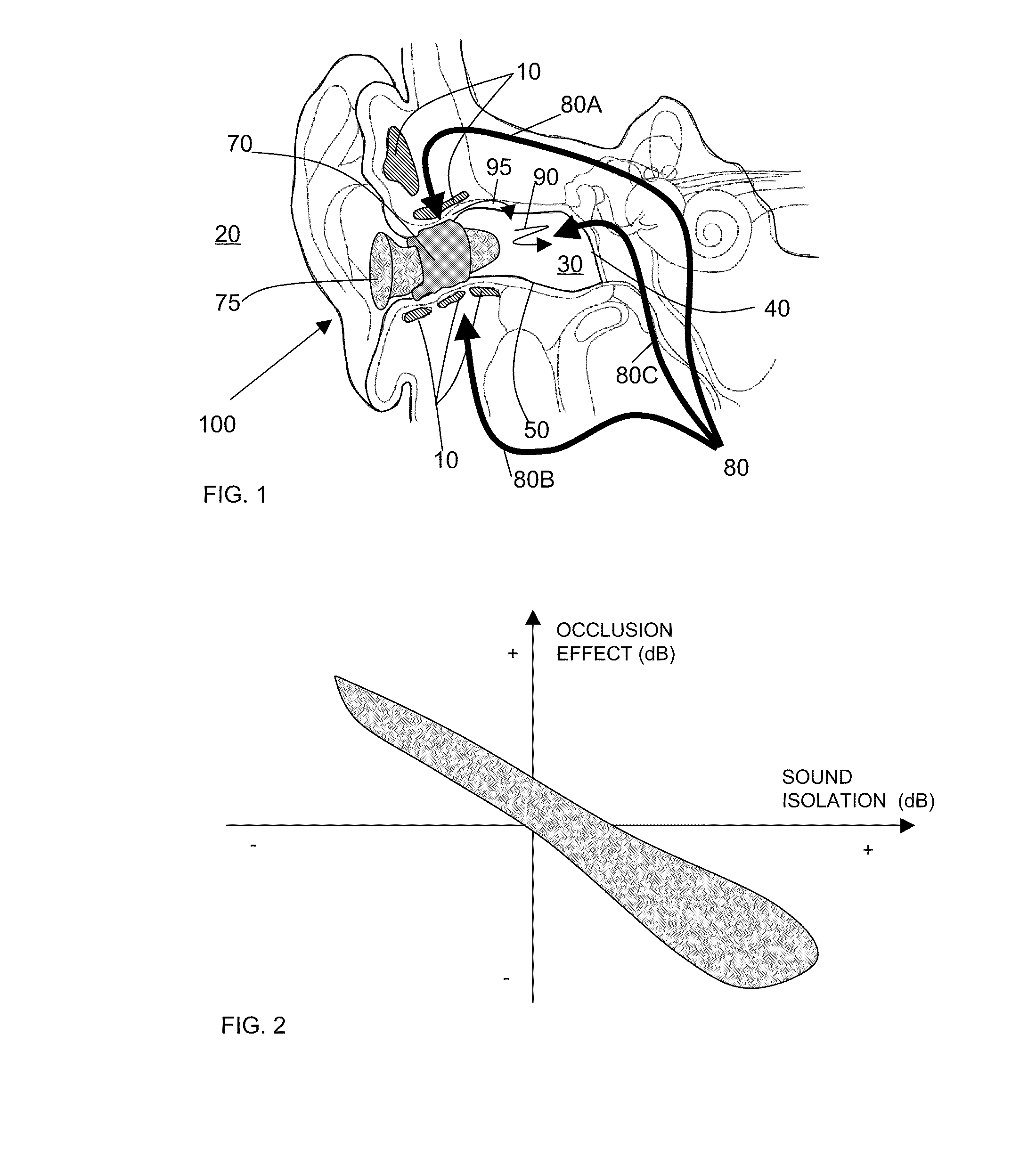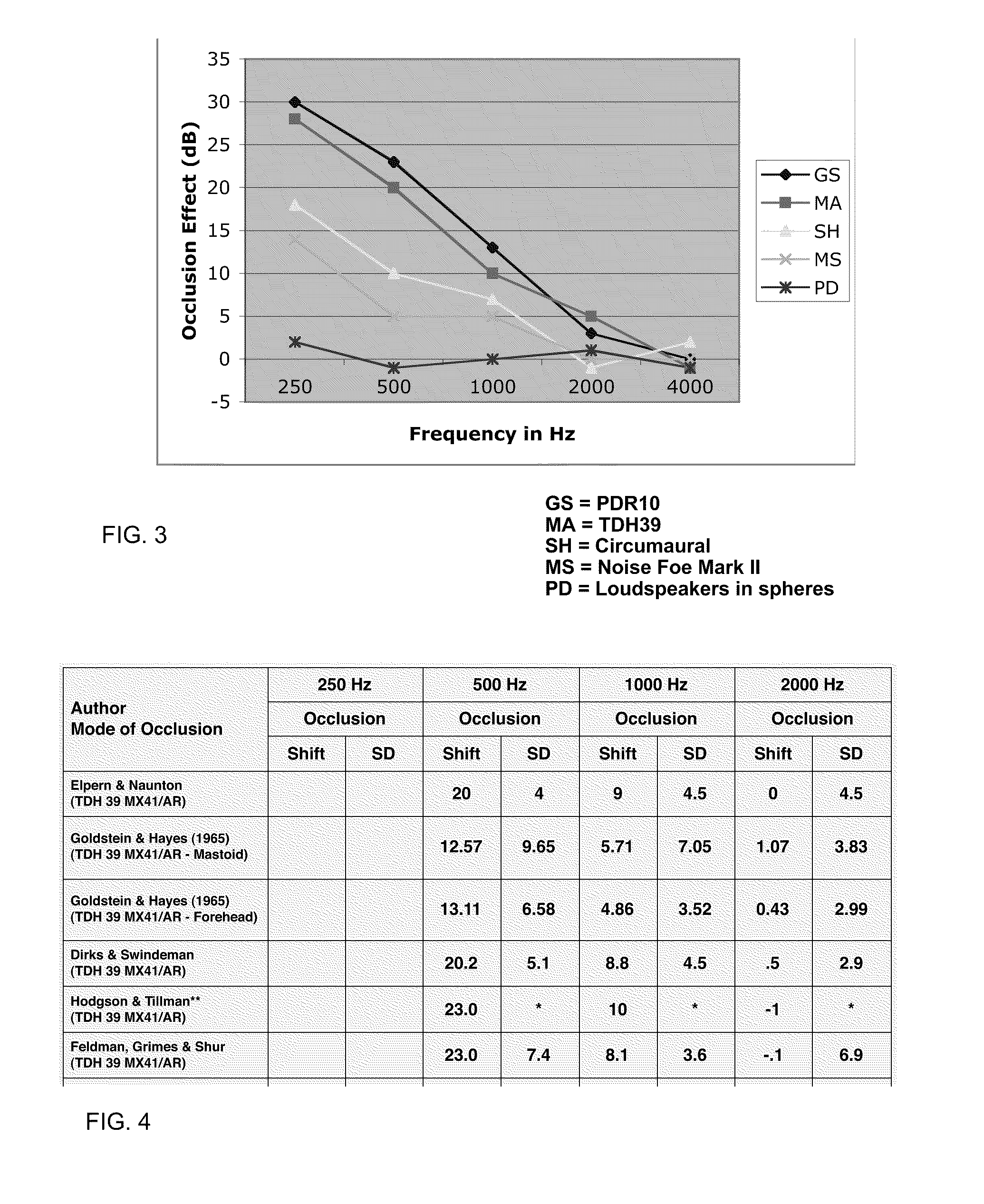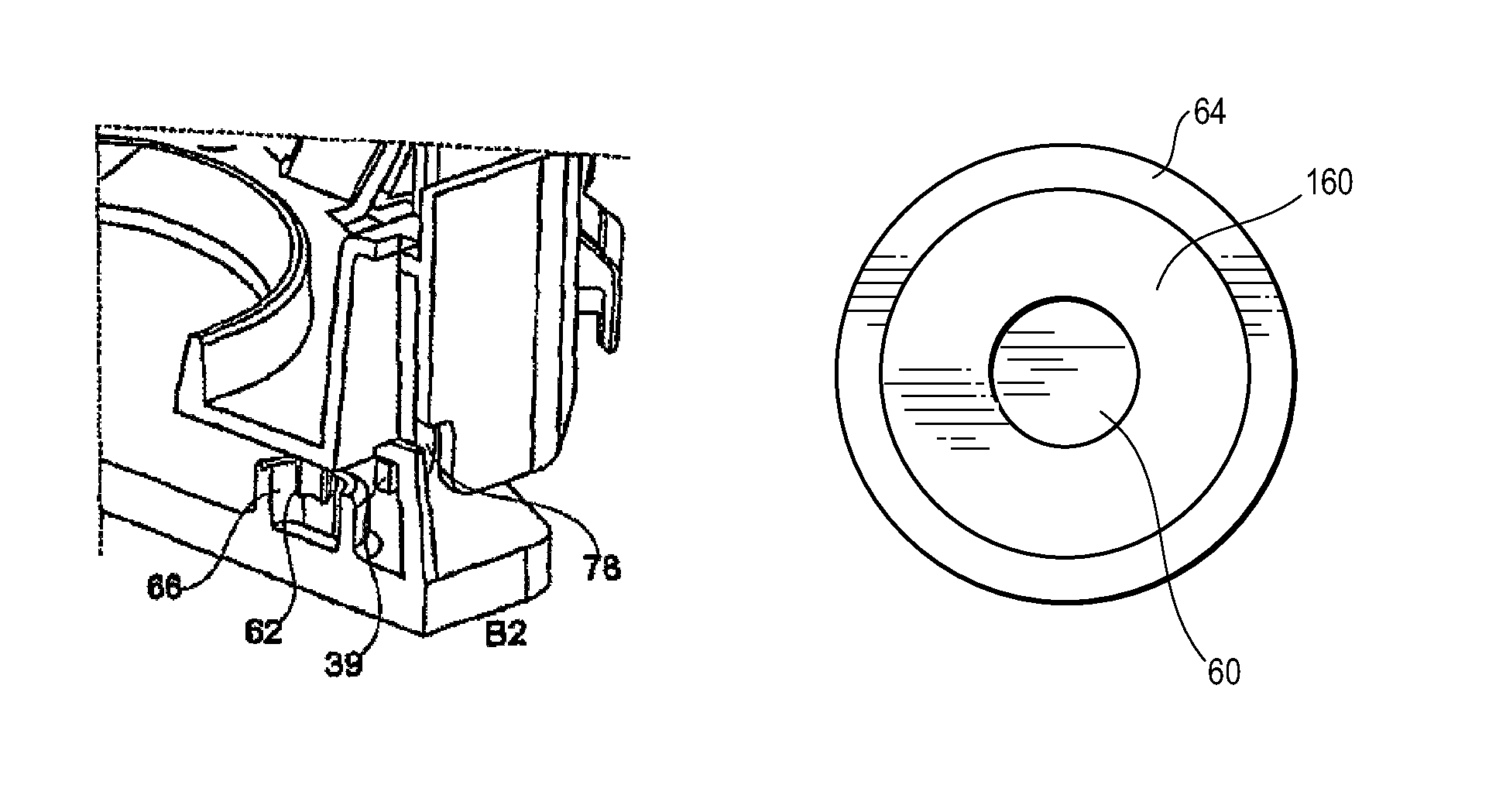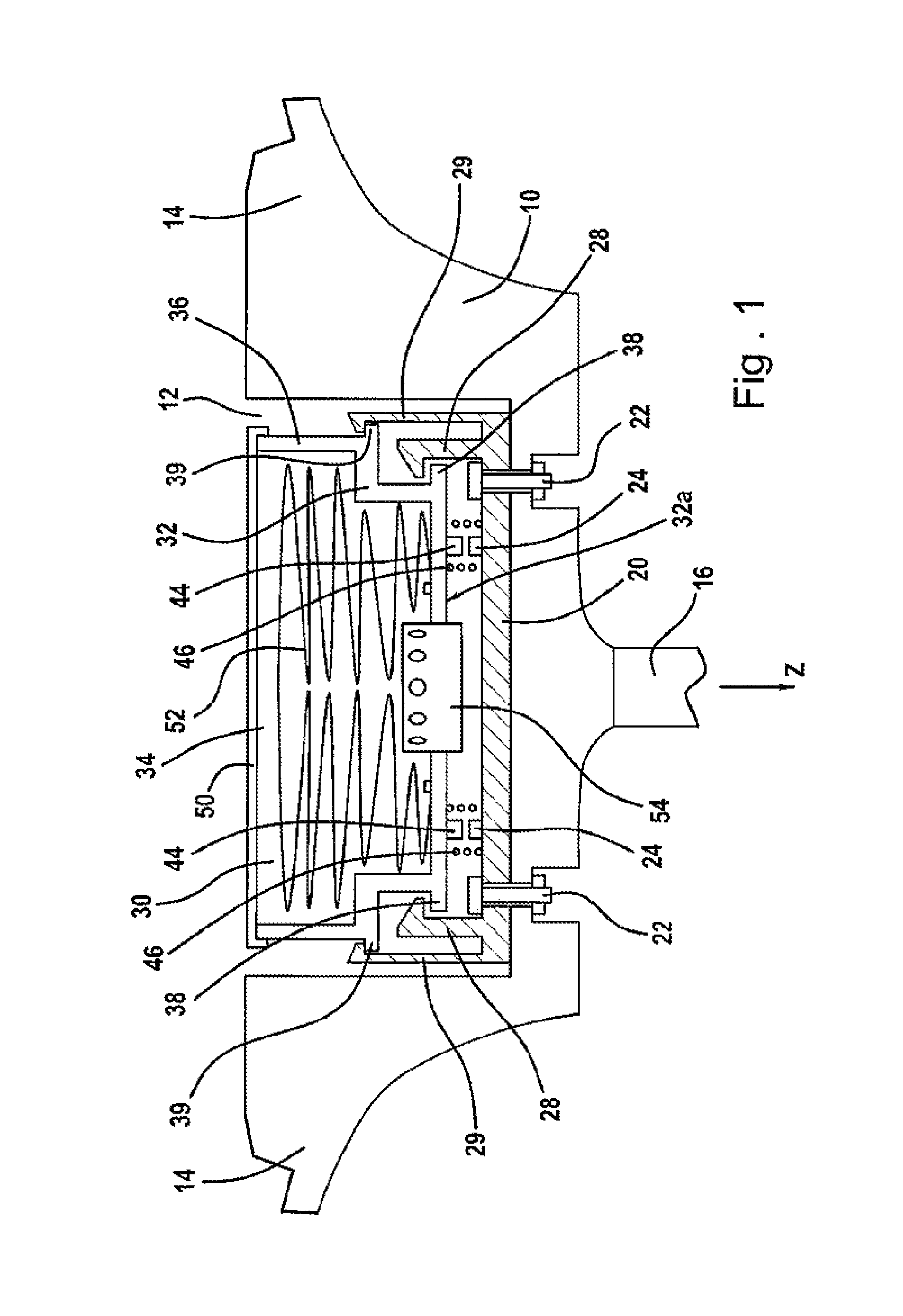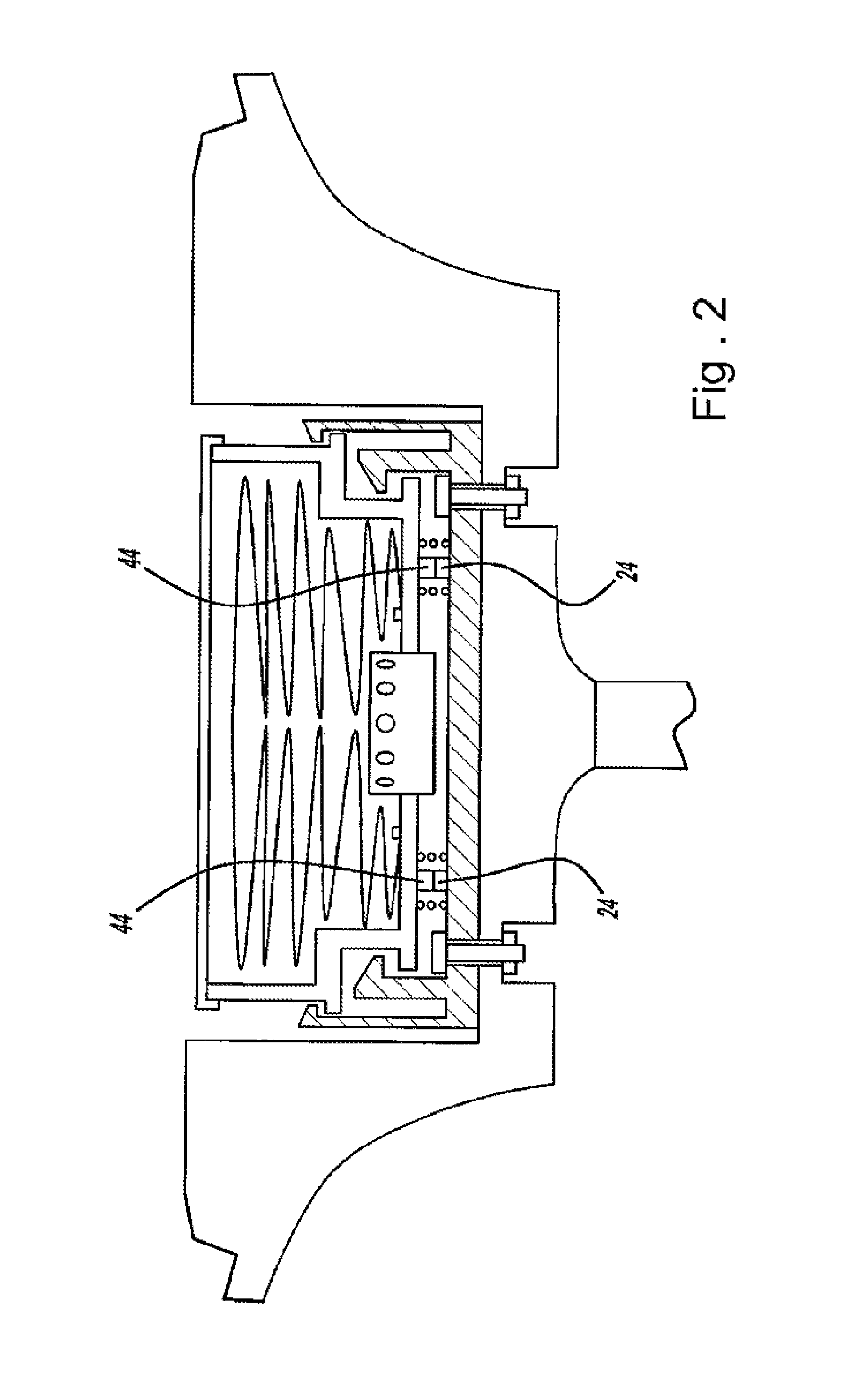Patents
Literature
256 results about "Insertion element" patented technology
Efficacy Topic
Property
Owner
Technical Advancement
Application Domain
Technology Topic
Technology Field Word
Patent Country/Region
Patent Type
Patent Status
Application Year
Inventor
Disposable endoscope devices
Various methods and devices are provided for endoscopic procedures. In particular, the device can include an elongate flexible insertion element adapted for delivery within a patient. In one embodiment, the insertion element has at least one working channel disposed therein which is adapted to receive a surgical instrument, a liquid, or a gas. The insertion element can be adapted, for example, for endoscopic or laparoscopic delivery to a patient. The device further includes an optics unit disposed on a distal end of the insertion element that can be adapted to acquire images during endoscopic procedures, and an image display screen, disposed on or remote from the endoscopic device, adapted to communicate with the optics unit to display the acquired images.
Owner:ETHICON ENDO SURGERY INC
Parallel methods for genomic analysis
The present invention provides parallel methods for determining nucleotide sequences and physical maps of polynucleotides associated with sample tags. This information can be used to determine the chromosomal locations of sample-tagged polynucleotides. In one embodiment, the polynucleotides are derived from genomic DNA coupled to insertion elements. As a result, the invention also provides parallel methods for locating the integration sites of insertion elements in the genome.
Owner:STRATHMANN MICHAEL P
Systems and methods for fusing a sacroiliac joint and anchoring an orthopedic appliance
An orthopedic anchoring system for attaching a spinal stabilization system and concomitantly fusing a sacroiliac joint is disclosed that includes a delivery tool and an implant assembly for insertion into a joint space of a sacroiliac joint. The implant assembly may be secured using anchors inserted through bores within the implant body and into the underlying sacrum and / or ilium. The implant body may also include an attachment fitting reversibly attached to a guide to provide attachment fittings for elements of the spinal stabilization system. The implant assembly may be releasably coupled to an implant arm of the delivery tool such that the implant arm is substantially aligned with the insertion element of the implant assembly. An anchor arm used to insert the anchor may be coupled to the implant arm in a fixed and nonadjustable arrangement such that the anchor is generally aligned with a bore within the implant assembly.
Owner:JCBD
Needle-insertion device
This invention relates to a lancing apparatus (A1) used for inserting an insertion element (21) into a human skin (Sk) for sampling a body fluid. The lancing apparatus (A1) includes a housing (1) with a cylindrical portion (12) brought into contact with the skin (Sk), a negative pressure generator (6) that generates a negative pressure inside the cylindrical portion (12) to cause the skin (Sk) to swell upward, and a detector (5) that detects that the skin (Sk) has been raised to a predetermined height inside the cylindrical portion (12).
Owner:ARKRAY INC
Golay-code generation
ActiveUS20070113159A1Solve complex processQuick updateCode conversionCoding detailsMultiplexerSubject matter
A Golay-code generator configured for generating Golay complementary code pairs comprises a sequence of delay elements configured for providing a predetermined set of fixed delays to at least a first input signal and a sequence of adaptable seed vector insertion elements configured for multiplying at least a second input signal by a variable seed vector, wherein each of a plurality of seed vectors corresponds to at least one predetermined piconet. The Golay-code generator may further comprise multiplexers configured for switching inputs and outputs of at least two delay elements in the sequence of delay elements to produce a plurality of compatible delay vectors. The Golay-code generator may further comprise a code-truncation module configured to shorten the Golay complementary code pairs for producing a plurality of daughter codes. This Abstract is provided for the sole purpose of complying with the Abstract requirement rules that allow a reader to quickly ascertain the subject matter of the disclosure contained herein. This Abstract is submitted with the explicit understanding that it will not be used to interpret or to limit the scope or the meaning of the claims.
Owner:QUALCOMM INC
Nanoparticle tracer-based electrochemical DNA sensor for detection of pathogens-amplification by a universal nano-tracer (AUNT)
InactiveUS20110171749A1Rapid and sensitive detectionRapid and sensitive and valid identificationMaterial nanotechnologyNanomedicineSalmonella entericaEscherichia coli
The present invention relates to methods and compositions for identifying a pathogen. The inventions provide an antibody-based biosensor probe comprising (AUNT) in combination with a polymer-coated magnetic nanoparticle. In particular, a nanoparticle-based biosensor was developed for detection of Escherichia coli O157:H7 bacterium in food products. Further described are biosensors for detecting pathogens at low concentrations in samples. Even further, a gold nanoparticle-based electrochemical biosensor detection and amplification method for identifying the insertion element gene of Salmonella enterica Serovar Enteritidis is described. The present invention provides compositions and methods for providing a handheld potentiostat system for detecting pathogens outside of the laboratory. The AUNT biosensor system has applications detecting pathogens in food, water, beverages, clinical samples, and environmental samples.
Owner:BOARD OF TRUSTEES OPERATING MICHIGAN STATE UNIV
Apparatus and method for connecting a conduit to a hollow vessel
InactiveUS20060161193A1Blood lossChoose accuratelySurgical needlesExcision instrumentsAorta partEngineering
The present invention provides a system and method for forming a side branch on a hollow vessel, such as the aorta. The side branch is preferably adapted to be connected to a connector conduit, but any other suitable use is also acceptable. The system comprises a graft including a side branch portion, and an applicator comprising a hole forming element adapted to form a hole in the wall of the vessel and an insertion element adapted to be inserted through the wall of the vessel, the insertion element comprising a retraction element adapted to enter into engagement with the graft. The hole forming element may comprise a cutting element adapted to cut a hole in the wall of the vessel, and a positioning element adapted to hold the position of the applicator relative to the vessel. The system further comprises a graft protection element adapted to prevent the graft from being damaged by the cutting element. In this case, the clamping element and the graft protection element may be the same element, for example, an expansion element, which may be expandable from an unexpanded state to fully expanded state and to a partially expanded state. The expansion element may be a balloon, which may be in the shape of a circular toroid, and may include a tension member that restricts the dimensions of the balloon. In addition, the expansion element may be an umbrella mechanism.
Owner:CORREX
Esophageal electrocatheter
An esophageal catheter comprises an insertion element (1) able to be inserted into a patient's esophagus and having a distal end (2) and a sheath (3) containing the cables (7) for connection to at least two temperature sensors (4) fitted along the element (1) in the vicinity of the distal end, the sensors being mounted in predetermined positions relative to one or more positioning elements (5, 6) defining a temperature detection zone (8).
Owner:FIAB
Systems and methods for fusing a sacroiliac joint and anchoring an orthopedic appliance
An orthopedic anchoring system for attaching a spinal stabilization system and concomitantly fusing a sacroiliac joint is disclosed that includes a delivery tool and an implant assembly for insertion into a joint space of a sacroiliac joint. The implant assembly may be secured using anchors inserted through bores within the implant body and into the underlying sacrum and / or ilium. The implant body may also include an attachment fitting reversibly attached to a guide to provide attachment fittings for elements of the spinal stabilization system. The implant assembly may be releasably coupled to an implant arm of the delivery tool such that the implant arm is substantially aligned with the insertion element of the implant assembly. An anchor arm used to insert the anchor may be coupled to the implant arm in a fixed and nonadjustable arrangement such that the anchor is generally aligned with a bore within the implant assembly.
Owner:JCBD
Systems and methods for fusing a sacroiliac joint and anchoring an orthopedic appliance
An orthopedic anchoring system for attaching a spinal stabilization system and concomitantly fusing a sacroiliac joint is disclosed that includes a delivery tool and an implant assembly for insertion into a joint space of a sacroiliac joint. The implant assembly may be secured using anchors inserted through bores within the implant body and into the underlying sacrum and / or ilium. The implant body may also include an attachment fitting reversibly attached to a guide to provide attachment fittings for elements of the spinal stabilization system. The implant assembly may be releasably coupled to an implant arm of the delivery tool such that the implant arm is substantially aligned with the insertion element of the implant assembly. An anchor arm used to insert the anchor may be coupled to the implant arm in a fixed and nonadjustable arrangement such that the anchor is generally aligned with a bore within the implant assembly.
Owner:JCBD
Common Air Interface Supporting Single Carrier and OFDM
ActiveUS20080298435A1Multiple modulation transmitter/receiver arrangementsCode conversionAir interfaceCarrier signal
A matched filter is configured for matching an input signal to a plurality of programmable-length complementary Golay-code pairs. The matched filter includes a sequence of delay elements configured for delaying the input signal with respect to at least one delay vector. A sequence of programmable seed vector insertion elements is configured for multiplying the input signal and delayed versions of the input signal by a set of seed-vector values. At least one of the seed-vector values may be set to zero to facilitate processing Golay codes having different lengths.
Owner:QUALCOMM INC
Device for removing fluids from vials
InactiveUS20120298254A1Reduce dead volumeReduced cross sectionPharmaceutical containersMedical packagingEngineeringMechanical engineering
The invention relates to a device for removing a fluid from at least one container (300), for example, from a vial, that has a seal that can be punctured. The device comprises a base body (210), in which a fluid channel is formed. In order to reduce the lost volume, a pin-shaped insertion element (250) that reduces the cross-section of the fluid channel is inserted into the fluid channel through an insertion opening. Locking structures (262, 263) that retain the container on the device in a removal position and in a storage position different therefrom can be provided so that the container can be stored on the device without the seal being punctured accidentally. Such a device can be used in particular to fill an applicator (100) having one or more fluid reservoirs from one or more vials.
Owner:MEDMIX SYST
Method for anchoring autologous or artificial tendon grafts in bone
InactiveUS7637949B2Strong pressure fitAdverse reactionSuture equipmentsInternal osteosythesisTendon graftBiomedical engineering
A method for anchoring autologous or artificial tendon grafts in bone is provided. In one embodiment, the method includes affixing a stabilizing element in bone; and placing the stem of an insertion element therein. A tendon graft may be secured to the insertion element either before or after its placement in the stabilizing element. Two such anchors may be linked with one or multiple grafts, in either a two-ply or four-ply arrangement.
Owner:INNOVASIVE DEVICES
Boot liner
A boot liner is configured to adequately obtain a desired sensation of an upper part fitting around the ankle. The boot liner has a sole, an upper part, and a fastening mechanism. The fastening mechanism has a main strap having a first fixed strap part, a pair of movable strap parts, and a second fixed strap part. The movable strap parts extend forwardly from the ends of the first fixed strap part along the side surfaces of the upper part, and are folded back such that an insertion element through which a shoelace can be inserted is formed in the vicinity of the front ends of the upper part, and the distal ends extend through the rear portion to the side surfaces on the opposite sides of the upper part. The movable strap parts intersect each other at the rear portion and can move in relation to the upper part.
Owner:YONEX CO LTD
Occlusion effect mitigation and sound isolation device for orifice inserted systems
Owner:STATON TECHIYA LLC
Occlusion device capable of occluding an ear canal
Occlusion devices, earpiece devices and methods of occluding an ear canal are provided. An occlusion device includes an insertion element, a foldable element and an expandable element. The foldable element is disposed on the insertion element and is configured to receive a medium via the insertion element. The expandable element is disposed over the foldable element. The foldable element is configured to unfold, responsive to the medium, and cause the expandable element to expand to contact the ear canal.
Owner:STATON TECHIYA LLC
Closure for a beverage container
ActiveUS9215942B2Easy constructionSimple and safe operationDrinking vesselsClassical mechanicsStructural engineering
A closure for a beverage container is disclosed. Said closure comprises an inserted element (2) and a closing member (3) which can be inserted into a mouth of the inserted element (2). A first engaging structure (22) mounted on the internal face of the inserted element (2) can be connected to a second engaging structure (36) arranged on the external face of the closing member (3). The inserted element (2) further has a funnel section (25) above the first engaging structure (22). The closing member (3) has a closed top surface (32), a handle element (31), and an apron (35) with outlets (33). The engaging structures (22, 36) are designed such that the closing member (3) can be moved relative to the inserted element in a vertical direction between a first position in which the closing member (3) seals the mouth and a second position in which the outlets (33) open passages for a liquid.
Owner:PI-DESIGN AG
Golay-code generation
ActiveUS20110209035A1Solve complex processQuick updateCode conversionRedundant data error correctionMultiplexerComputer module
A Golay-code generator configured for generating Golay complementary code pairs comprises a sequence of delay elements configured for providing a predetermined set of fixed delays to at least a first input signal and a sequence of adaptable seed vector insertion elements configured for multiplying at least a second input signal by a variable seed vector, wherein each of a plurality of seed vectors corresponds to at least one predetermined piconet. The Golay-code generator may further comprise multiplexers configured for switching inputs and outputs of at least two delay elements in the sequence of delay elements to produce a plurality of compatible delay vectors. The Golay-code generator may further comprise a code-truncation module configured to shorten the Golay complementary code pairs for producing a plurality of daughter codes. This Abstract is provided for the sole purpose of complying with the Abstract requirement rules that allow a reader to quickly ascertain the subject matter of the disclosure contained herein. This Abstract is submitted with the explicit understanding that it will not be used to interpret or to limit the scope or the meaning of the claims.
Owner:QUALCOMM INC
Methods and devices for attenuating sound in a conduit or chamber
ActiveUS20170040012A1Reduce decreaseIncreases its acoustical impendence (attenuationEarplugsIntra aural earpiecesUltrasound attenuationMedicine
Occlusion devices, earpiece devices and methods of forming occlusion devices are provided. An occlusion device is configured to occlude an ear canal, but other biological and non-biological conduits or chambers can be occluded using the devices and methods herein. The occlusion device includes an insertion element and at least one occluding member or element (which can be expandable) disposed on the insertion element. The occluding member is configured to receive a medium via the insertion element and is configured to expand, responsive to the medium, to contact the ear canal. Alternatively, the occluding member is made of a non-Newtonian fluid and can be enclosed by a balloon or not. Physical parameters of the occlusion device are selected to produce a predetermined sound attenuation characteristic over a frequency band. Use of a non-Newtonian fluid provides additional options or variables in customizing or designing a predetermined sound attenuation characteristic.
Owner:STATON TECHIYA LLC
Systems and methods for fusing a sacroiliac joint and anchoring an orthopedic appliance
An orthopedic anchoring system for attaching a spinal stabilization system and concomitantly fusing a sacroiliac joint is disclosed that includes a delivery tool and an implant assembly for insertion into a joint space of a sacroiliac joint. The implant assembly may be secured using anchors inserted through bores within the implant body and into the underlying sacrum and / or ilium. The implant body may also include an attachment fitting reversibly attached to a guide to provide attachment fittings for elements of the spinal stabilization system. The implant assembly may be releasably coupled to an implant arm of the delivery tool such that the implant arm is substantially aligned with the insertion element of the implant assembly. An anchor arm used to insert the anchor may be coupled to the implant arm in a fixed and nonadjustable arrangement such that the anchor is generally aligned with a bore within the implant assembly.
Owner:JCBD
Disposable endoscope devices
Various methods and devices are provided for endoscopic procedures. In particular, the device can include an elongate flexible insertion element adapted for delivery within a patient. In one embodiment, the insertion element has at least one working channel disposed therein which is adapted to receive a surgical instrument, a liquid, or a gas. The insertion element can be adapted, for example, for endoscopic or laparoscopic delivery to a patient. The device further includes an optics unit disposed on a distal end of the insertion element that can be adapted to acquire images during endoscopic procedures, and an image display screen, disposed on or remote from the endoscopic device, adapted to communicate with the optics unit to display the acquired images.
Owner:ETHICON ENDO SURGERY INC
Method of anchoring autologous or artificial tendon grafts in bone
InactiveUS20120078369A1Strong pressure fitAdverse reactionInternal osteosythesisLigamentsTendon graftTendon grafting
An anchor assembly for autologous or artificial tendon grafts comprises an insertion element and a stabilizing element. The insertion element has a stem and a head containing an aperture large enough to receive a graft. The stabilizing element is adapted to be embedded in bone, and comprises a sleeve with a cavity arranged to receive and hold the insertion element stem. In use, the stabilizing element is affixed in the bone, and the stem of the insertion element is placed therein. A tendon graft may be secured to the insertion element either before or after its placement in the stabilizing element. Two such anchors may be linked with one or multiple grafts, in either a two-ply or four-ply arrangement.
Owner:DEPUY MITEK INC
Inner boundary layer cutting disturbing radial mixed flow device of heat exchange pipe
InactiveCN101762203AImprove heat transfer effectEasy to useHeat transfer modificationRotary device cleaningMixed flowEnhanced heat transfer
The invention relates to an inner boundary layer cutting disturbing radial mixed flow device of a heat exchange pipe, which belongs to an inner insertion element enhanced heat transfer device of a heat exchange pipe of pipe type heat exchange equipment. The device consists of a rotor (or a plurality of rotors), pipe end hanging elements, a support shaft and position limiting rivets, wherein two pipe end hanging elements are respectively fixed at both ends of the heat exchange pipe, one or a plurality of rotors are arranged in the heat exchange pipe, the rotors can be ranged in groups, each group is separated through the position limiting rivets, the support shaft passes through shaft holes of the rotors and the position limiting rivets, and both ends of the support shaft are fixed on the pipe end hanging elements. Each rotor consists of a driving wing, a disturbing wing, a support ring and a shaft hole, the fluid in the heat exchange pipe can be divided into two parts: a driving region and a cutting disturbing region, the disturbing wings can be straight wings or spiral wings in the opposite direction to the rotating direction of the driving wings, and in addition, small gaps are formed between the pipe walls and the disturbing wings for realizing the sufficient cutting disturbing on the boundary layer of the fluid. The device per se has the double functions of on-line cleaning and enhanced heat transfer in the heat exchange pipe through the enhanced fluid boundary layer cutting disturbing and radial mixed flow effect.
Owner:BEIJING UNIV OF CHEM TECH
Transcutaneous analyte sensors, applicators therefor, and associated methods
ActiveUS20180368771A1Avoid deformationFully deformedCatheterSensorsBiomedical engineeringInsertion element
The present embodiments relate generally to applicators of on-skin sensor assemblies for measuring an analyte in a host, as well as their method of use and manufacture. In some aspects, an applicator for applying an on-skin sensor assembly to a skin of a host is provided. The applicator includes an applicator housing, a needle carrier assembly comprising an insertion element configured to insert a sensor of the on-skin sensor assembly into the skin of the host, a holder releasably coupled to the needle carrier assembly and configured to guide the on-skin sensor assembly while coupled to the needle carrier assembly, and a drive assembly configured to drive the insertion element from a proximal starting position to a distal insertion position, and from the distal insertion position to a proximal retraction position.
Owner:DEXCOM
Latchable container system
InactiveUS7204388B2Convenient and efficientImprove securityPackage recyclingCapsEngineeringMechanical engineering
A latching system including both apparatus and methods addresses the need for a reusable latch that is identical on either side of a container opening, thereby facilitating container manufacture. Also disclosed are apparatus and methods for assuring the quality of latchable container enclosed contents and enhancing the safety of container users by providing an unopened condition assurance element such as a tab that is removable from a reusable container latch. A novel latching system with a split insertion element on a first latch side and unitary receptor element on a second latch side is also disclosed. A preferred embodiment involves an elastically obstructed latch as used on a squeeze-openable container.
Owner:INT MOLDED PACKAGING CORP
Methods and devices for occluding an ear canal having a predetermined filter characteristic
ActiveUS20140146989A1Ear moulds/tips acoustic sealsIntra aural earpiecesUltrasound attenuationMedicine
Occlusion devices, earpiece devices and methods of forming occlusion devices are provided. An occlusion device is configured to occlude an ear canal. The occlusion device includes an insertion element and at least one expandable element disposed on the insertion element. The expandable element is configured to receive a medium via the insertion element and is configured to expand, responsive to the medium, to contact the ear canal. Physical parameters of the occlusion device are selected to produce a predetermined sound attenuation characteristic over a frequency band, such that sound is attenuated more in a first frequency range of the frequency band than in a second frequency range of the frequency band.
Owner:STATON TECHIYA LLC
Needle-insertion device
This invention relates to a lancing apparatus (A1) used for inserting an insertion element (21) into a human skin (Sk) for sampling a body fluid. The lancing apparatus (A1) includes a housing (1) with a cylindrical portion (12) brought into contact with the skin (Sk), a negative pressure generator (6) that generates a negative pressure inside the cylindrical portion (12) to cause the skin (Sk) to swell upward, and a detector (5) that detects that the skin (Sk) has been raised to a predetermined height inside the cylindrical portion (12).
Owner:ARKRAY INC
Fast electric connector plug
InactiveUS6837738B1Easy to controlSimple structureCoupling device detailsTwo-part coupling devicesElectricityCompensation effect
A fast electric connector plug that produces noise within the median value of the category 6 (CAT-6) standard. Through an insertion element installed inside an electric connector plug, four twisted pairs of a CAT-6 cable are configured in four directions from the same central point. At the same time, the first twisted pair is kept twisted and the other three twisted pairs are parallel before reaching the contacts of the plug. The first wire and the eighth wire are kept close to the third wire and the sixth wire in order to produce a compensation effect and achieve more reliable fast data transmissions.
Owner:SURTEC INDS
Occlusion effect mitigation and sound isolation device for orifice inserted systems
ActiveUS20100012420A1Reduce the impactReduce occlusionStethoscopeEarplugsOcclusion effectEngineering
At least one exemplary embodiment is directed to a sound isolation device comprising: an expandable element; and an insertion element, where the expandable element is operatively attached to the insertion element, where the expandable element includes an expanding medium, where the pressure of the expanding medium is varied to vary sound isolation across the expandable element.
Owner:STATON TECHIYA LLC
Steering wheel vibration damping system
A steering wheel unit includes a steering wheel body and an airbag module mounted thereto. The airbag module includes positioning means for maintaining the axial positioning of the airbag module relative to the steering wheel and positioning means for maintaining the radial positioning of the airbag module relative to the steering wheel. The steering wheel unit also includes damping elements that are disposed between the insertion elements and receiving elements of the radial positioning means. The radial positioning means can be in the form of a post within a cylindrical receptacle, where the damping element is therebetween. The radial positioning means can be in the form of a plate received within a u-shaped receiving element, where the damping element is within the u-shaped receiving element.
Owner:AUTOLIV ASP INC
Features
- R&D
- Intellectual Property
- Life Sciences
- Materials
- Tech Scout
Why Patsnap Eureka
- Unparalleled Data Quality
- Higher Quality Content
- 60% Fewer Hallucinations
Social media
Patsnap Eureka Blog
Learn More Browse by: Latest US Patents, China's latest patents, Technical Efficacy Thesaurus, Application Domain, Technology Topic, Popular Technical Reports.
© 2025 PatSnap. All rights reserved.Legal|Privacy policy|Modern Slavery Act Transparency Statement|Sitemap|About US| Contact US: help@patsnap.com
